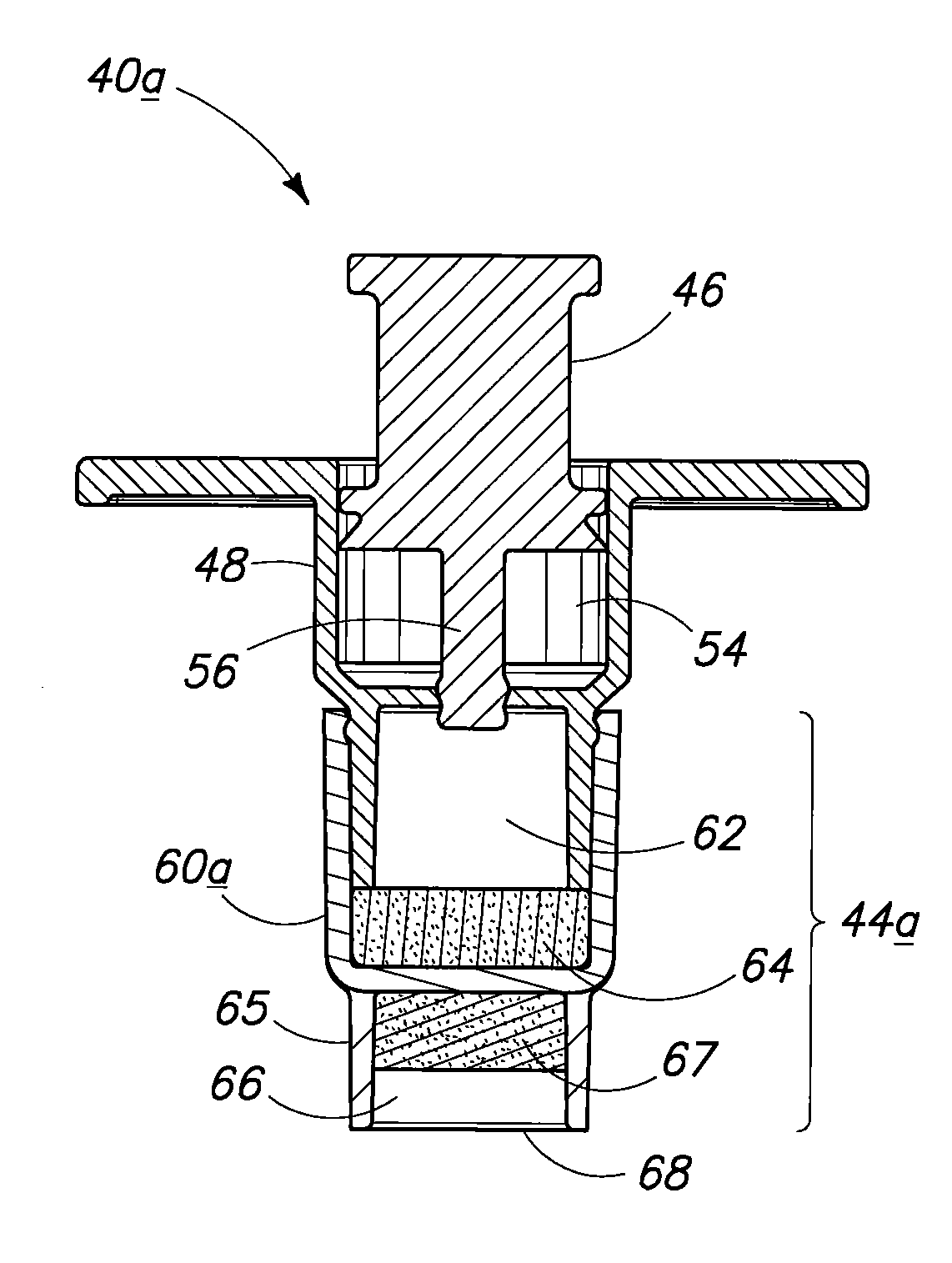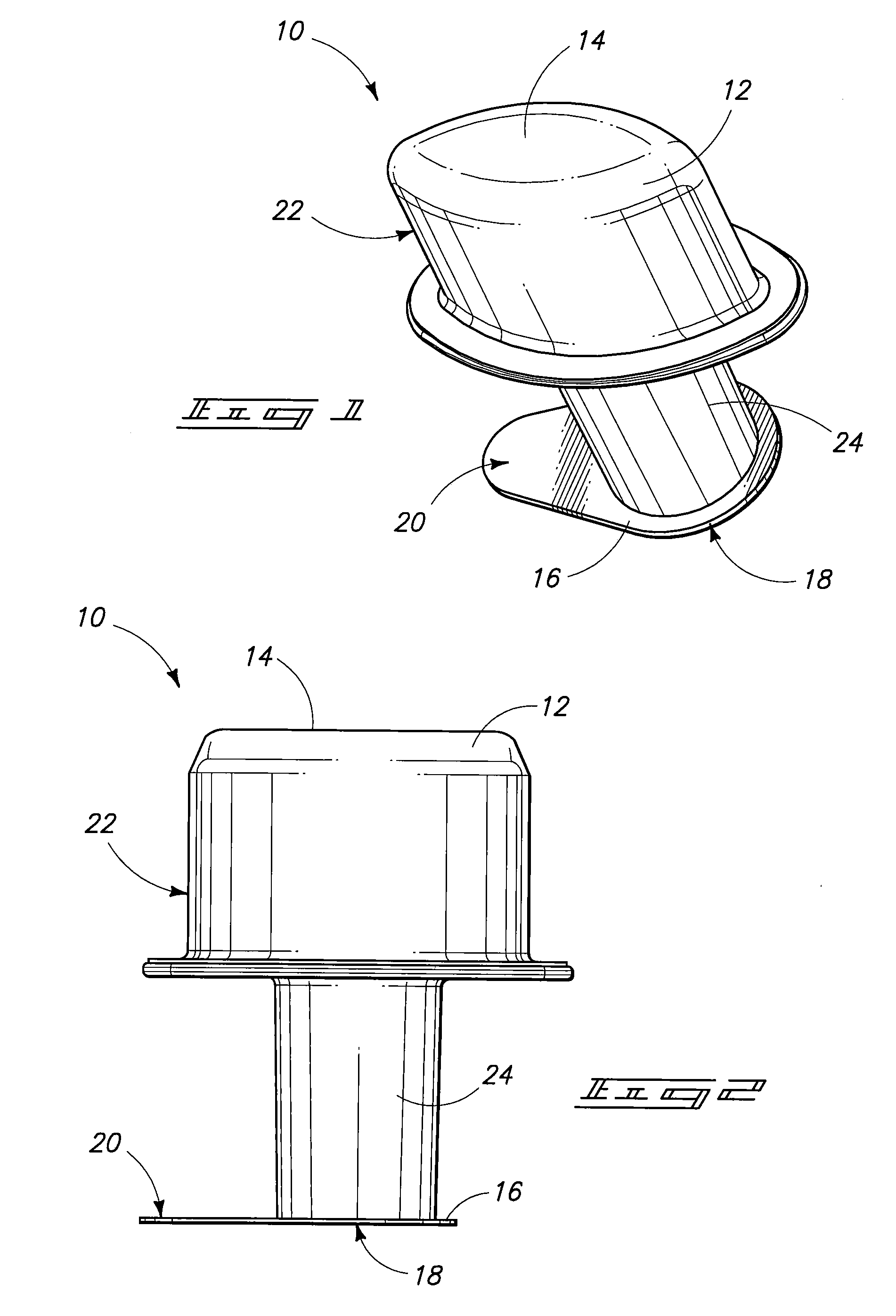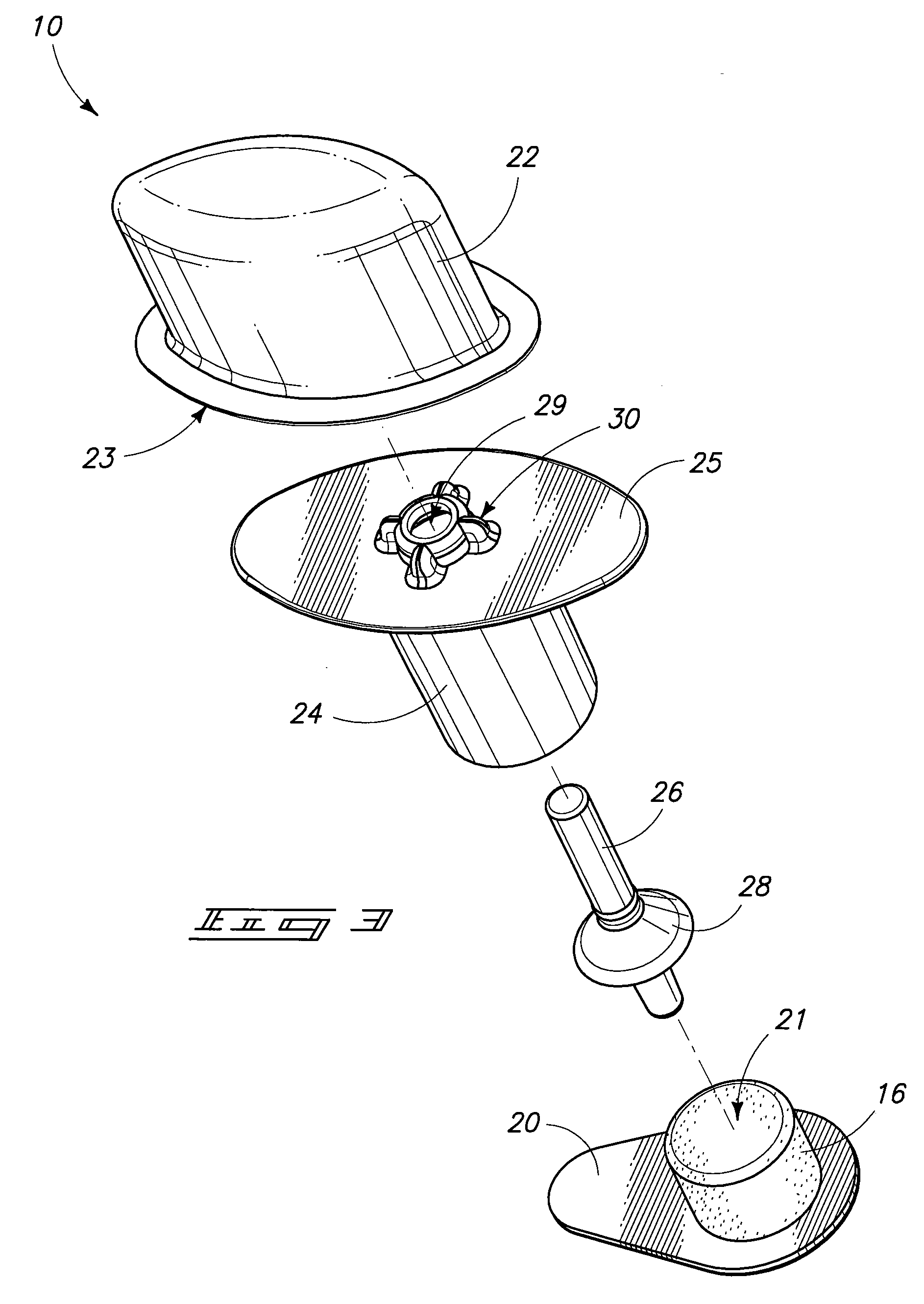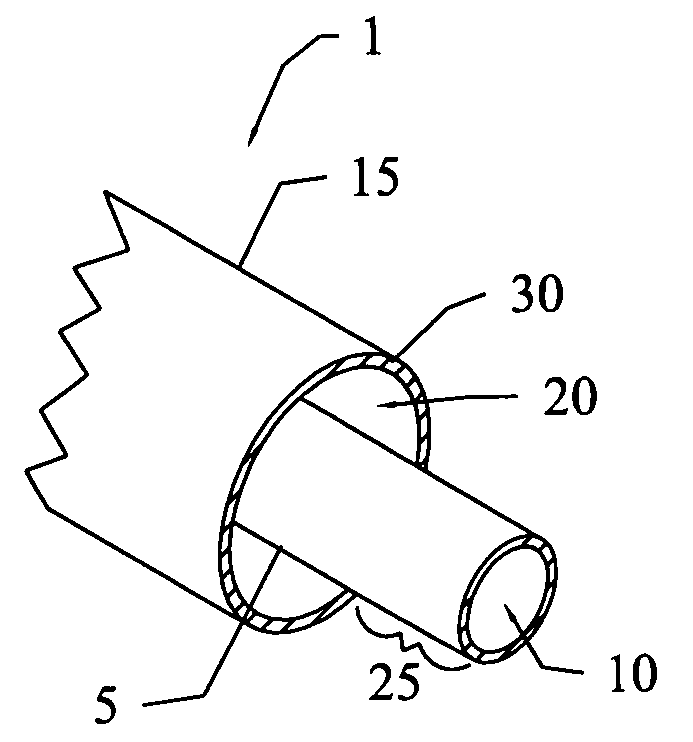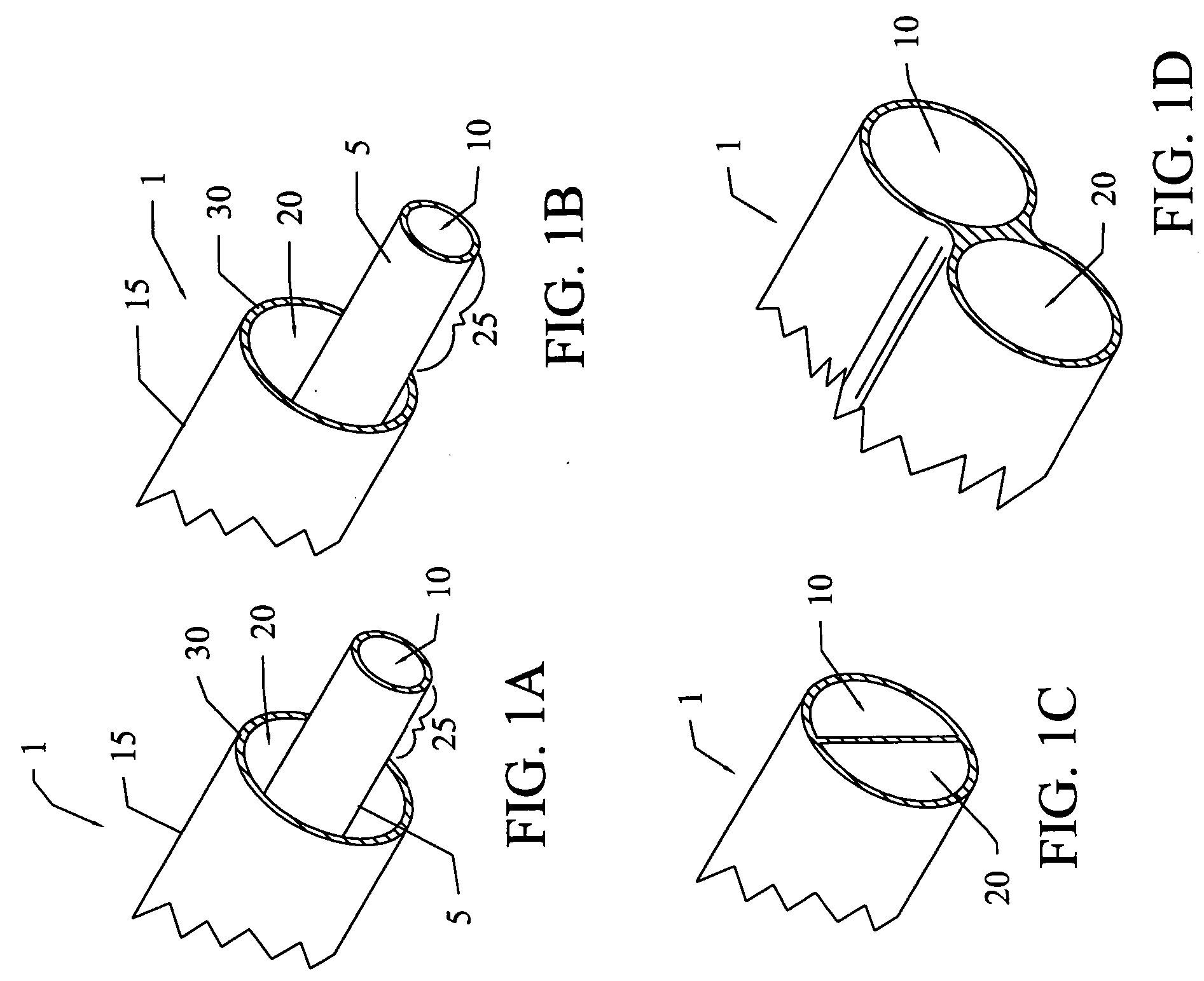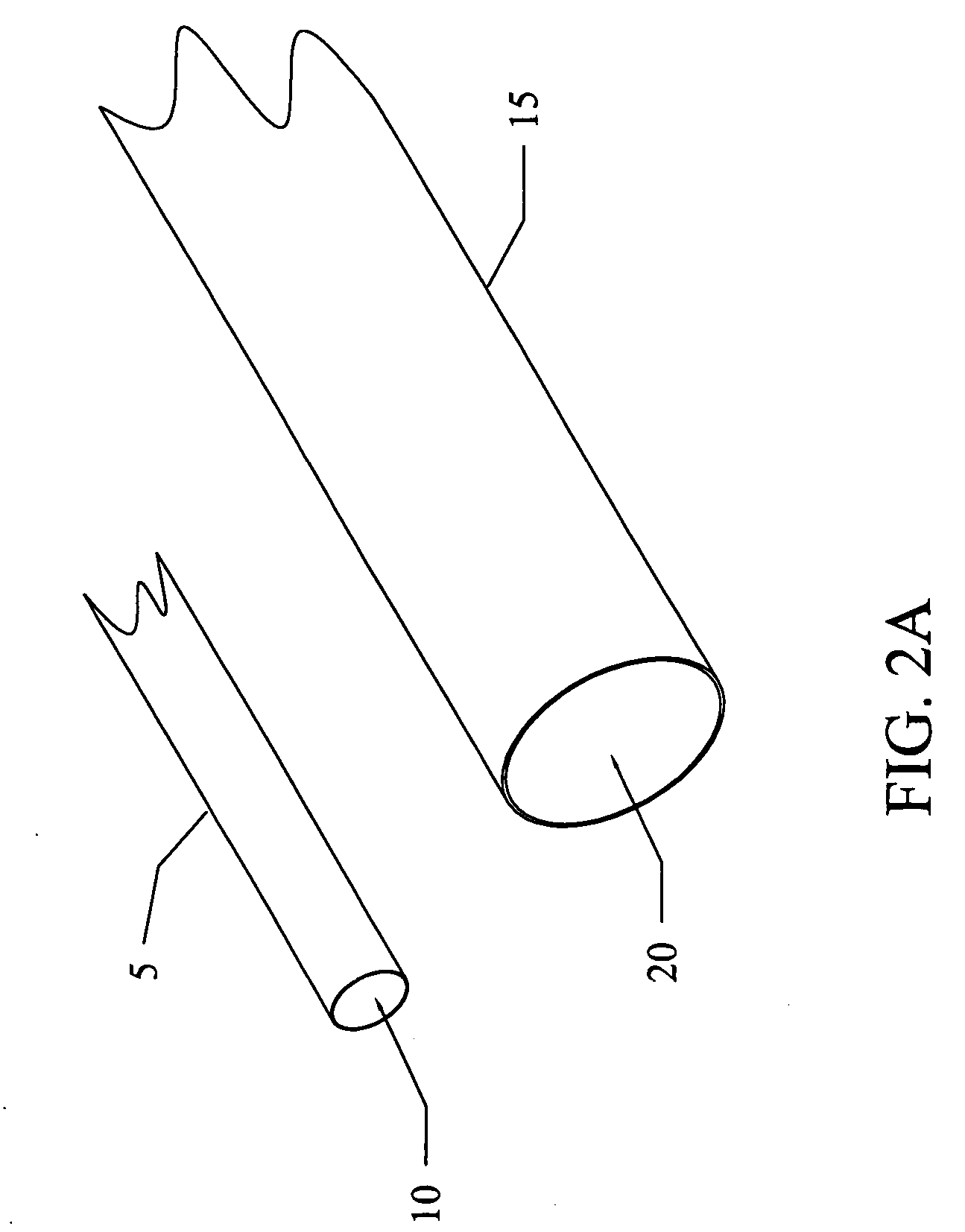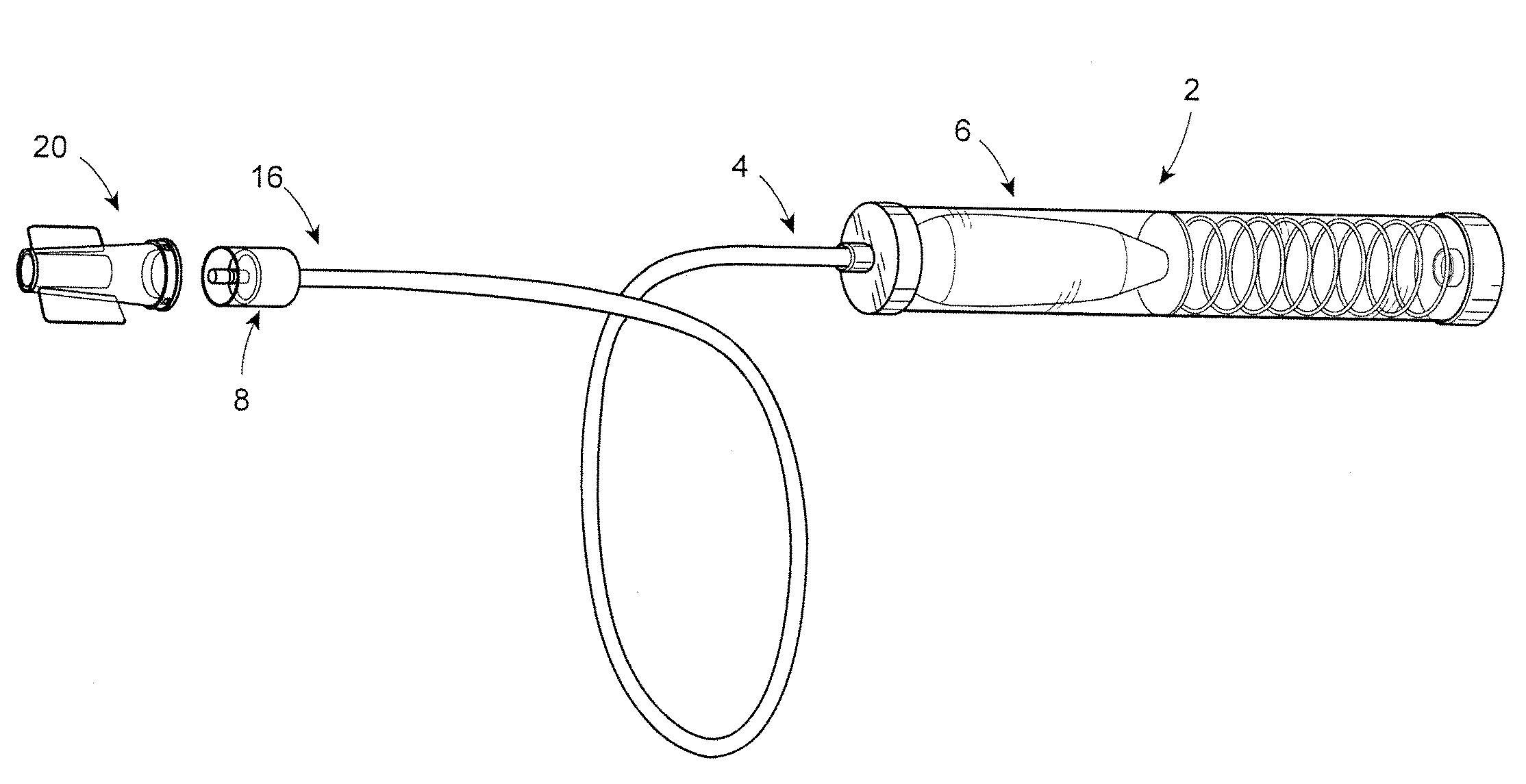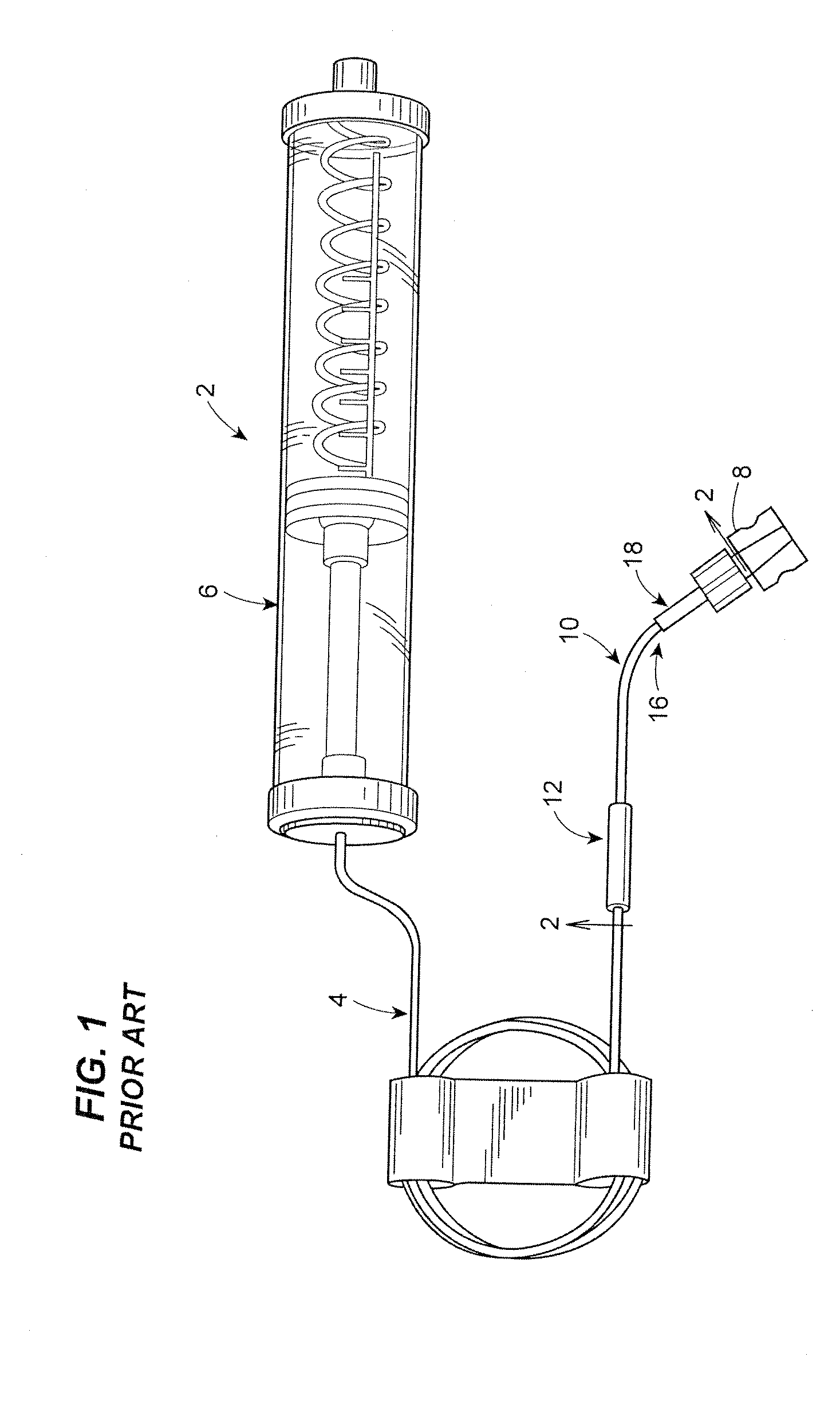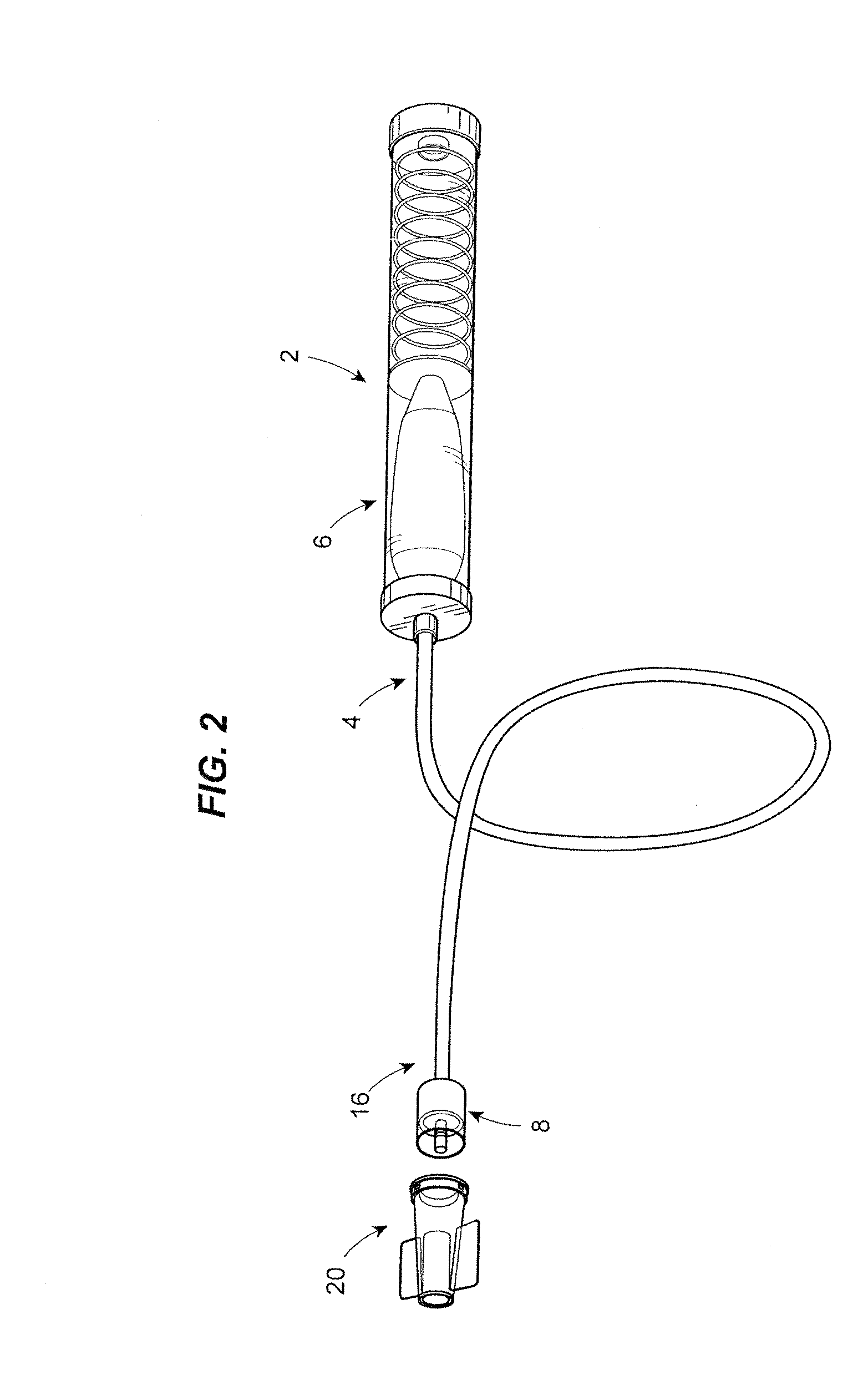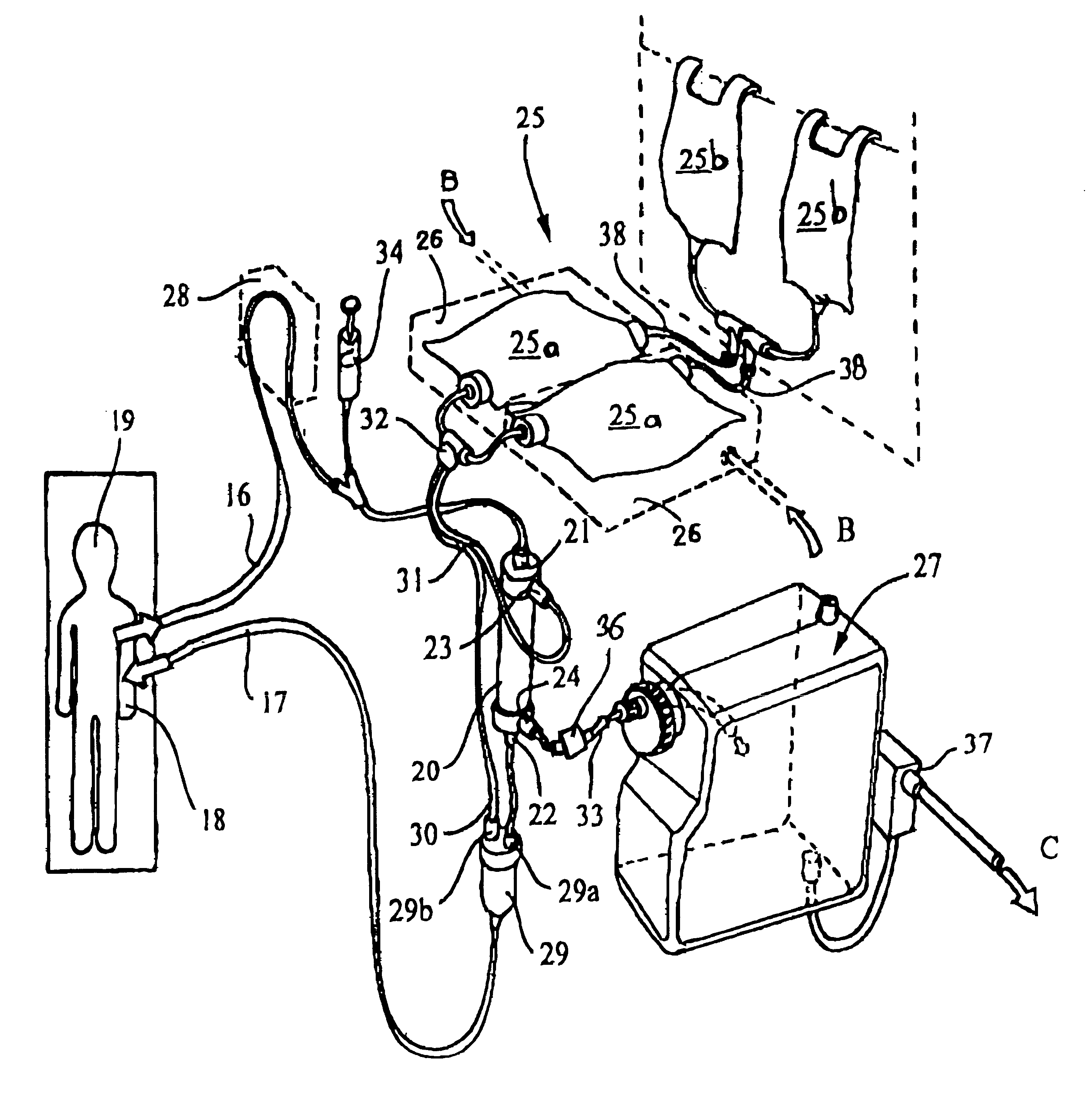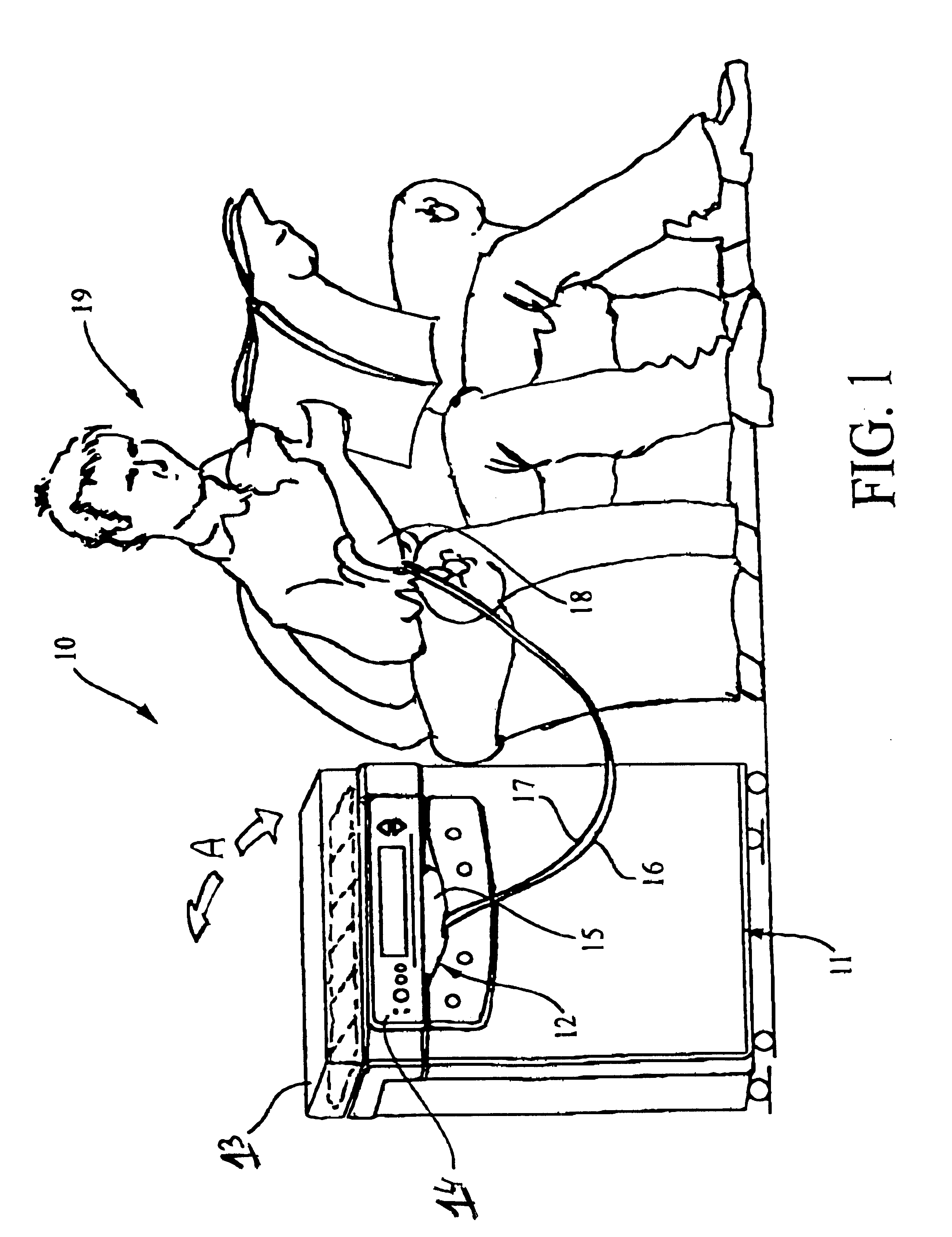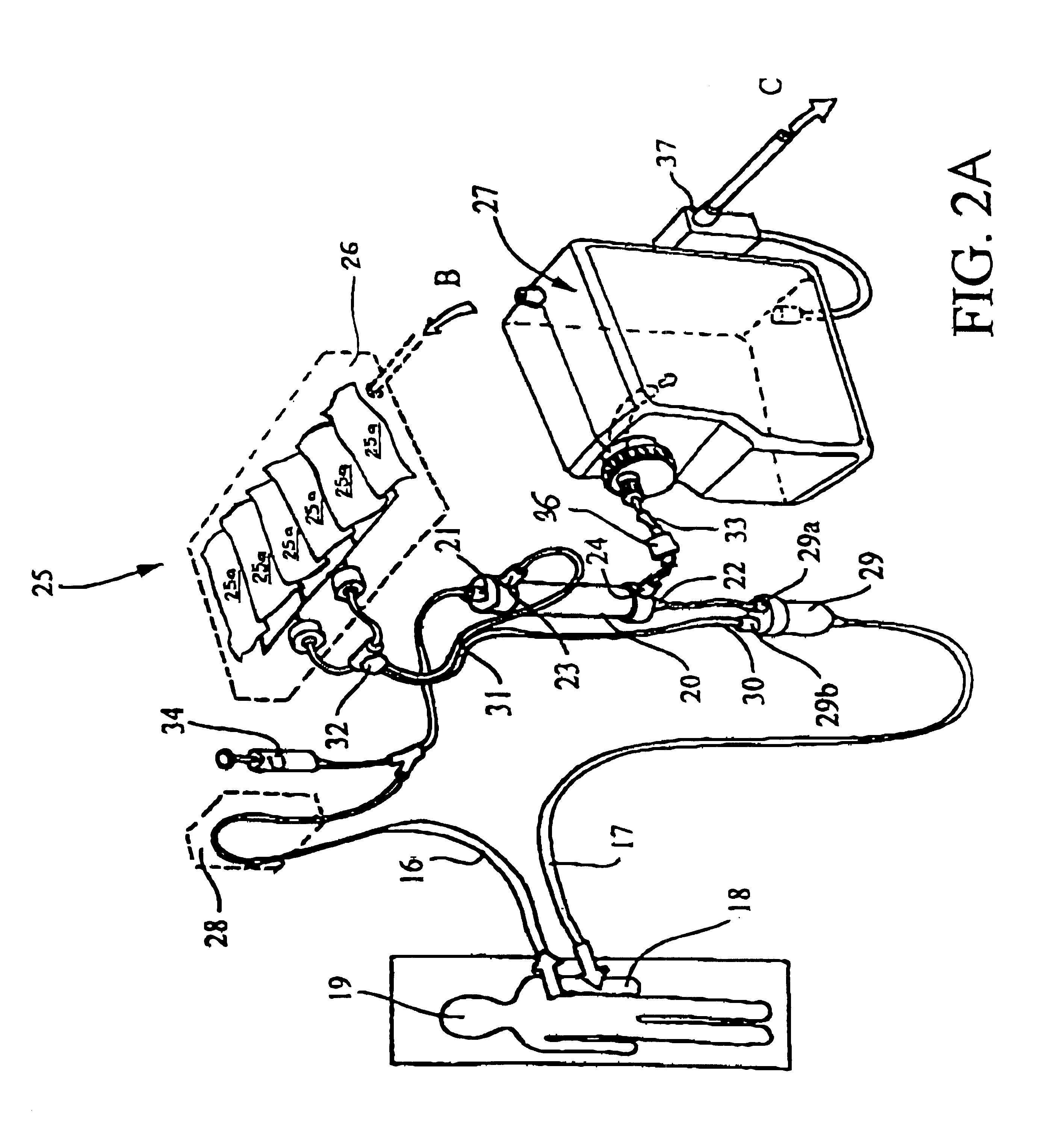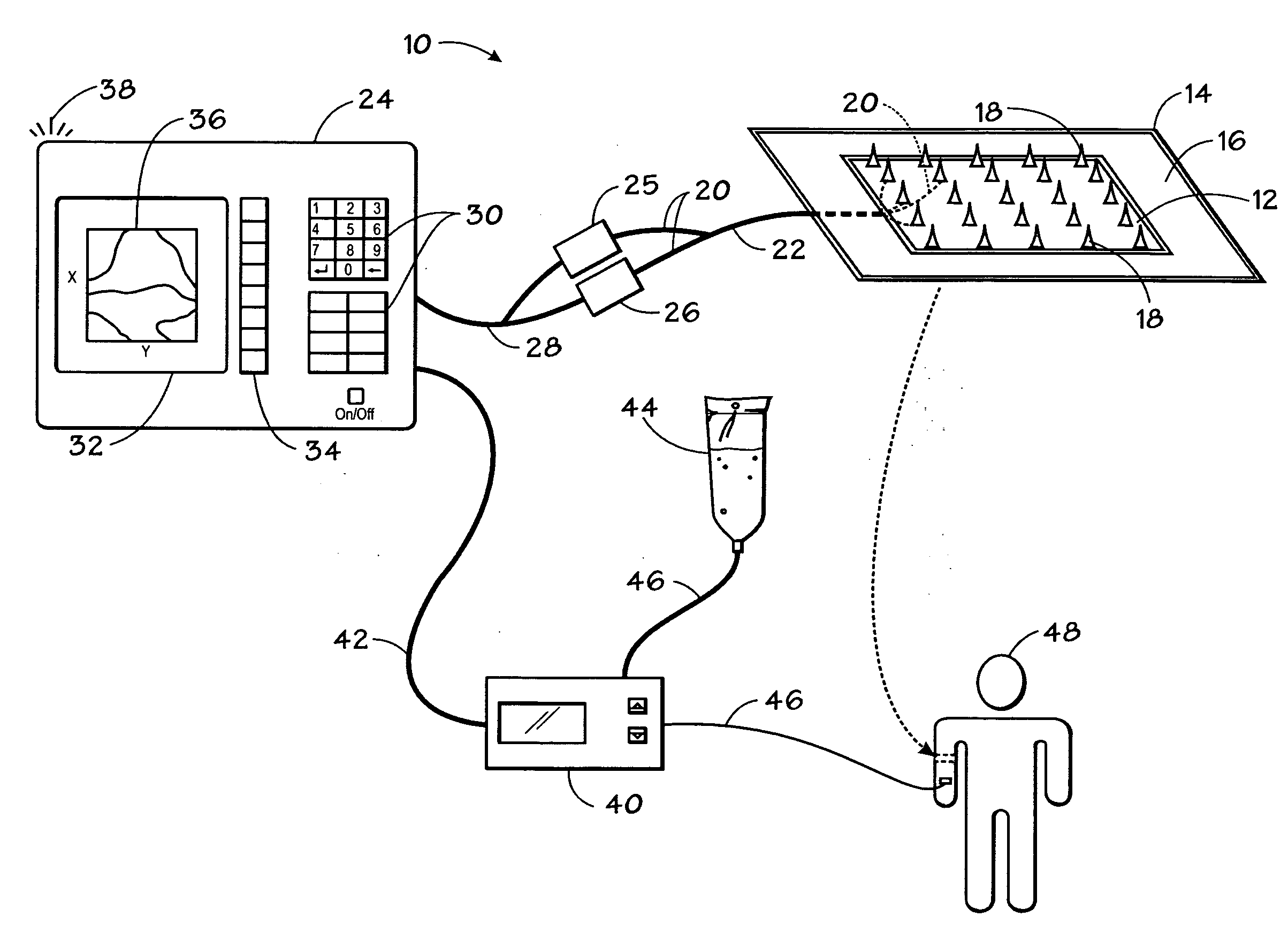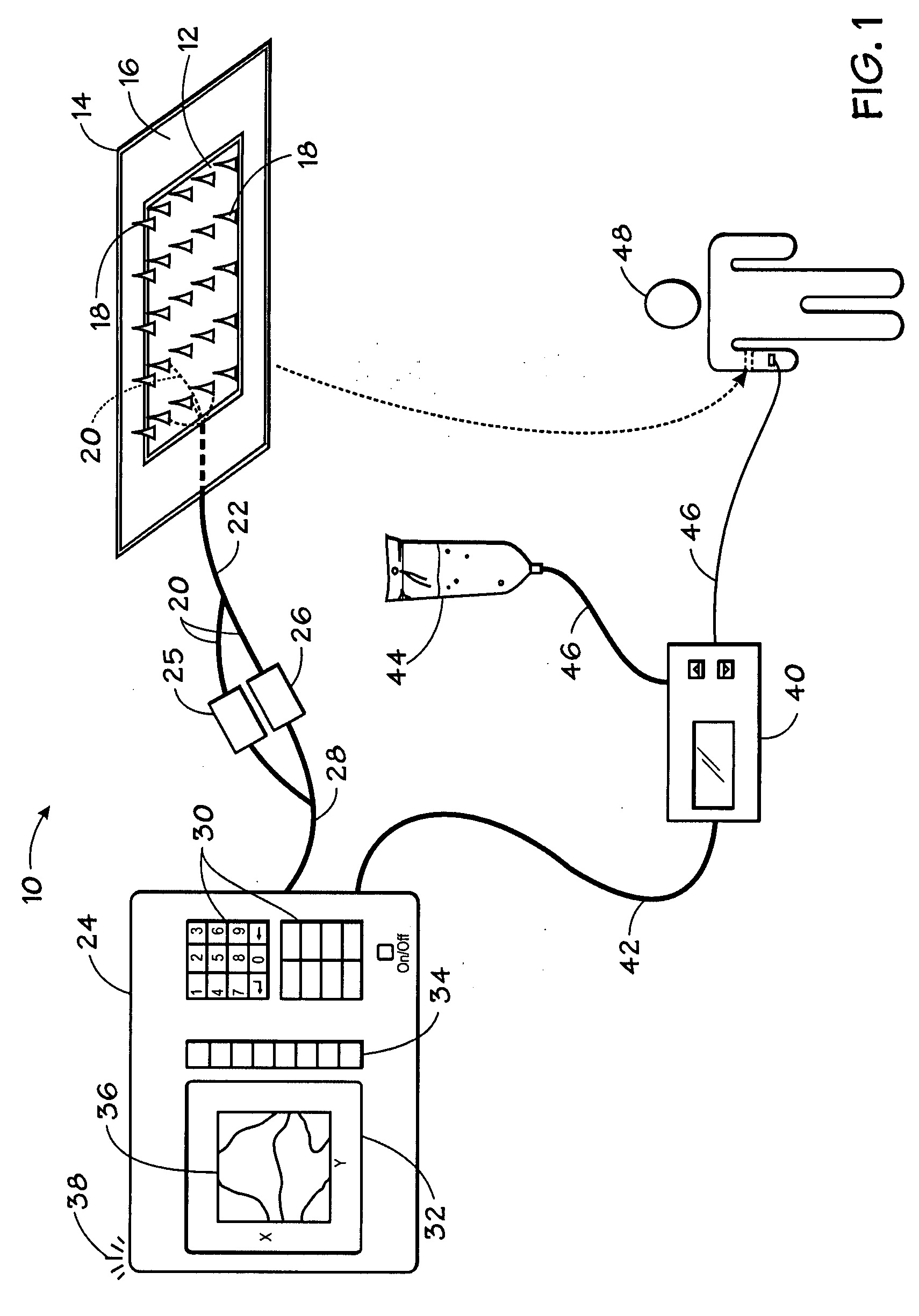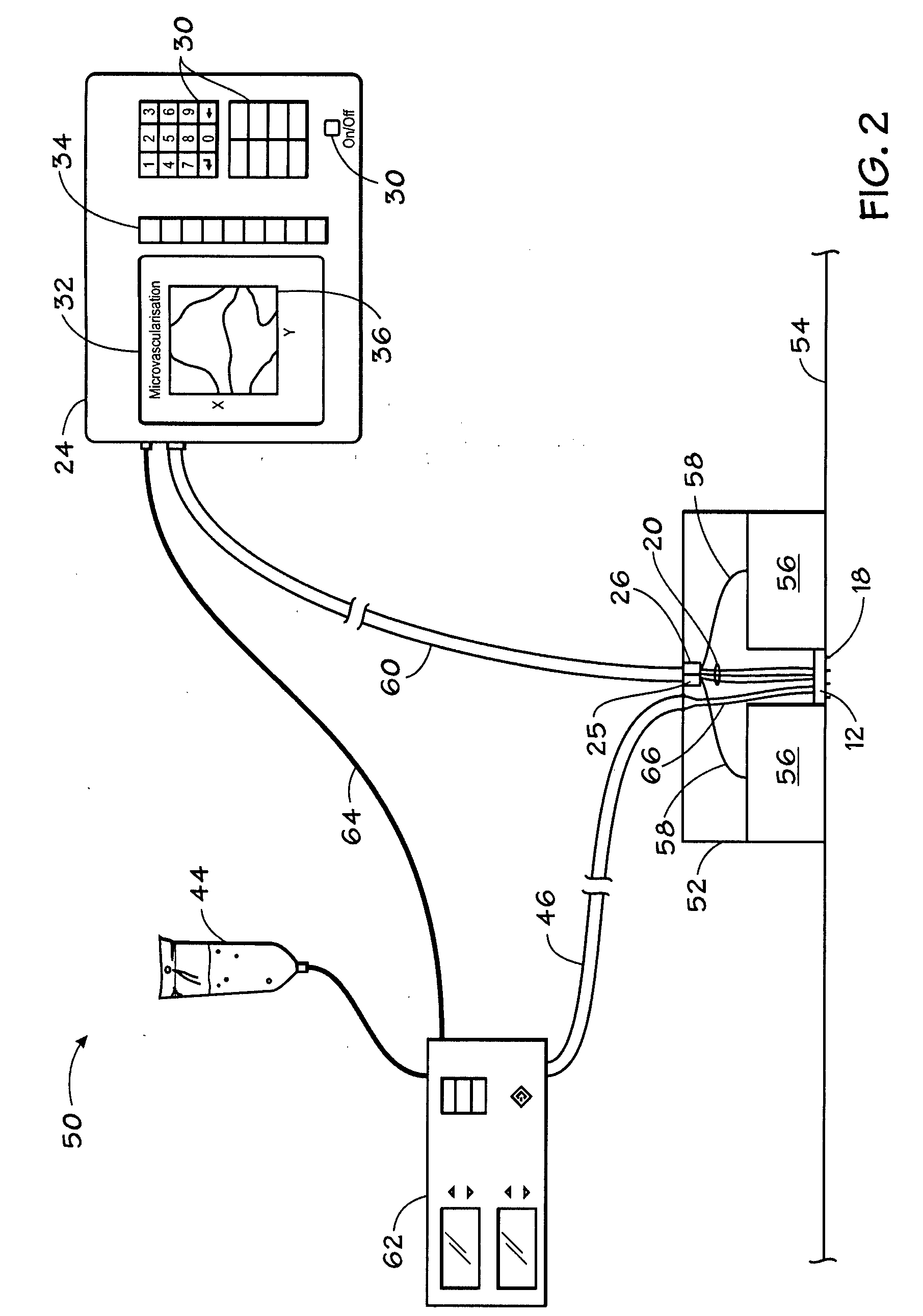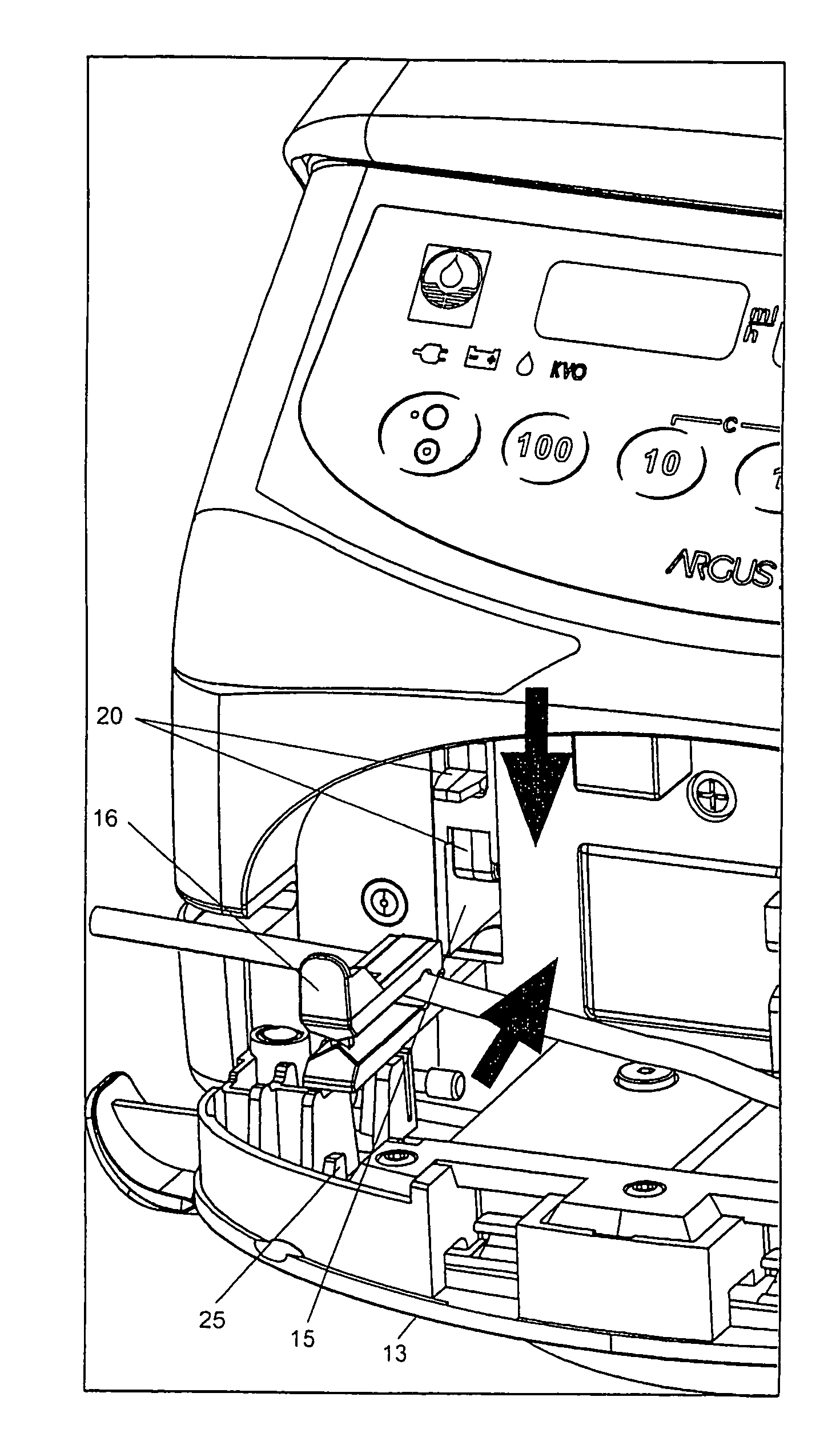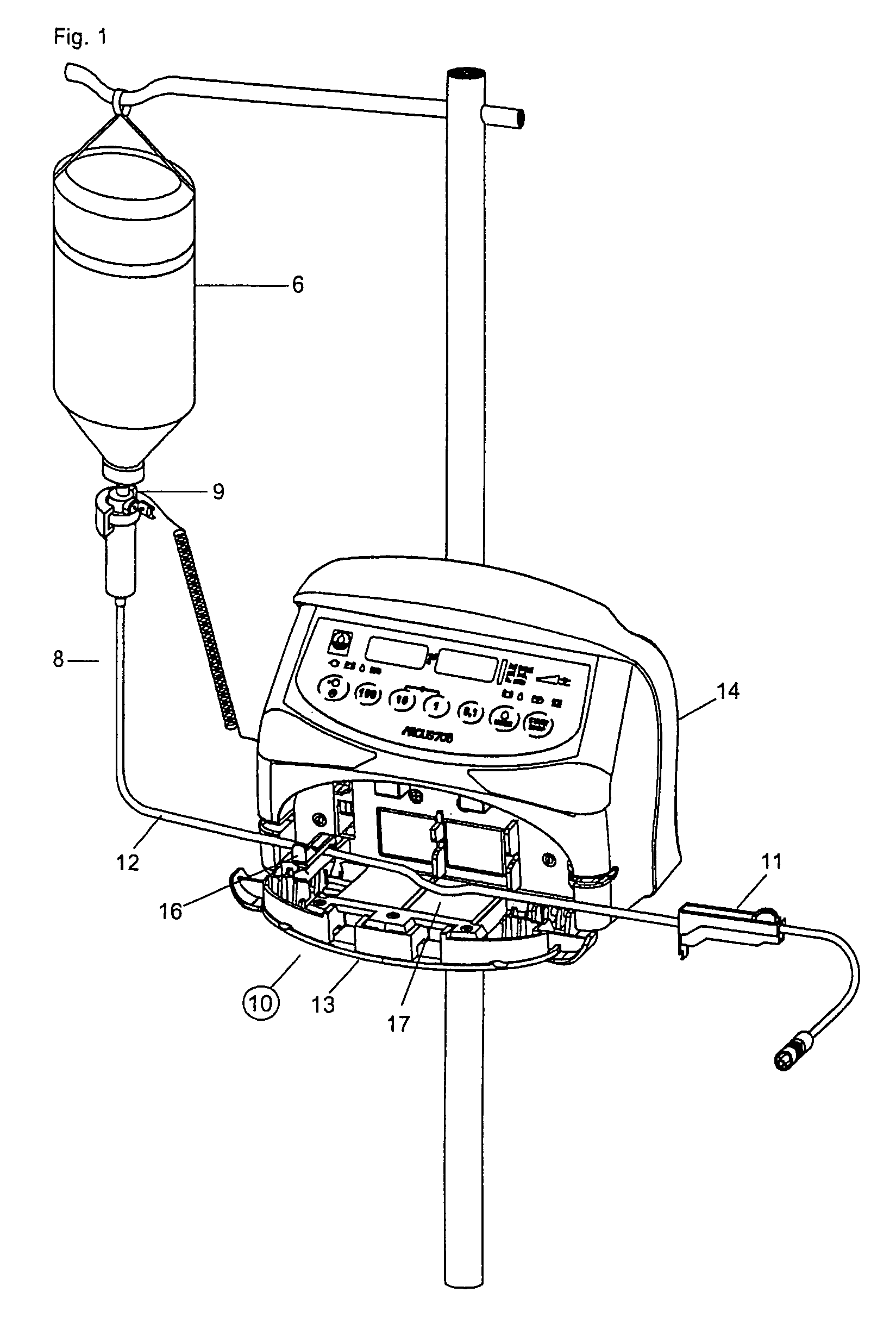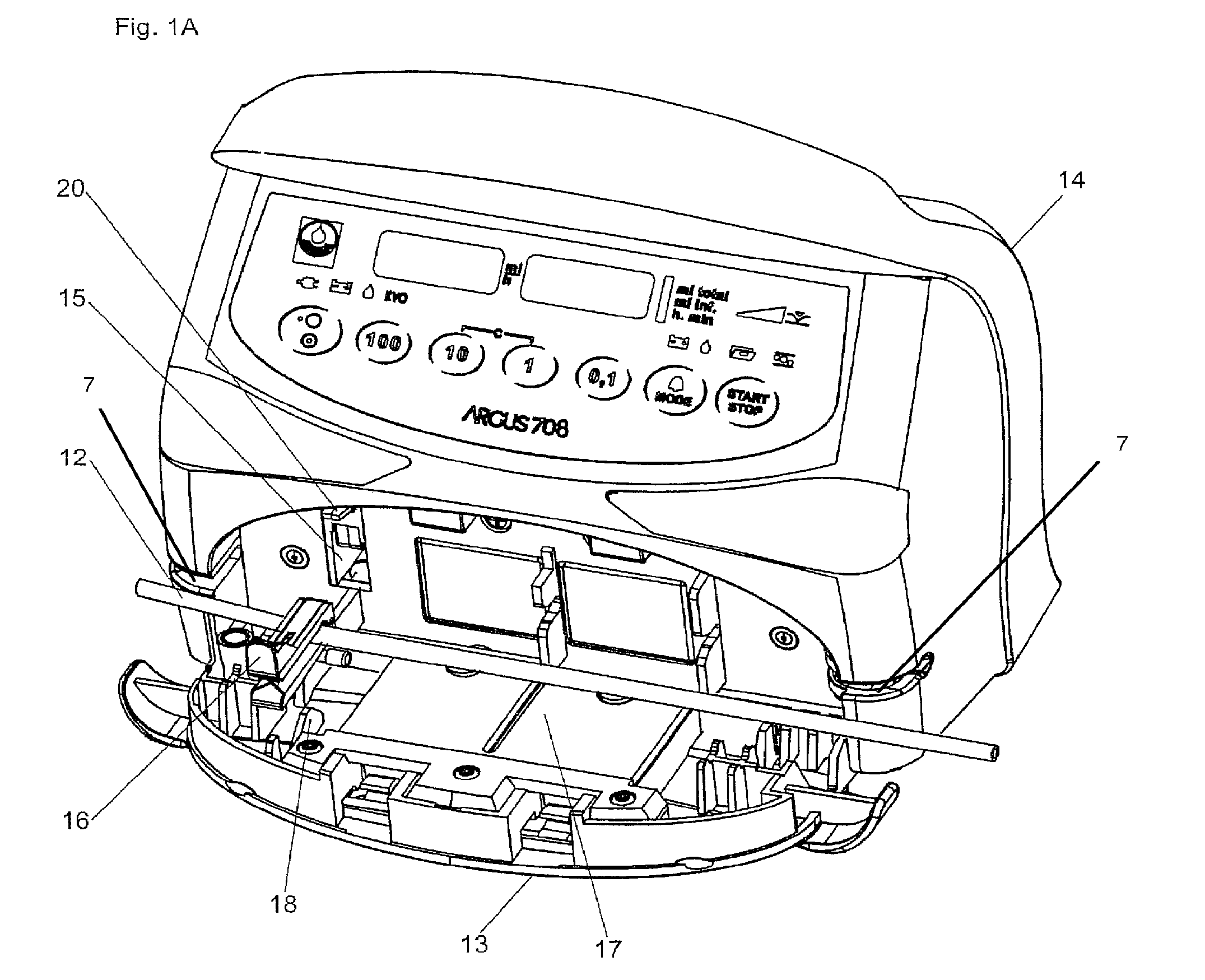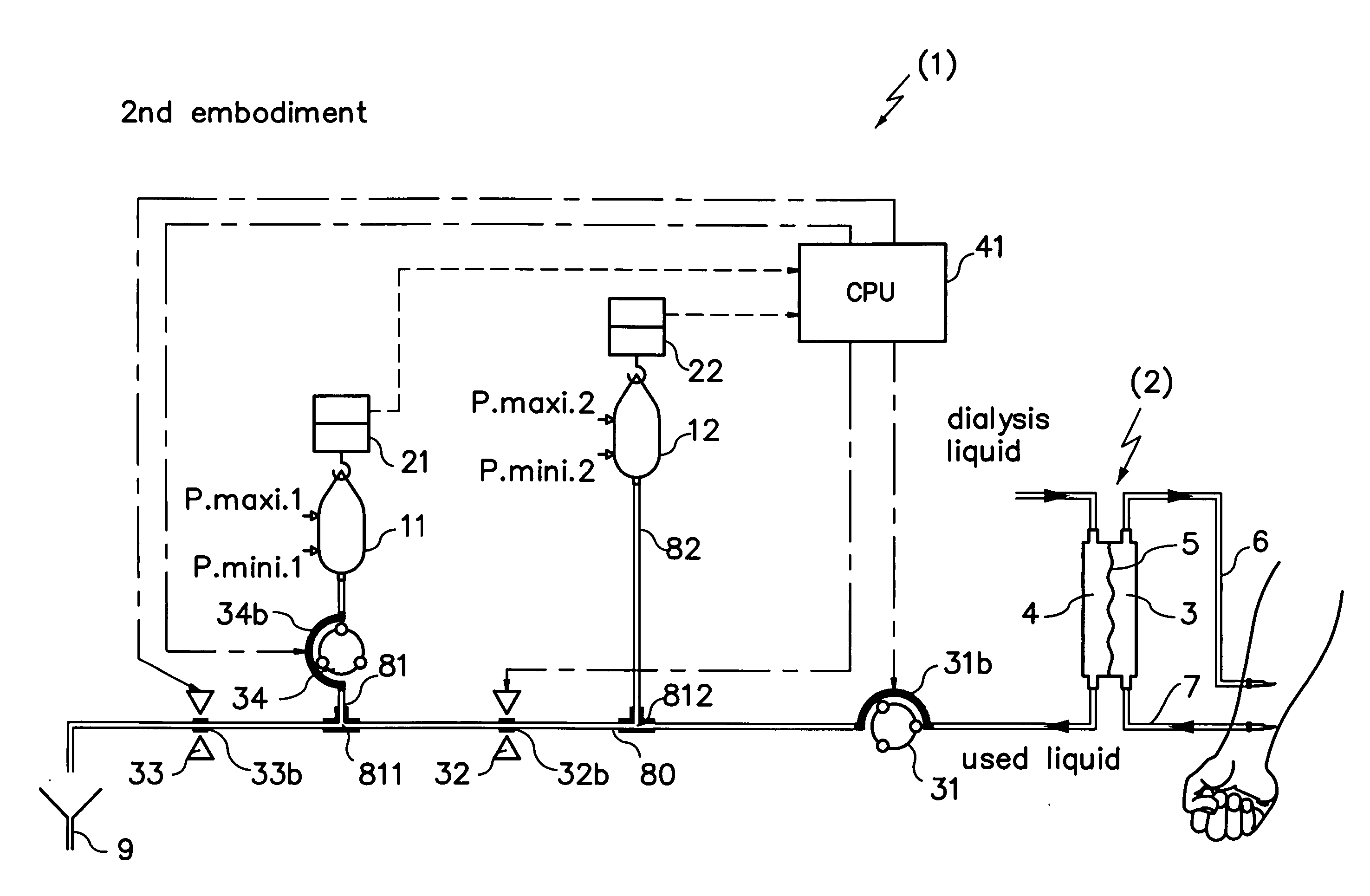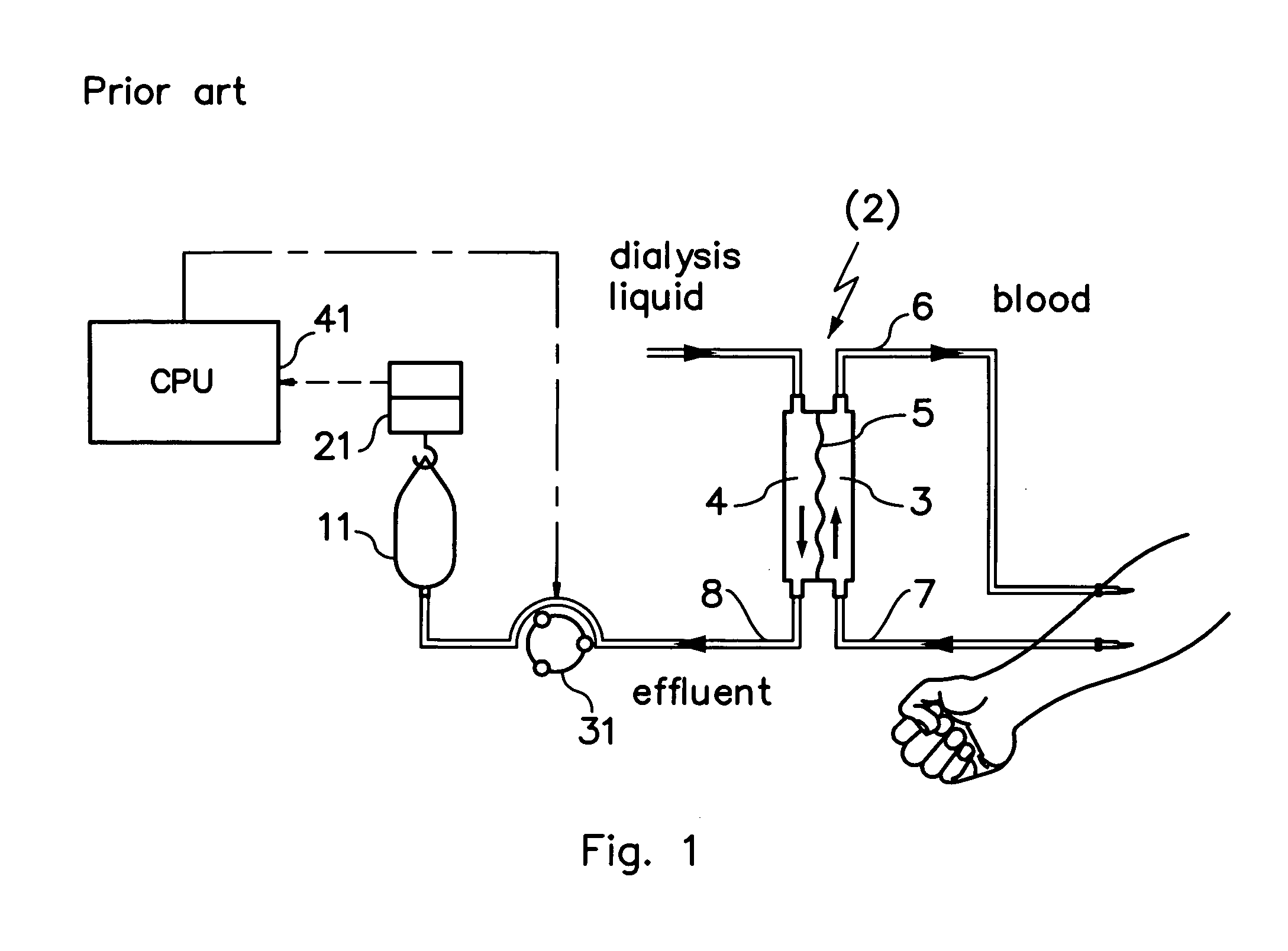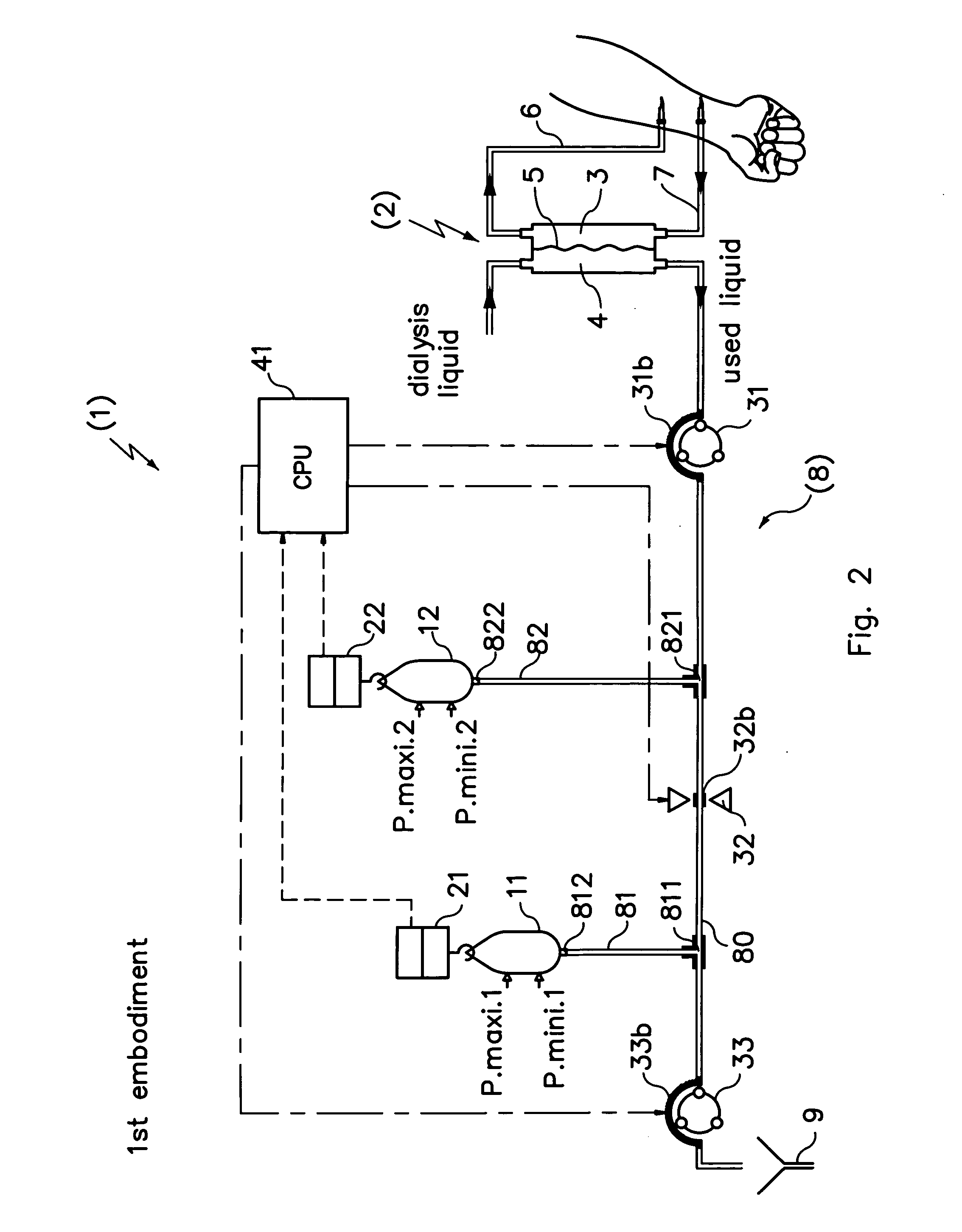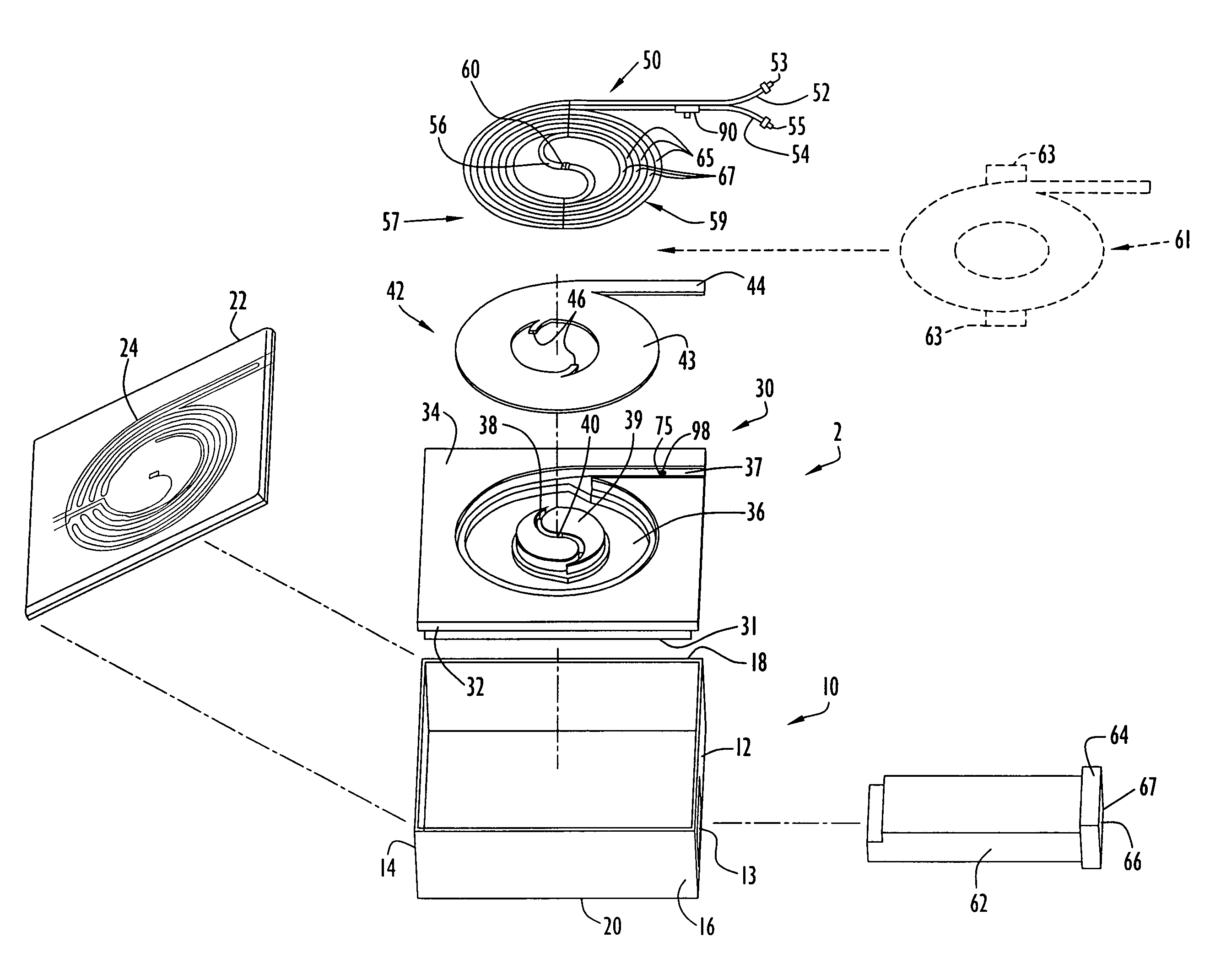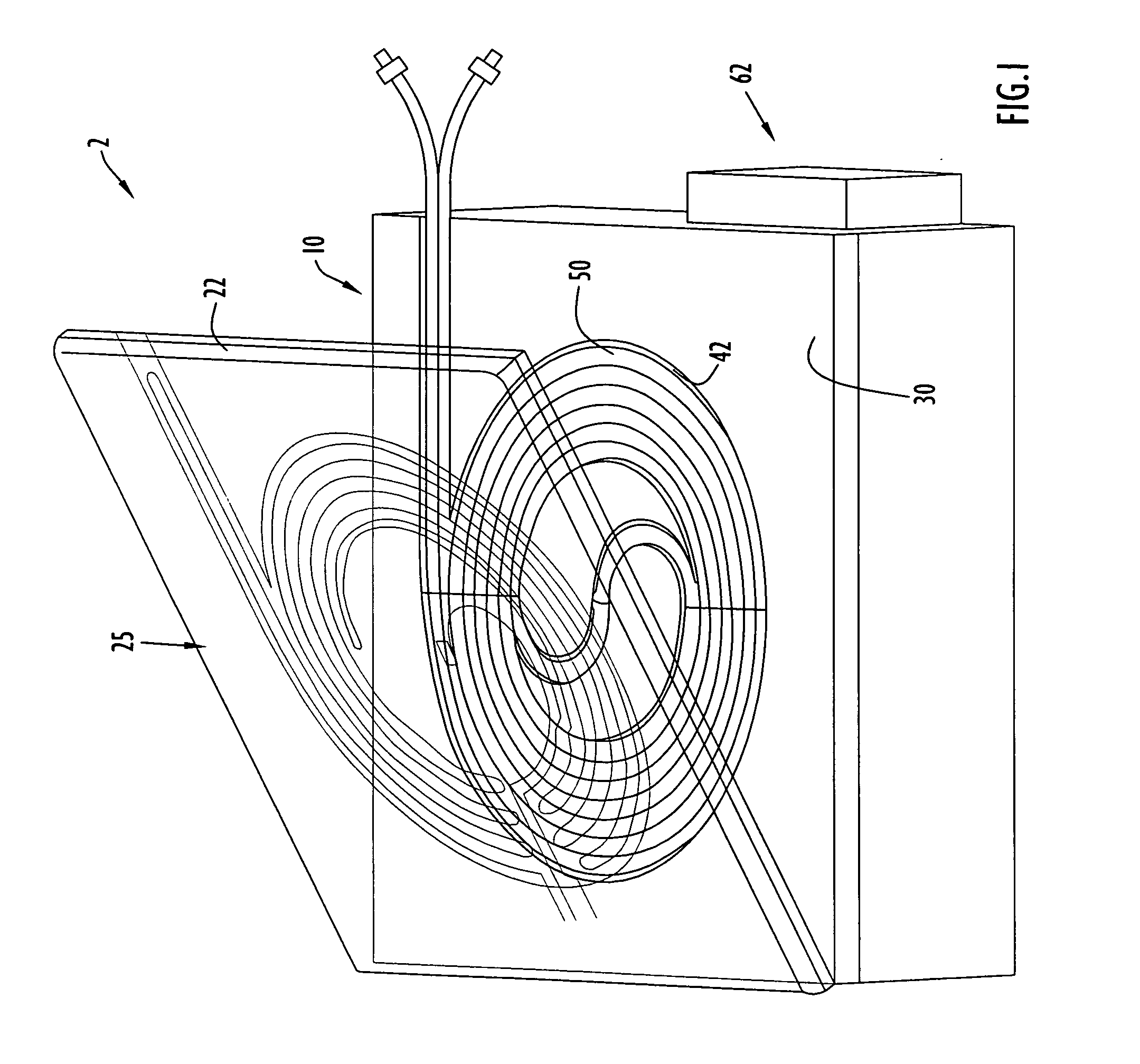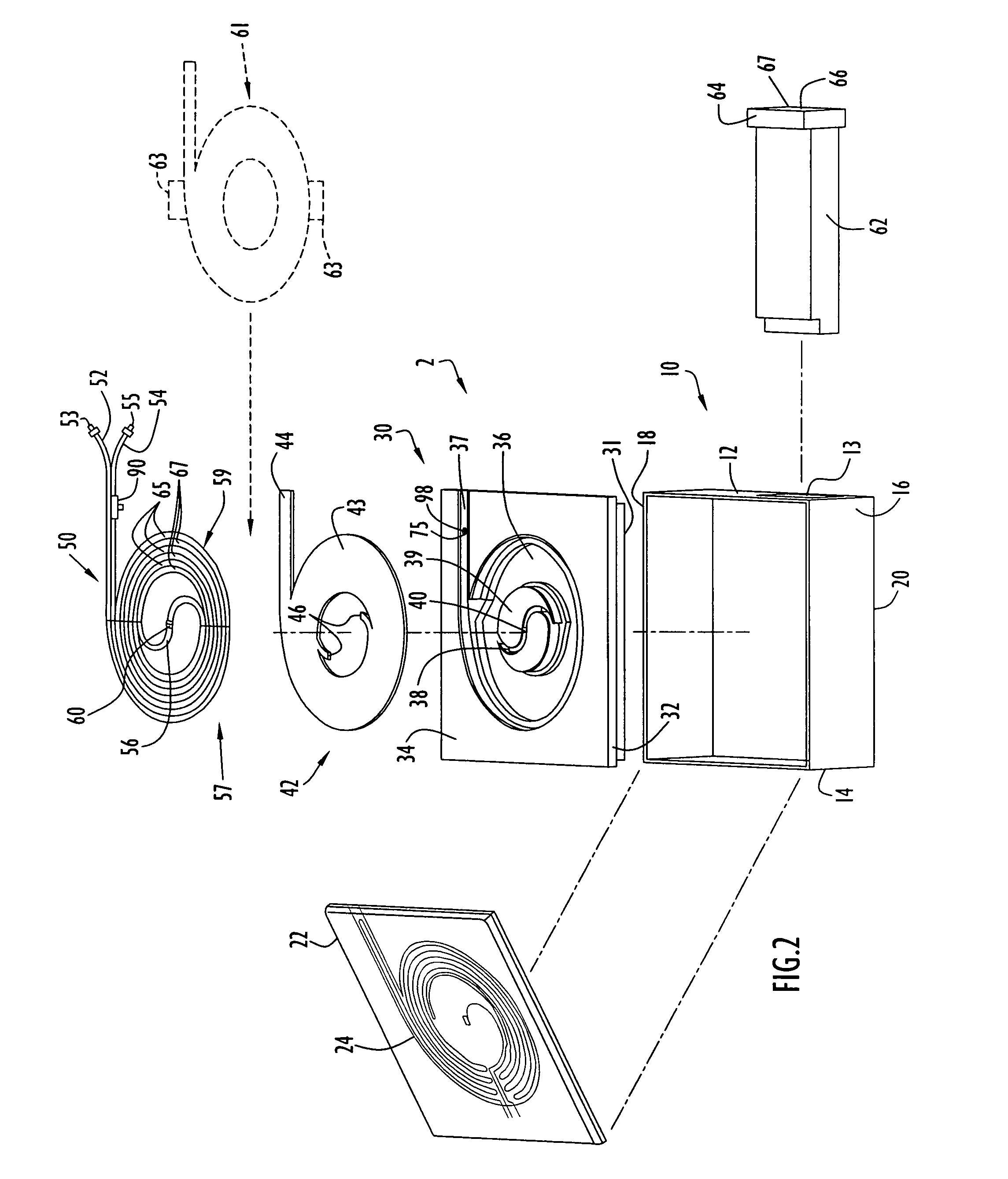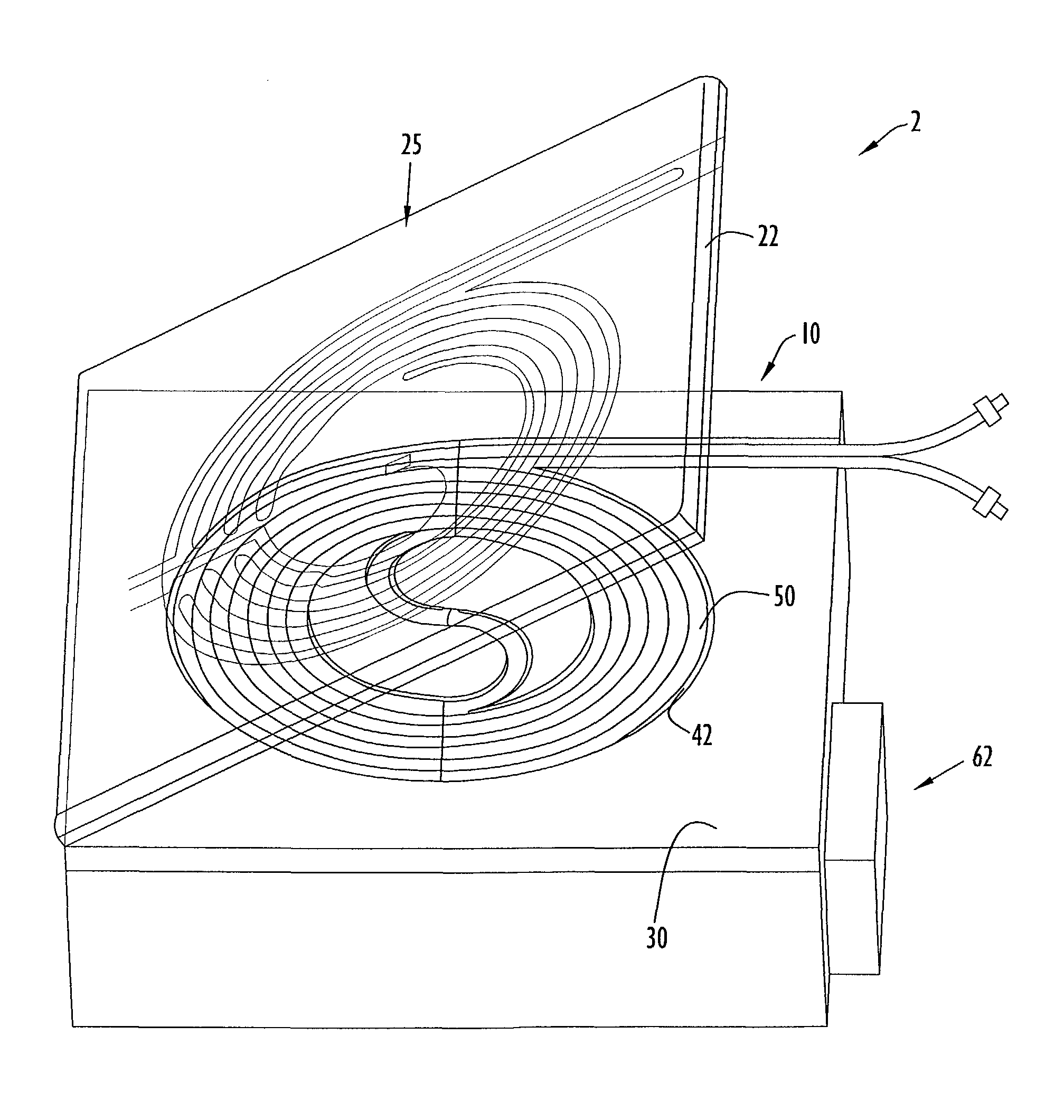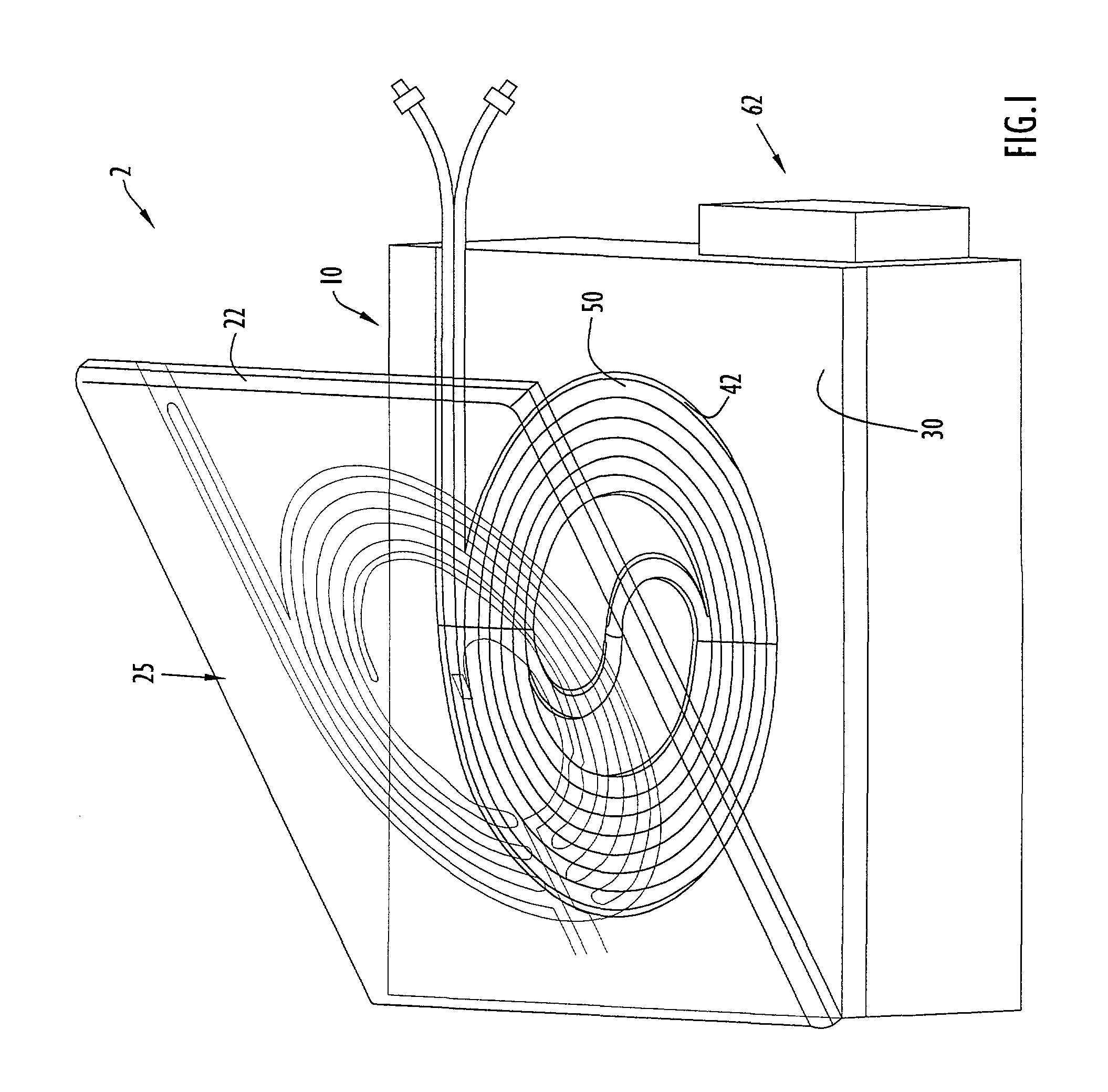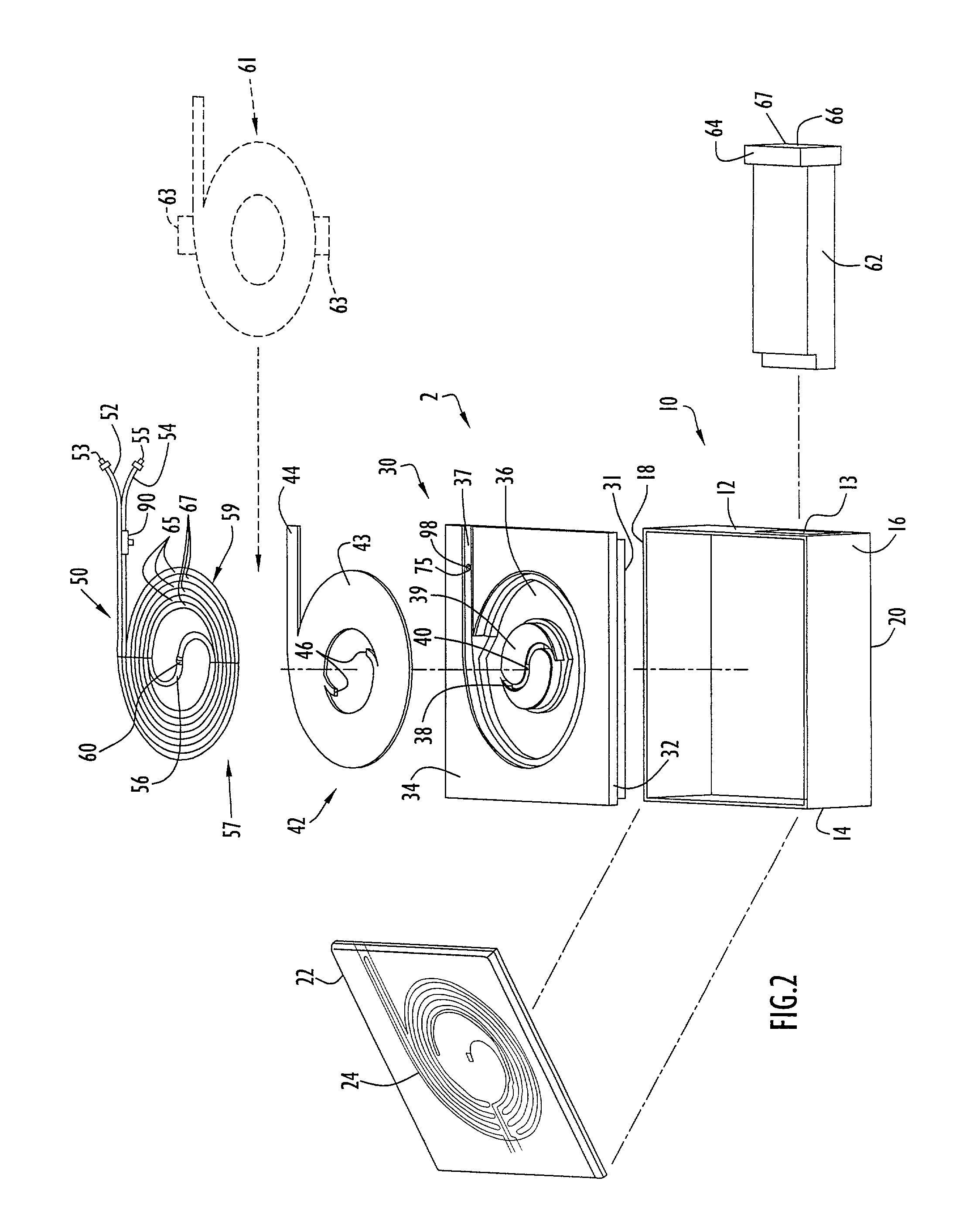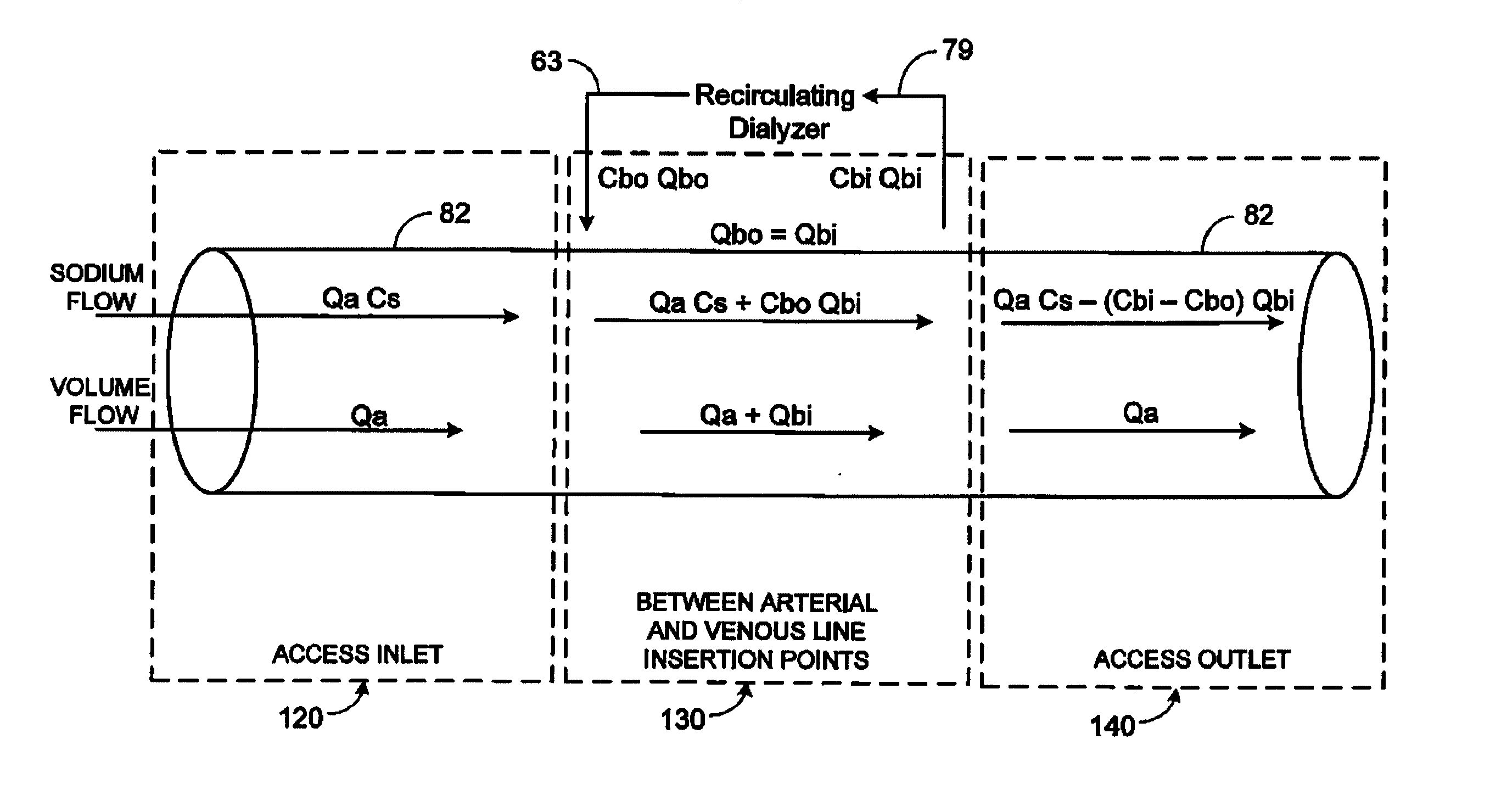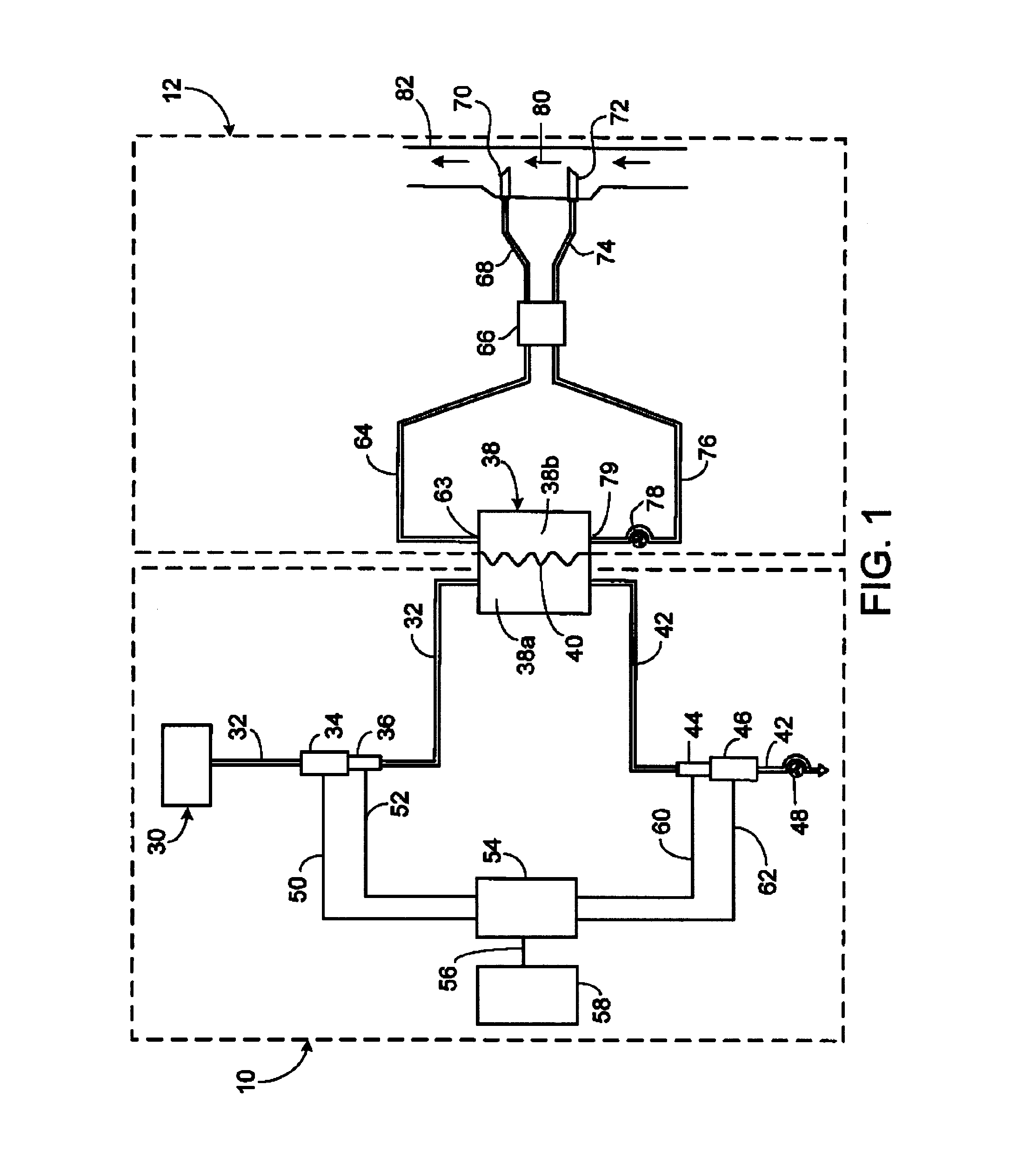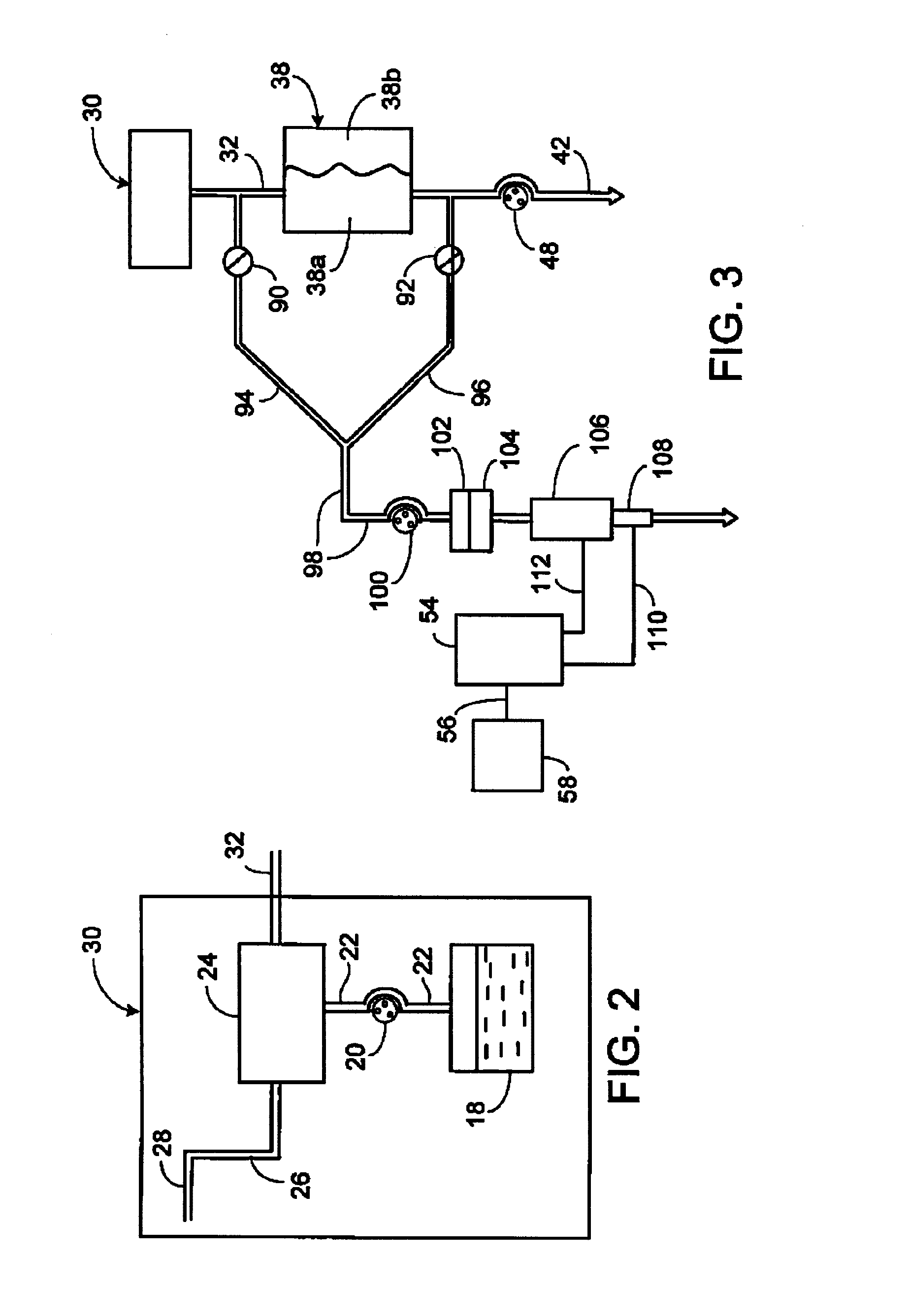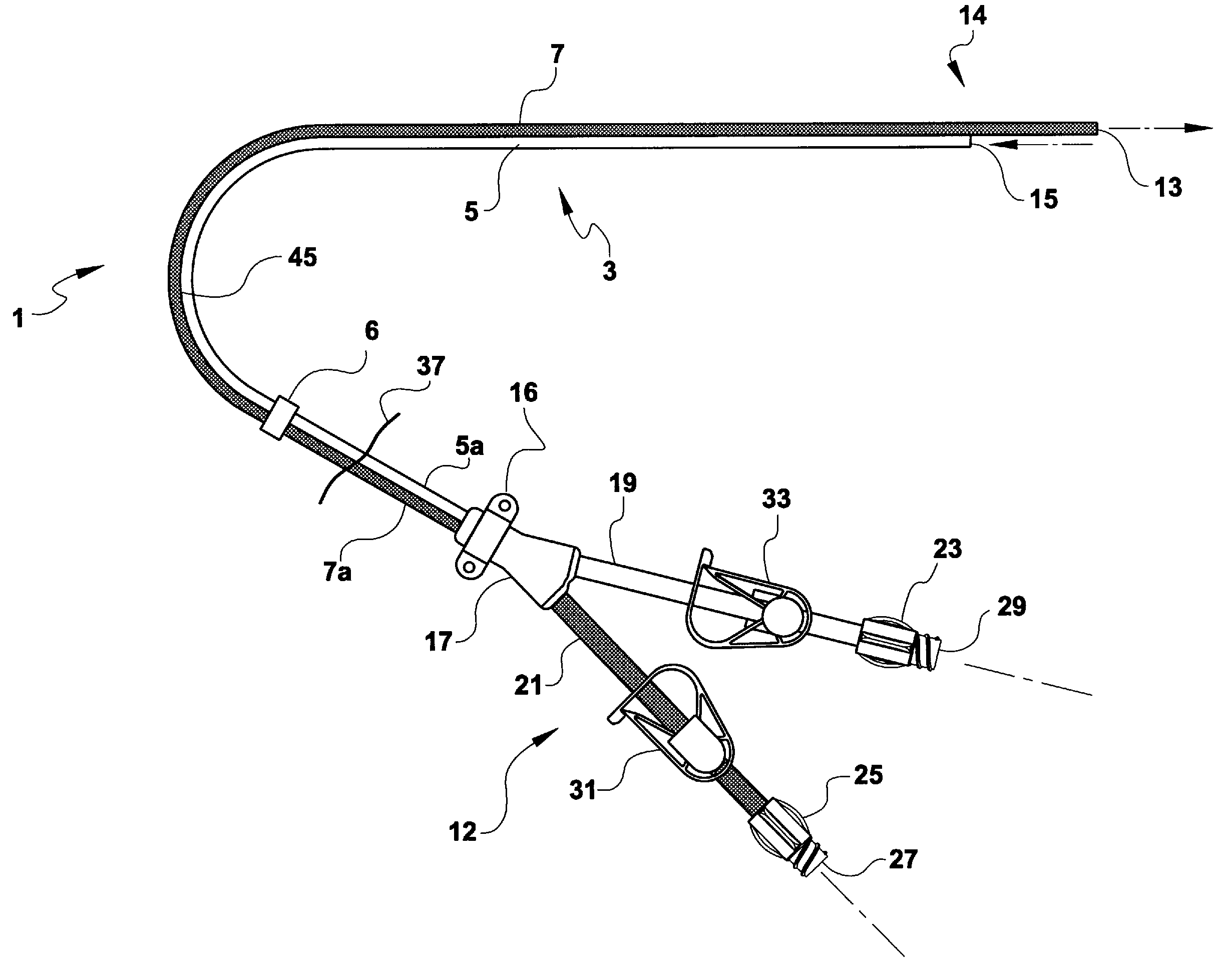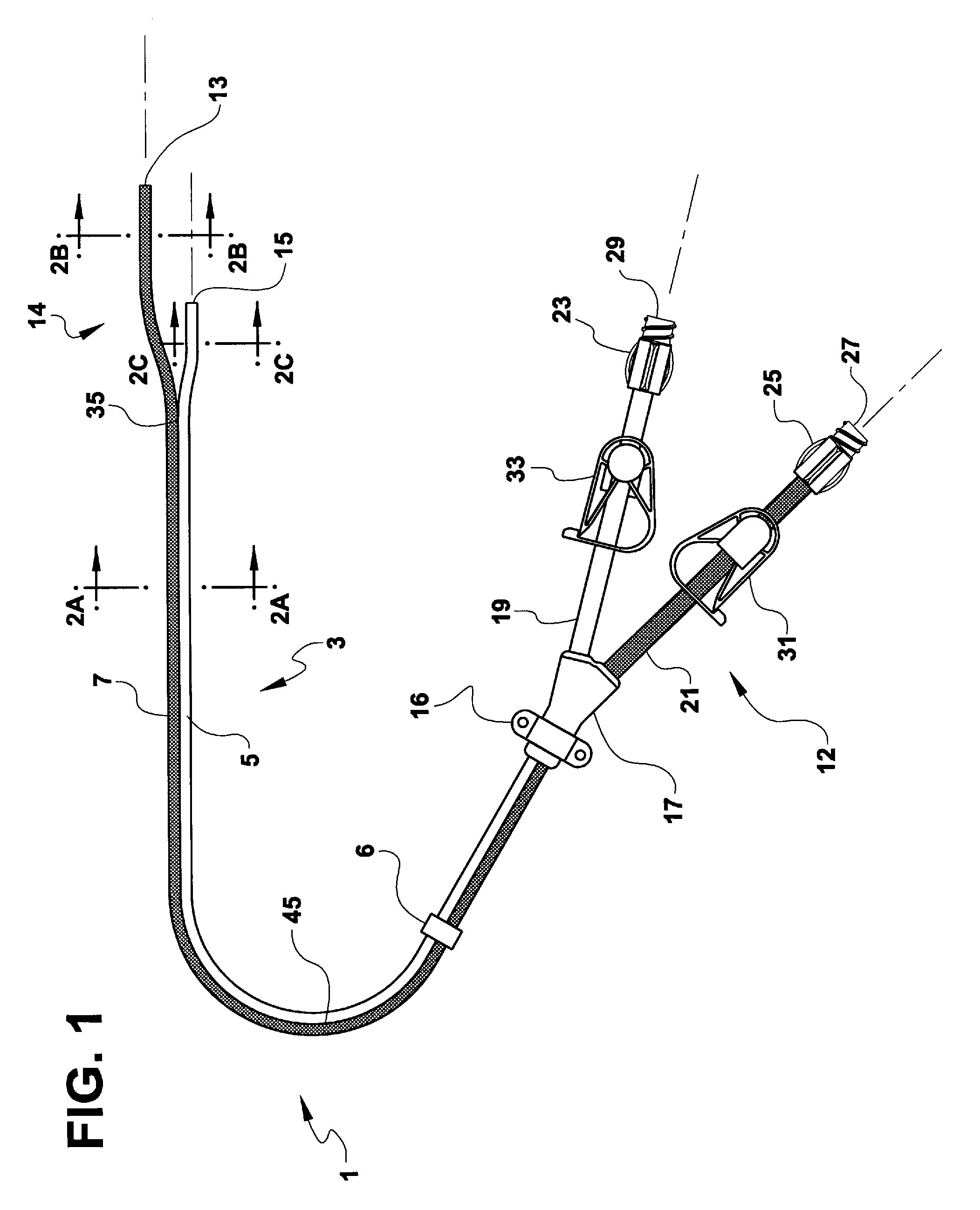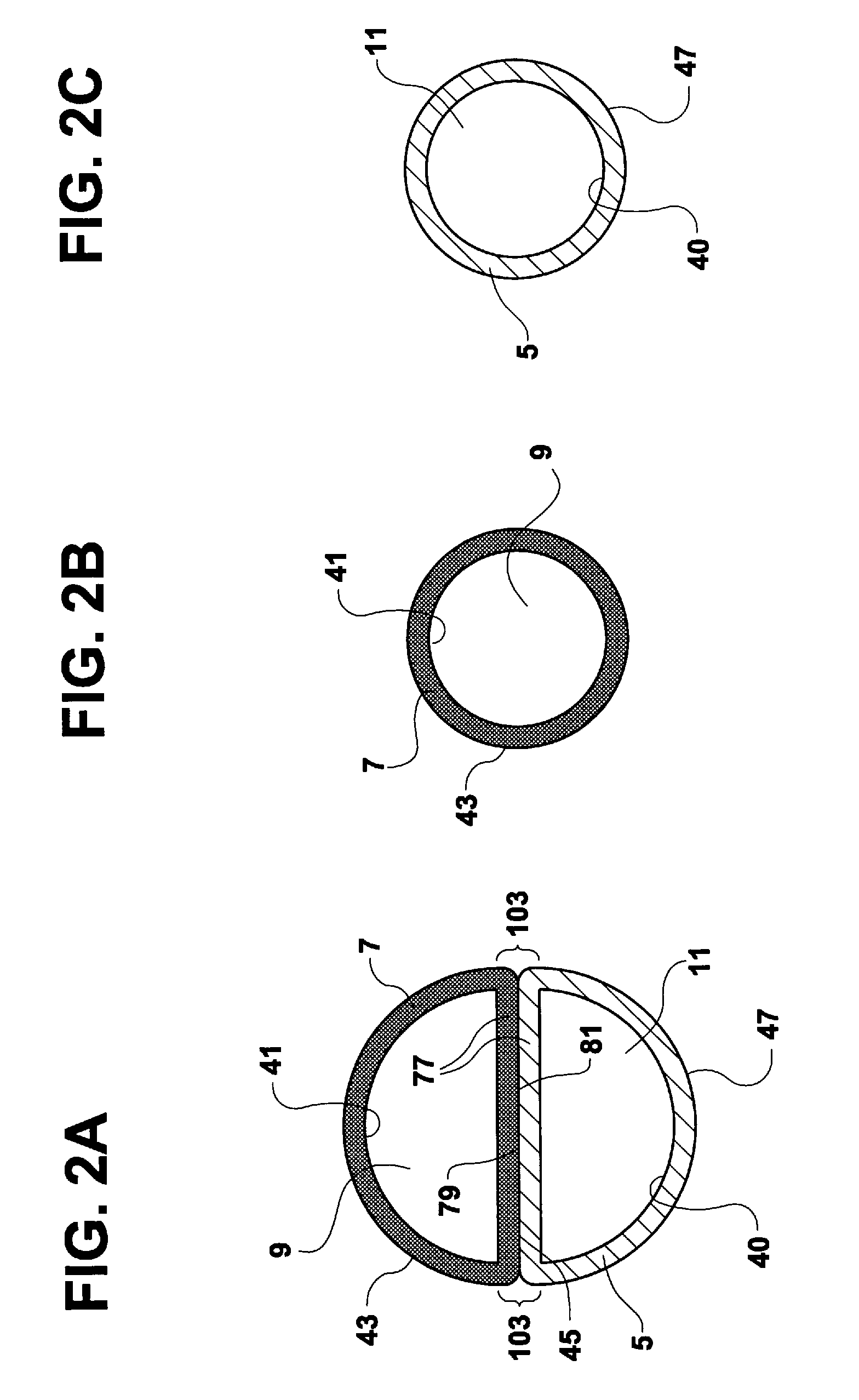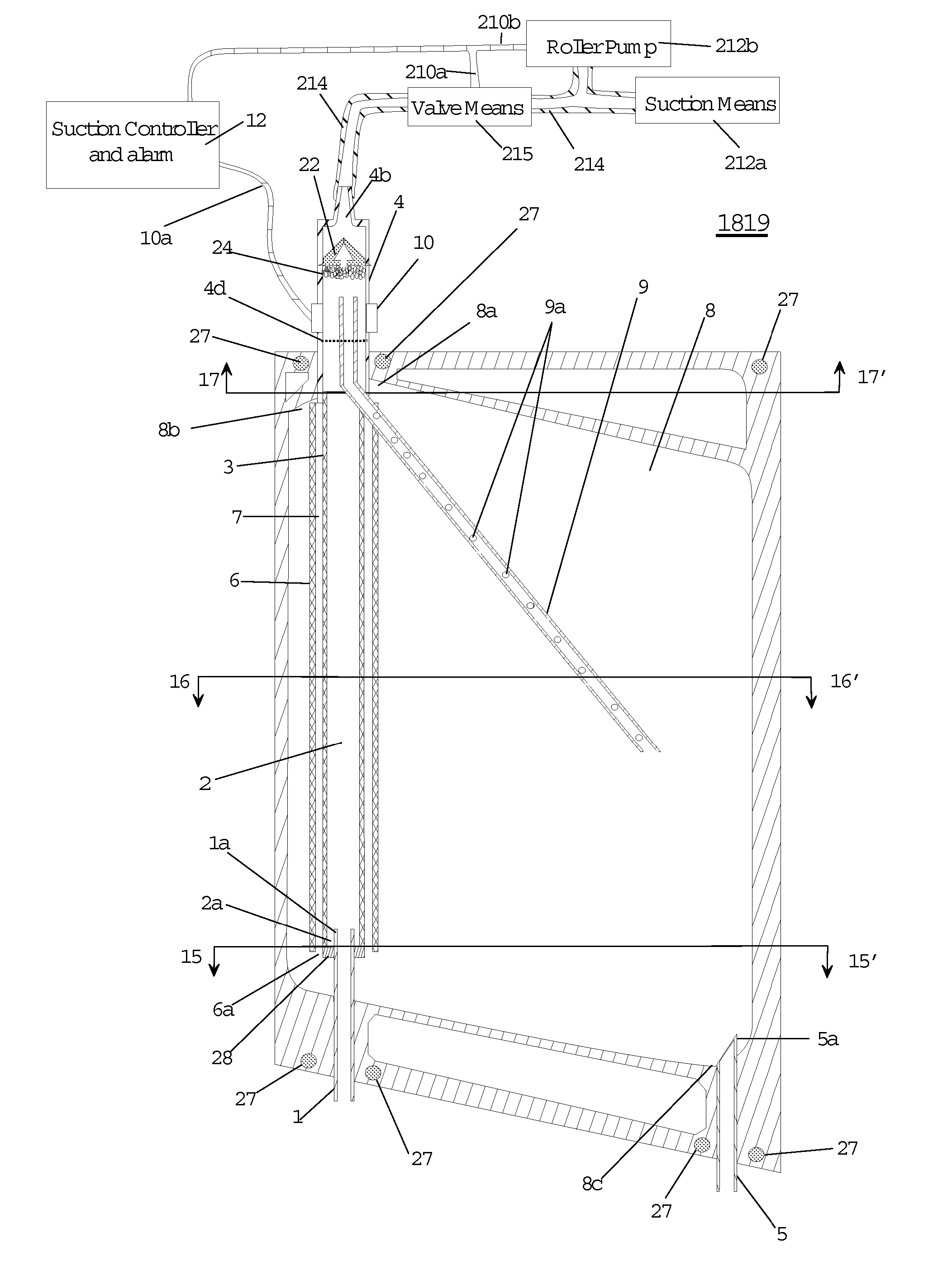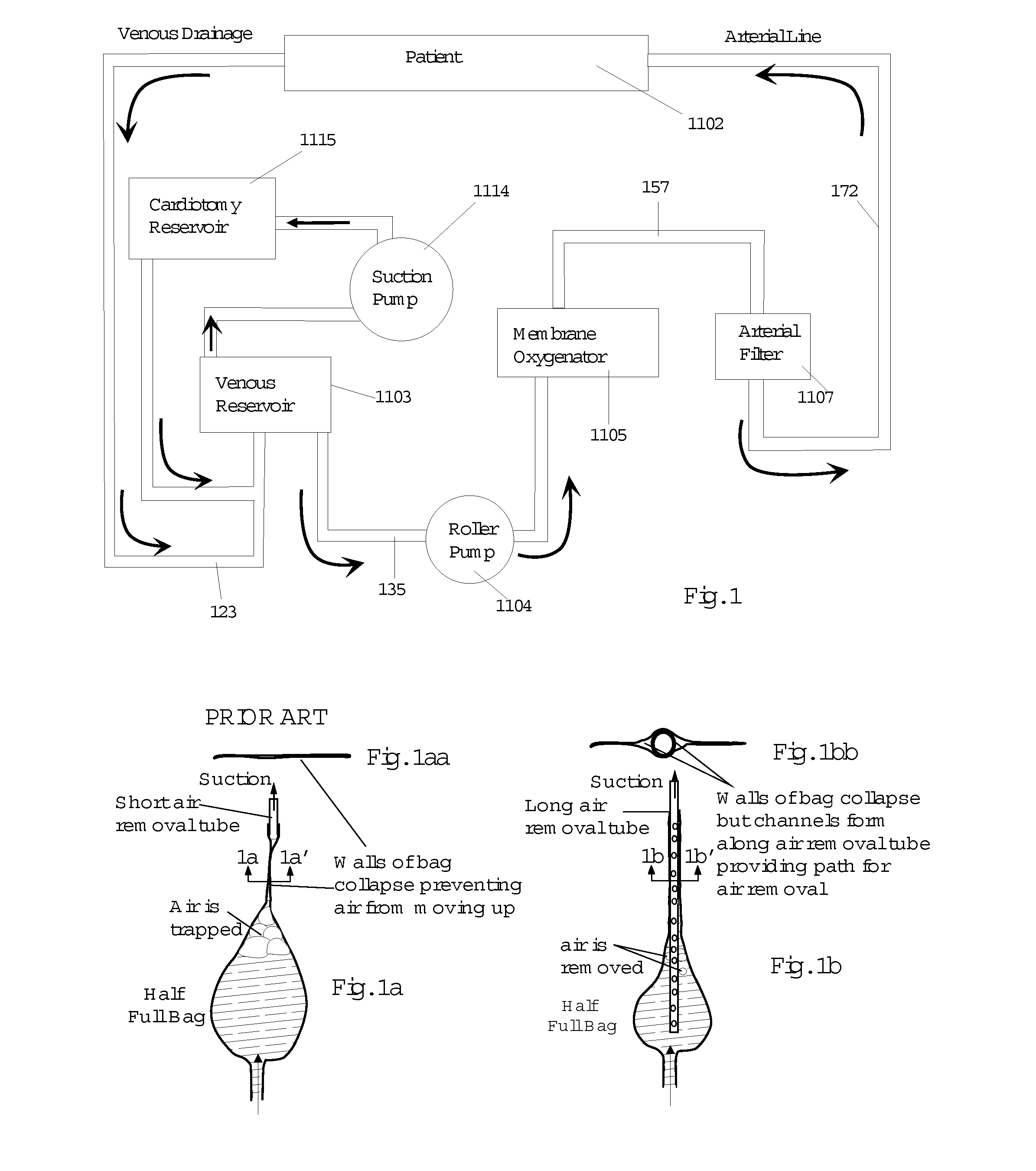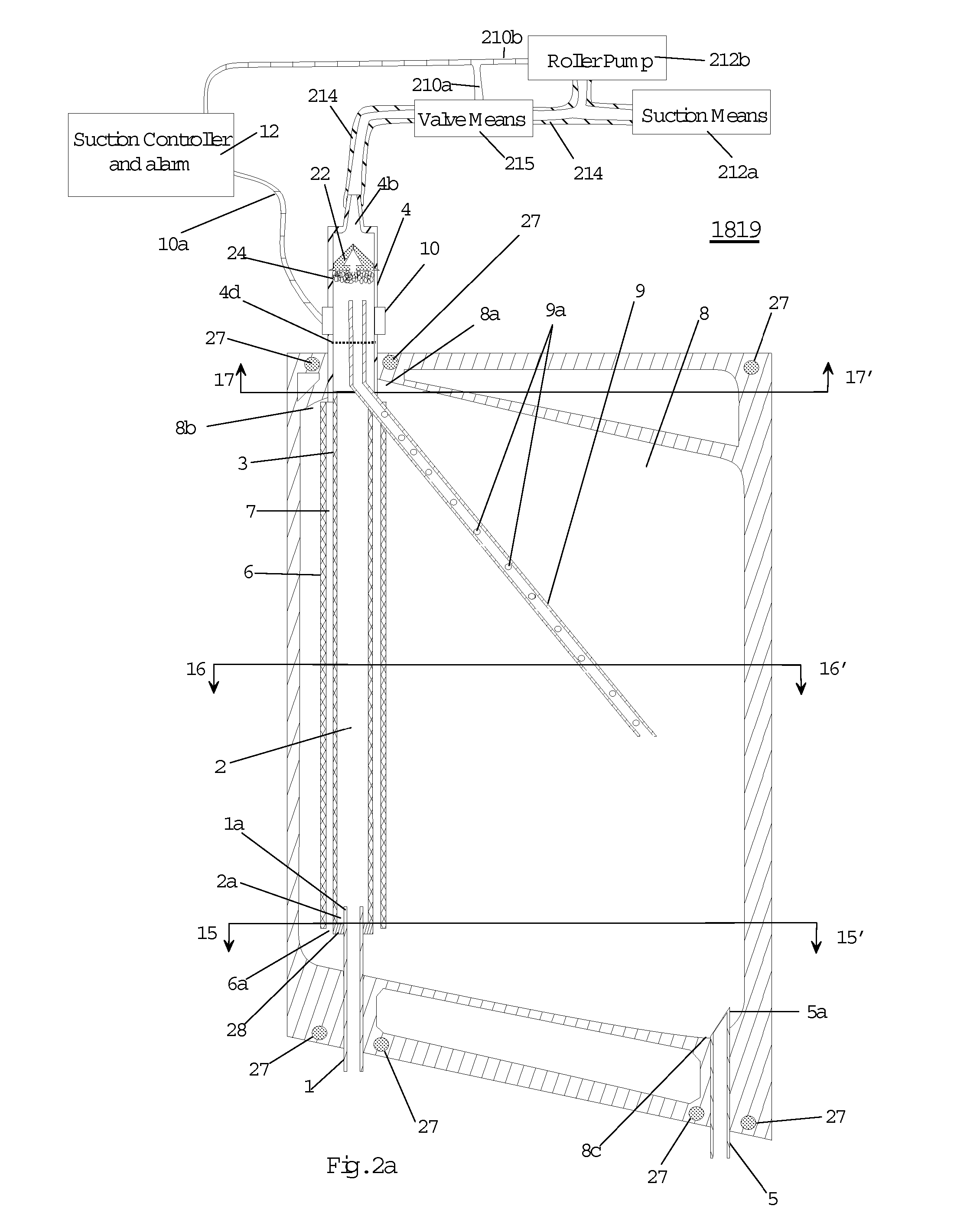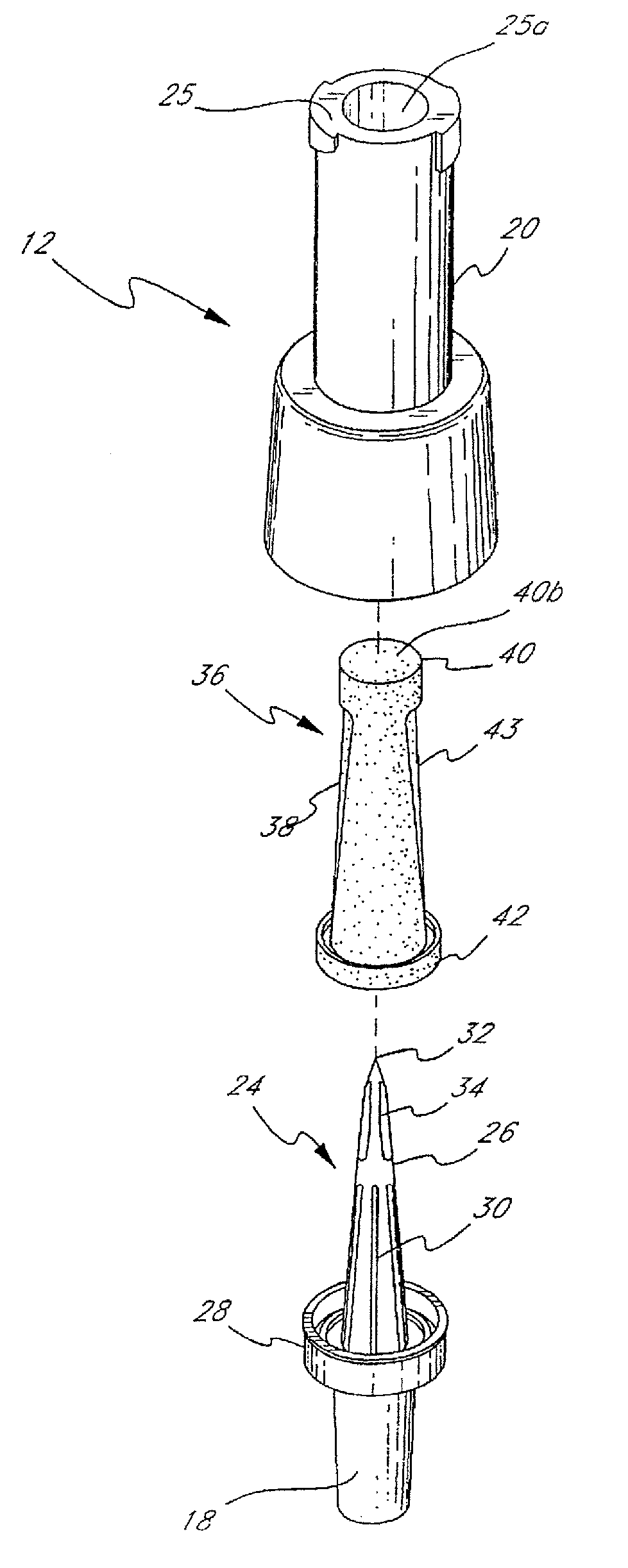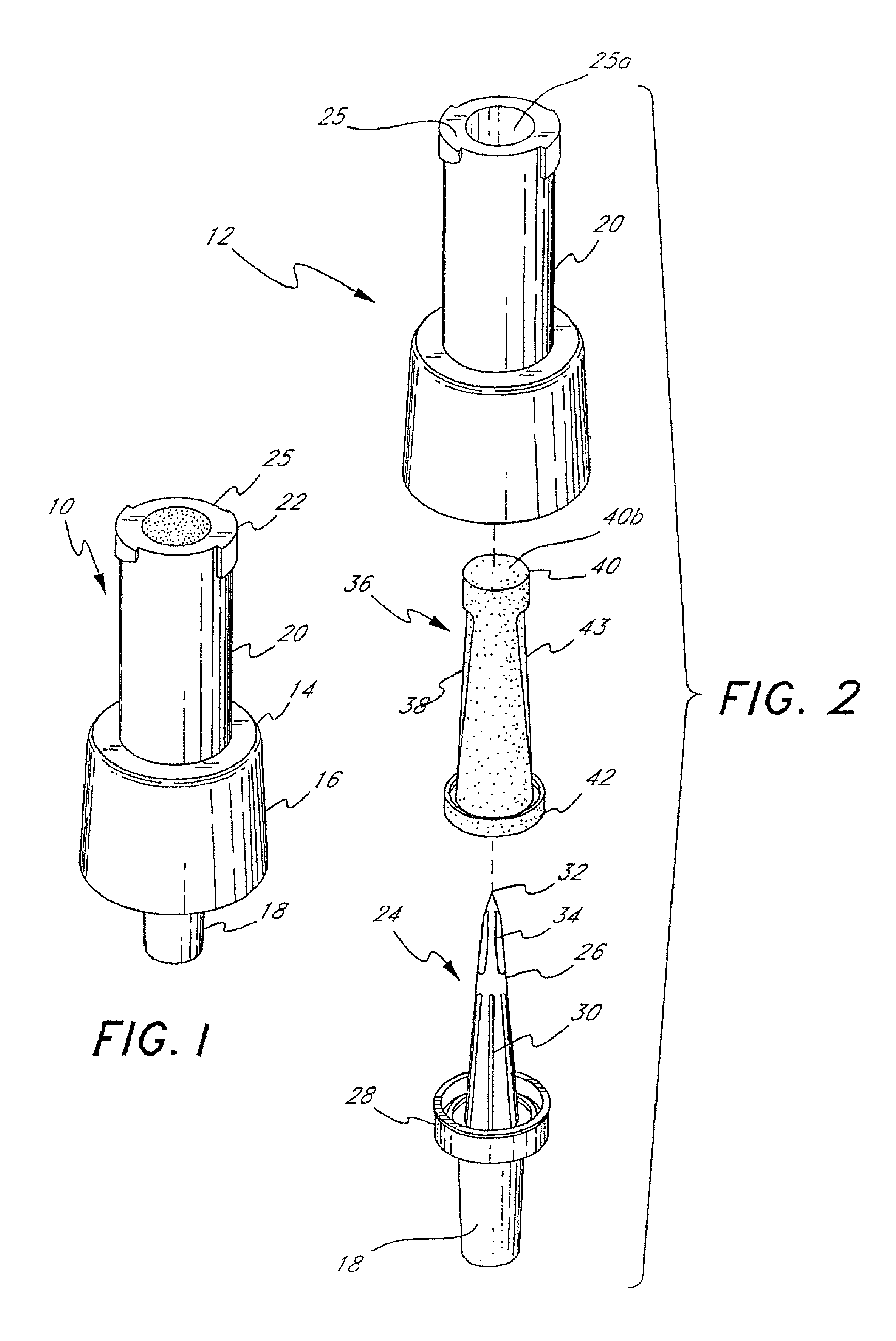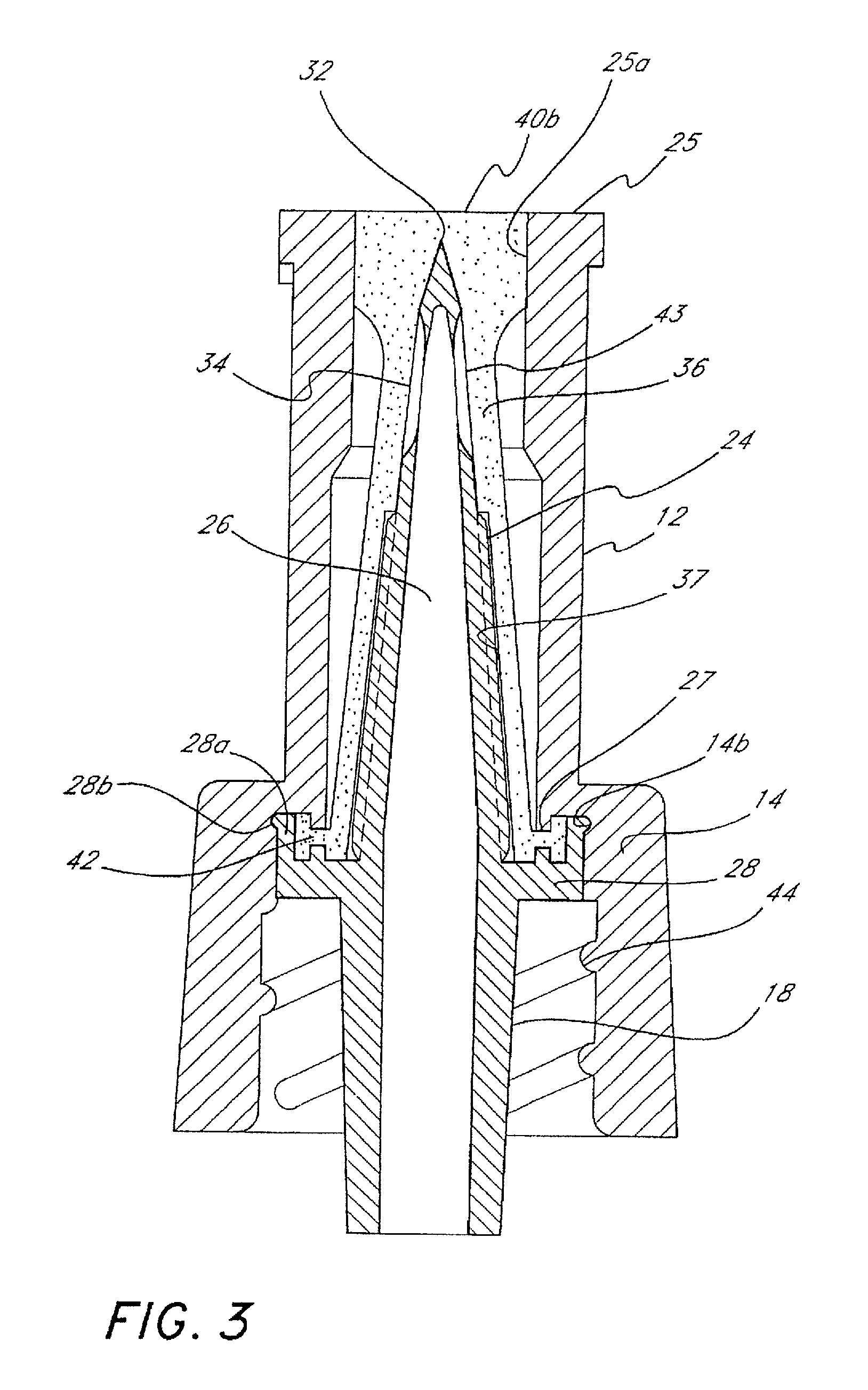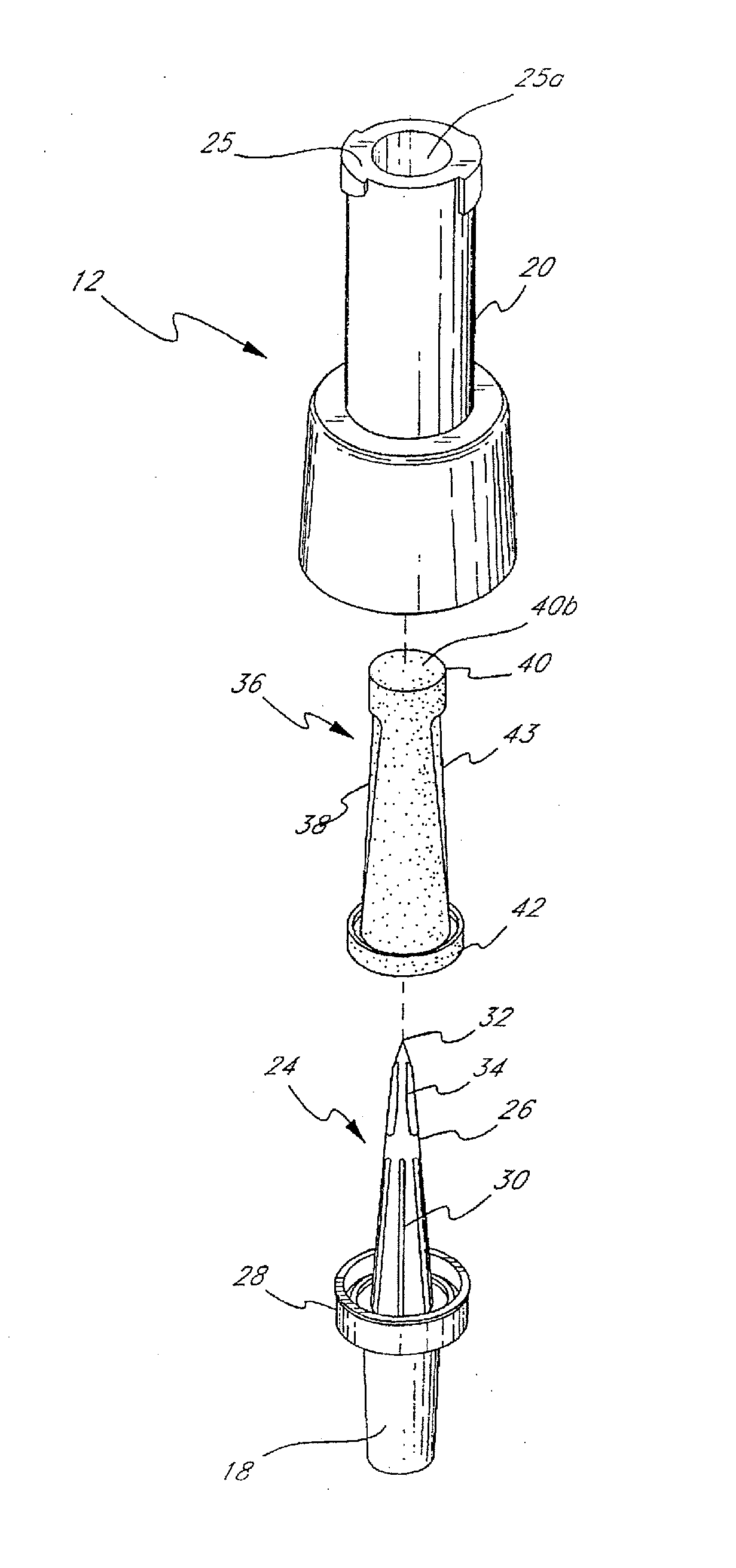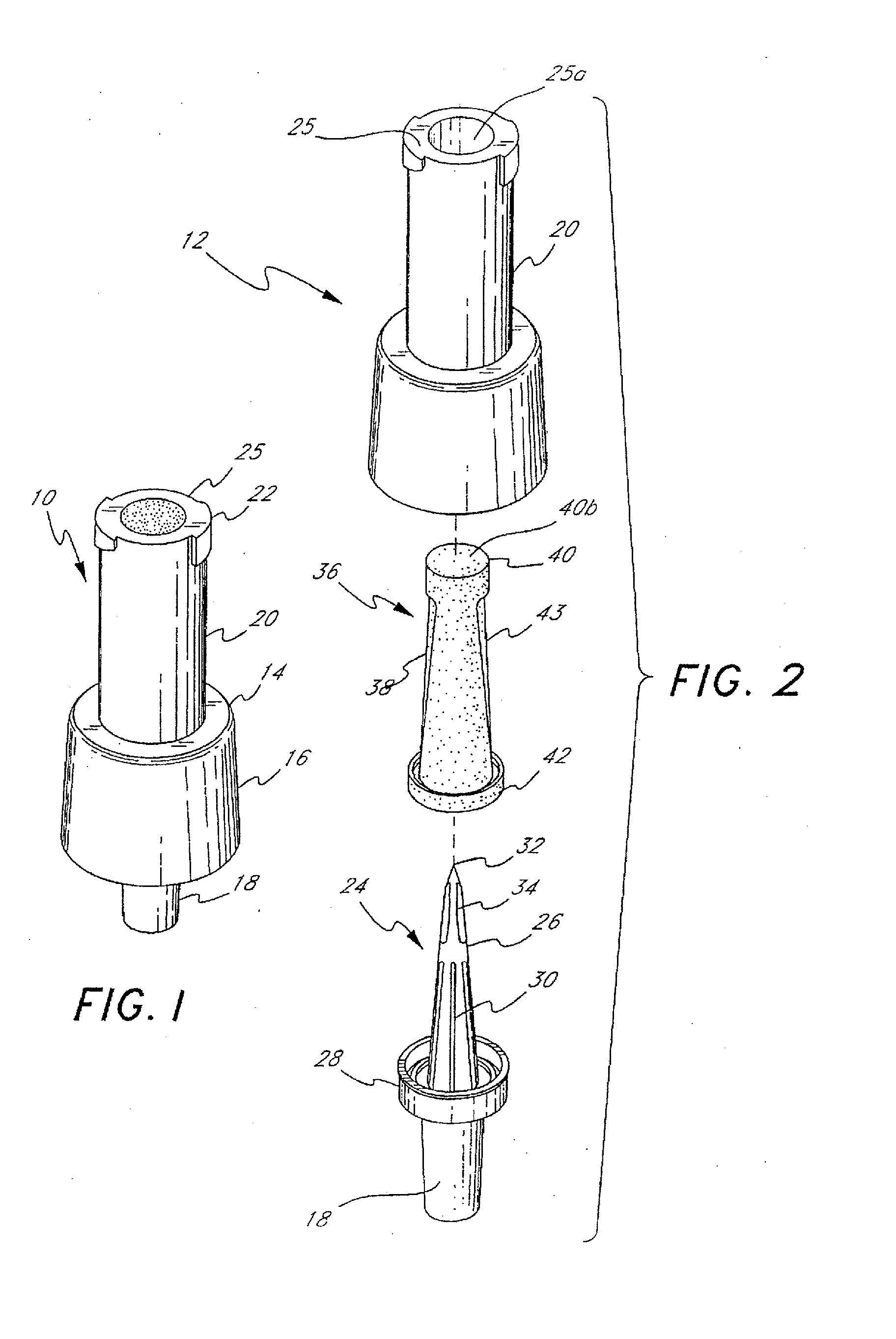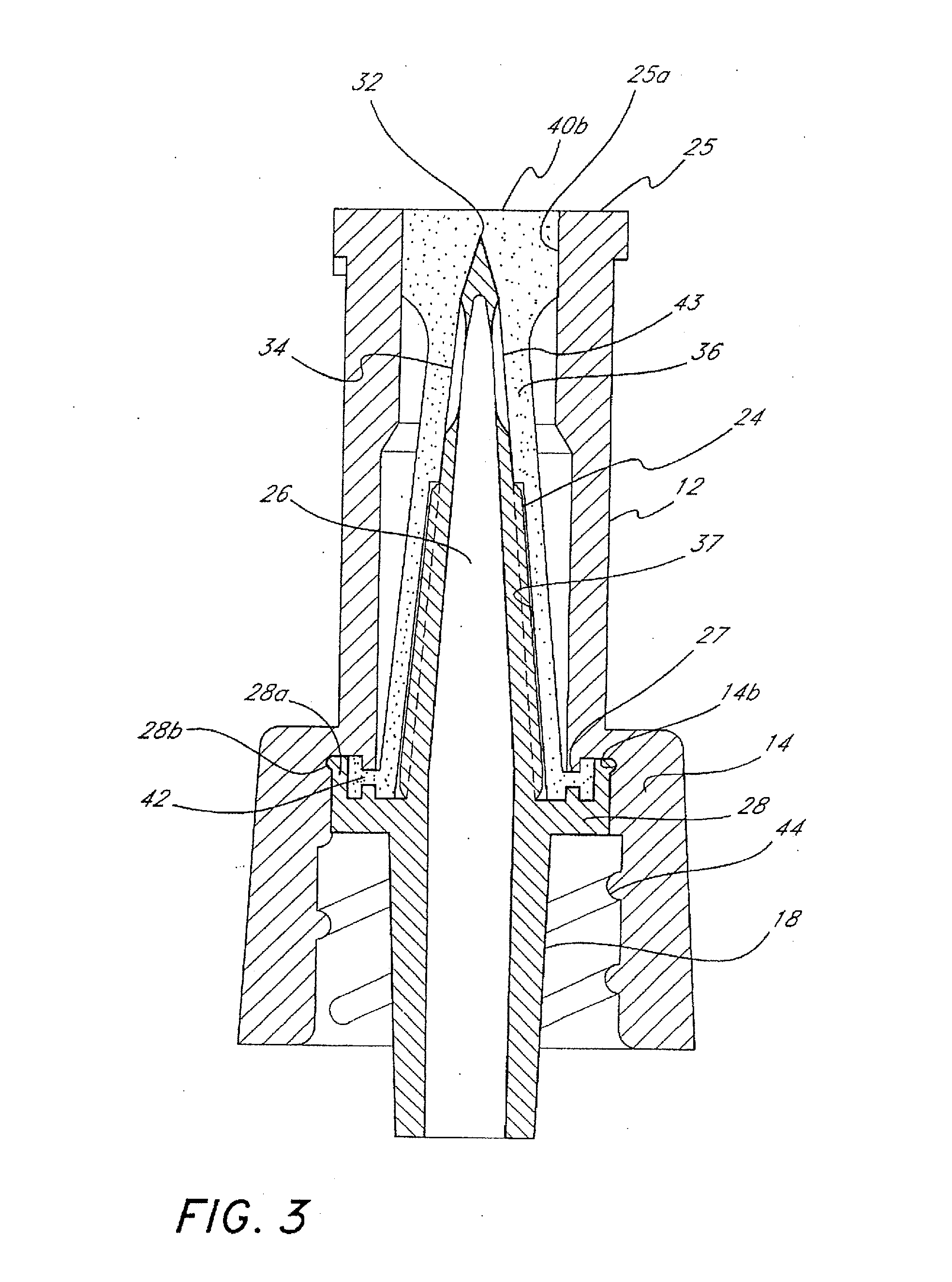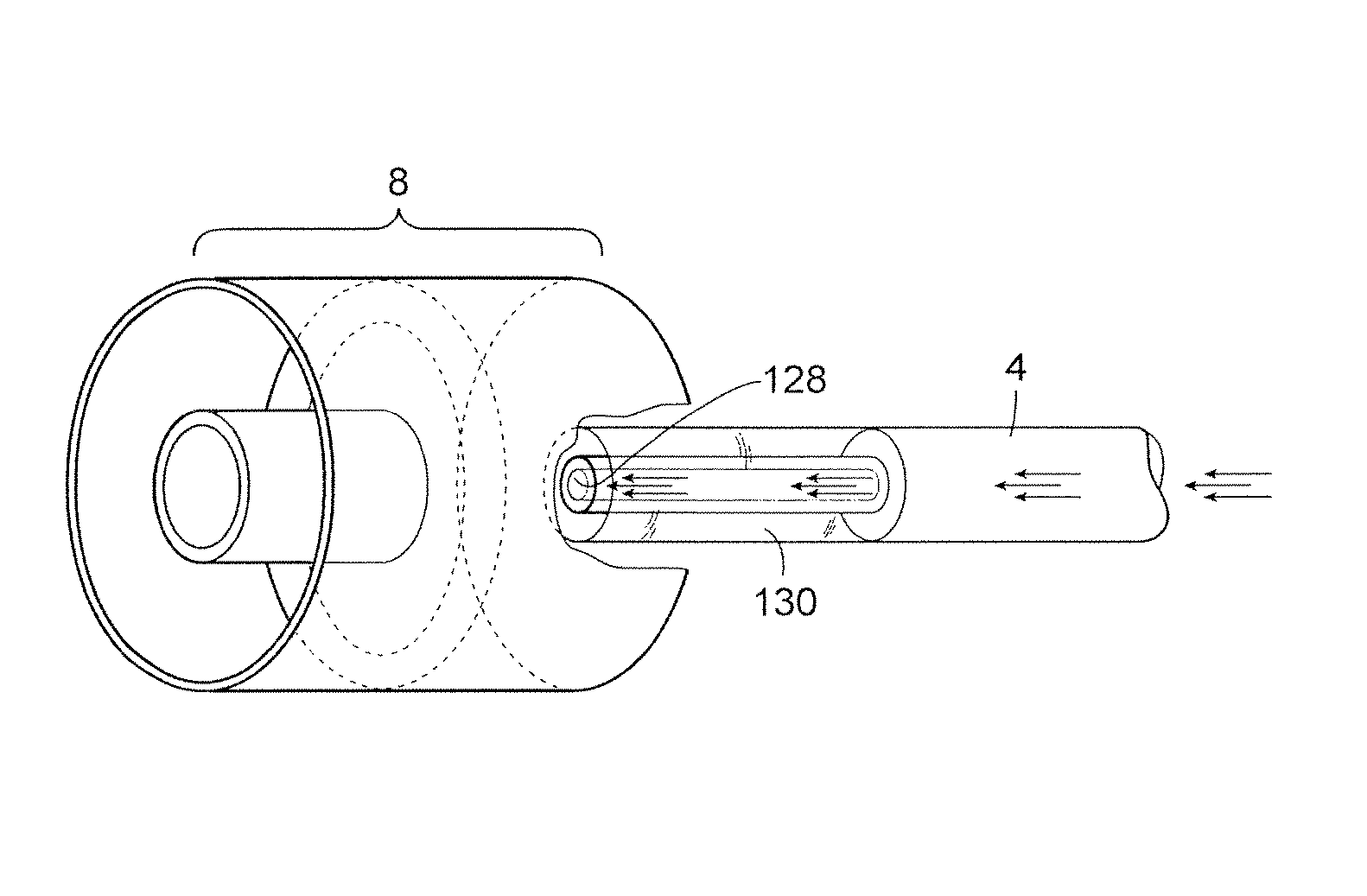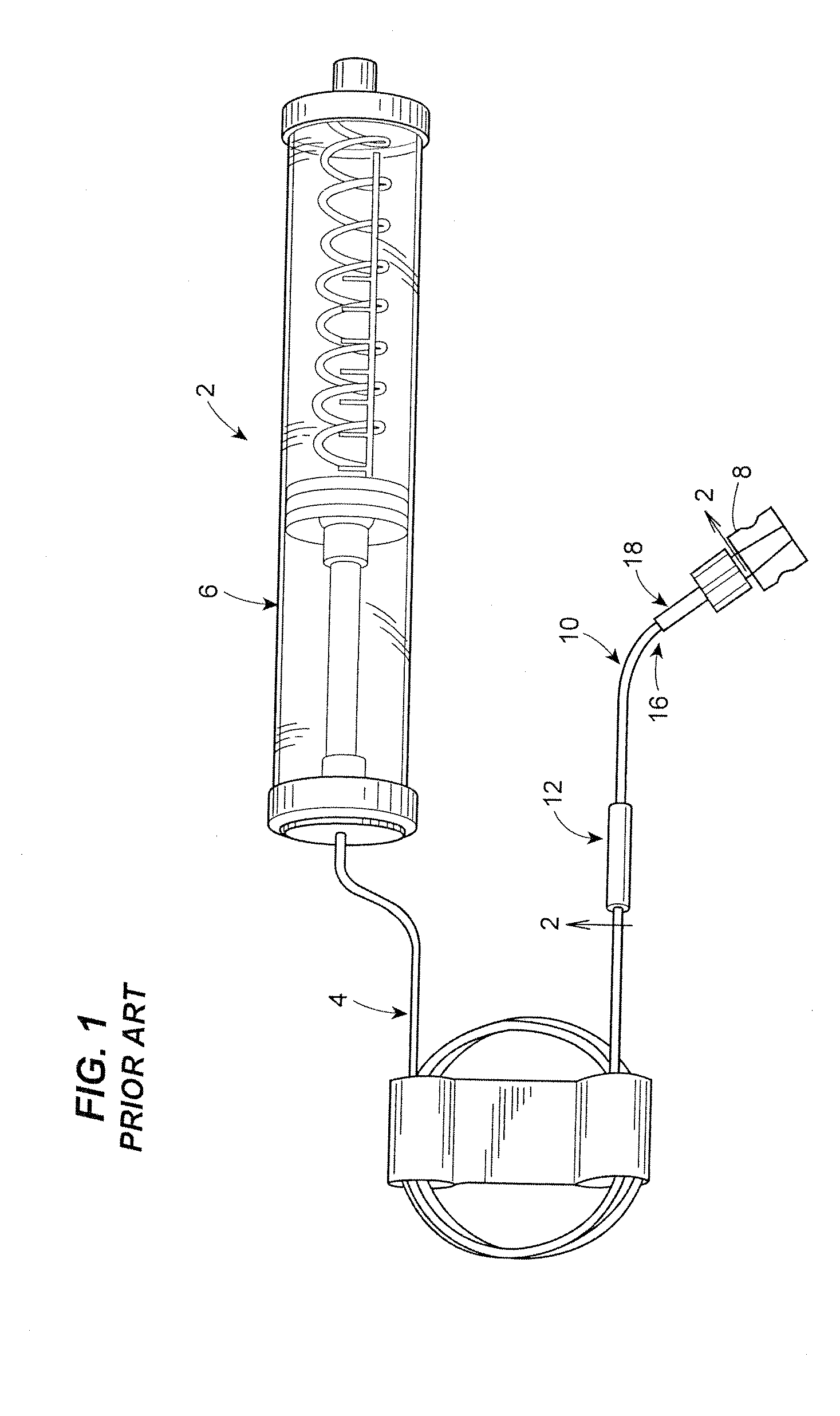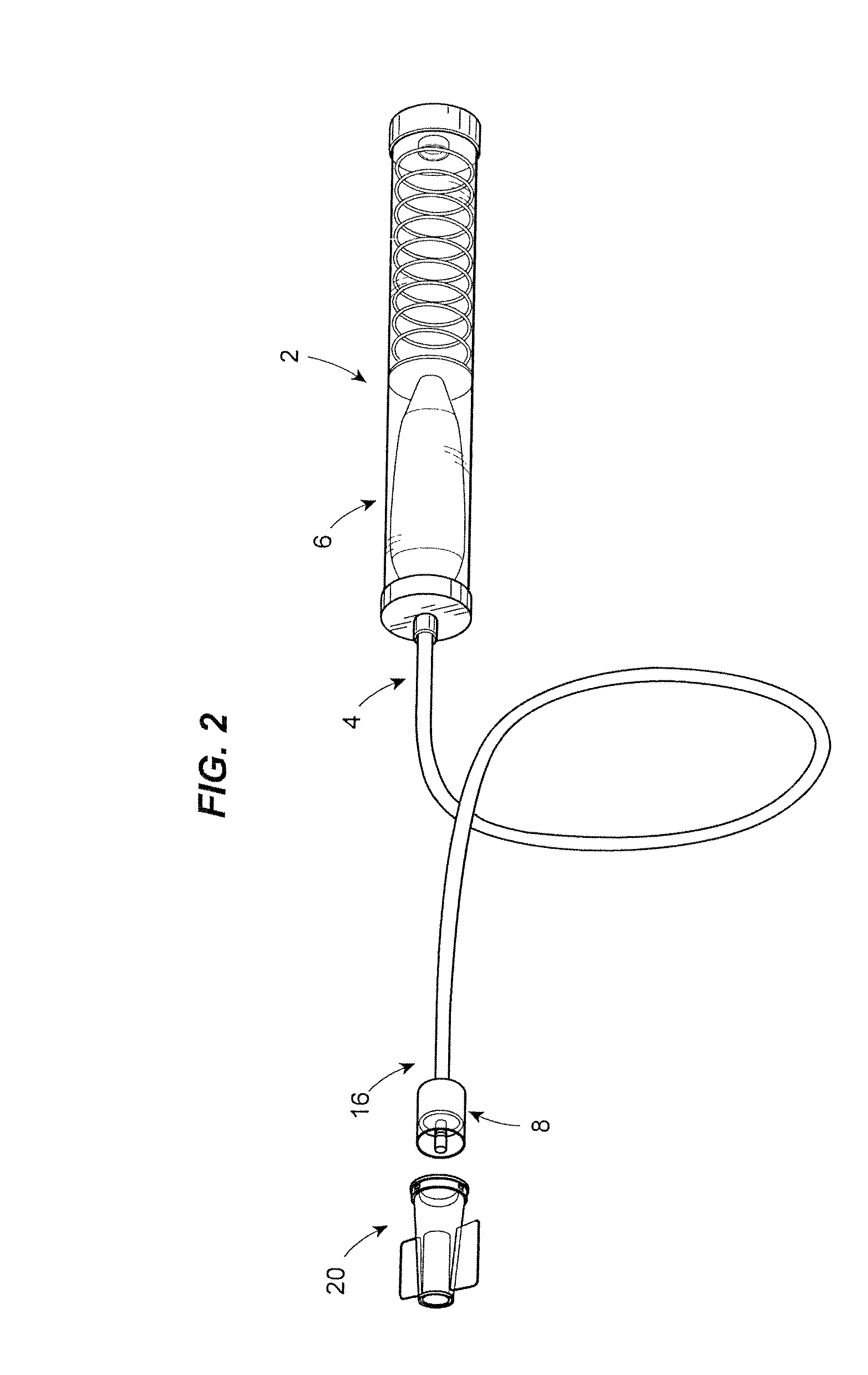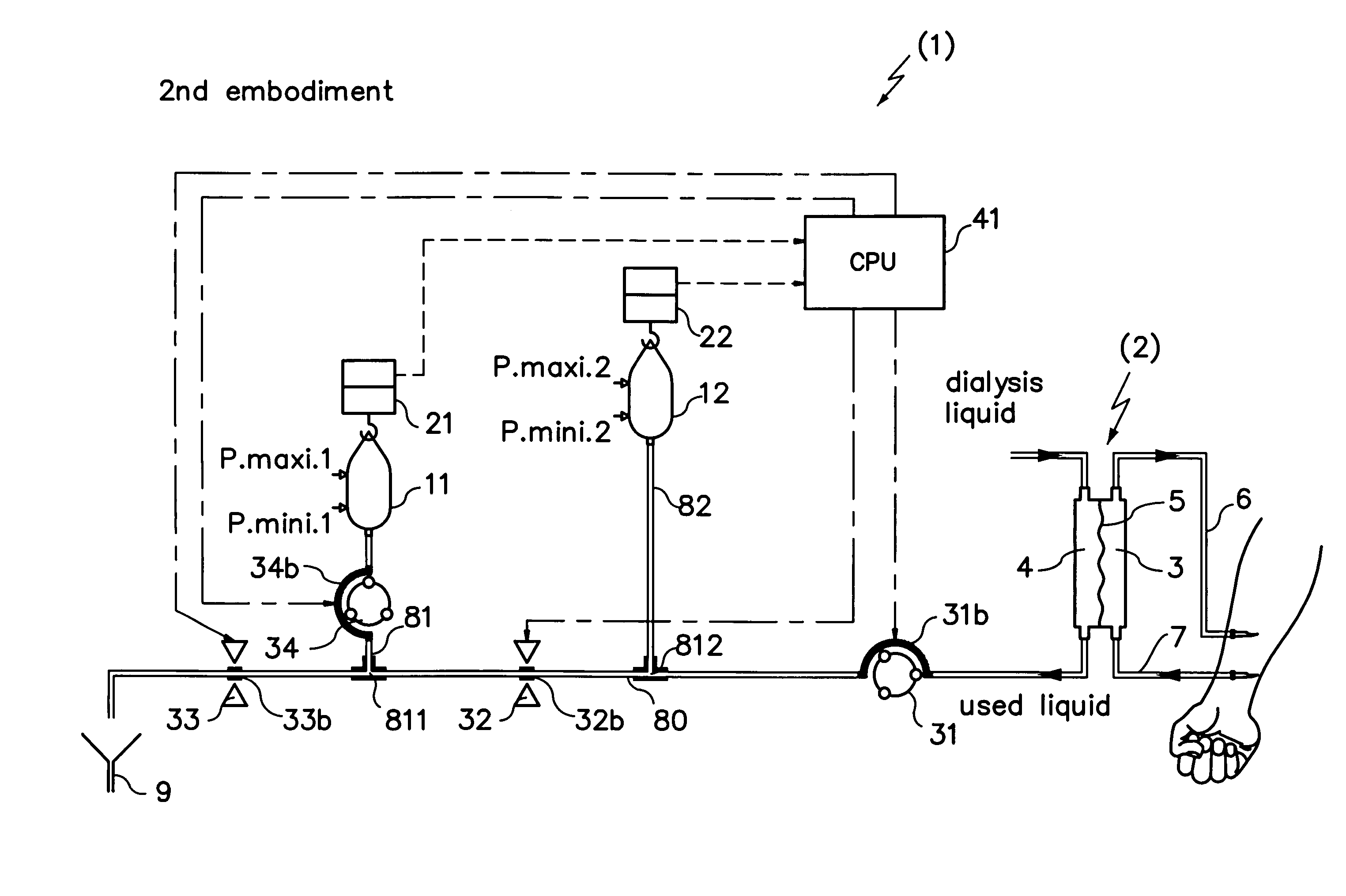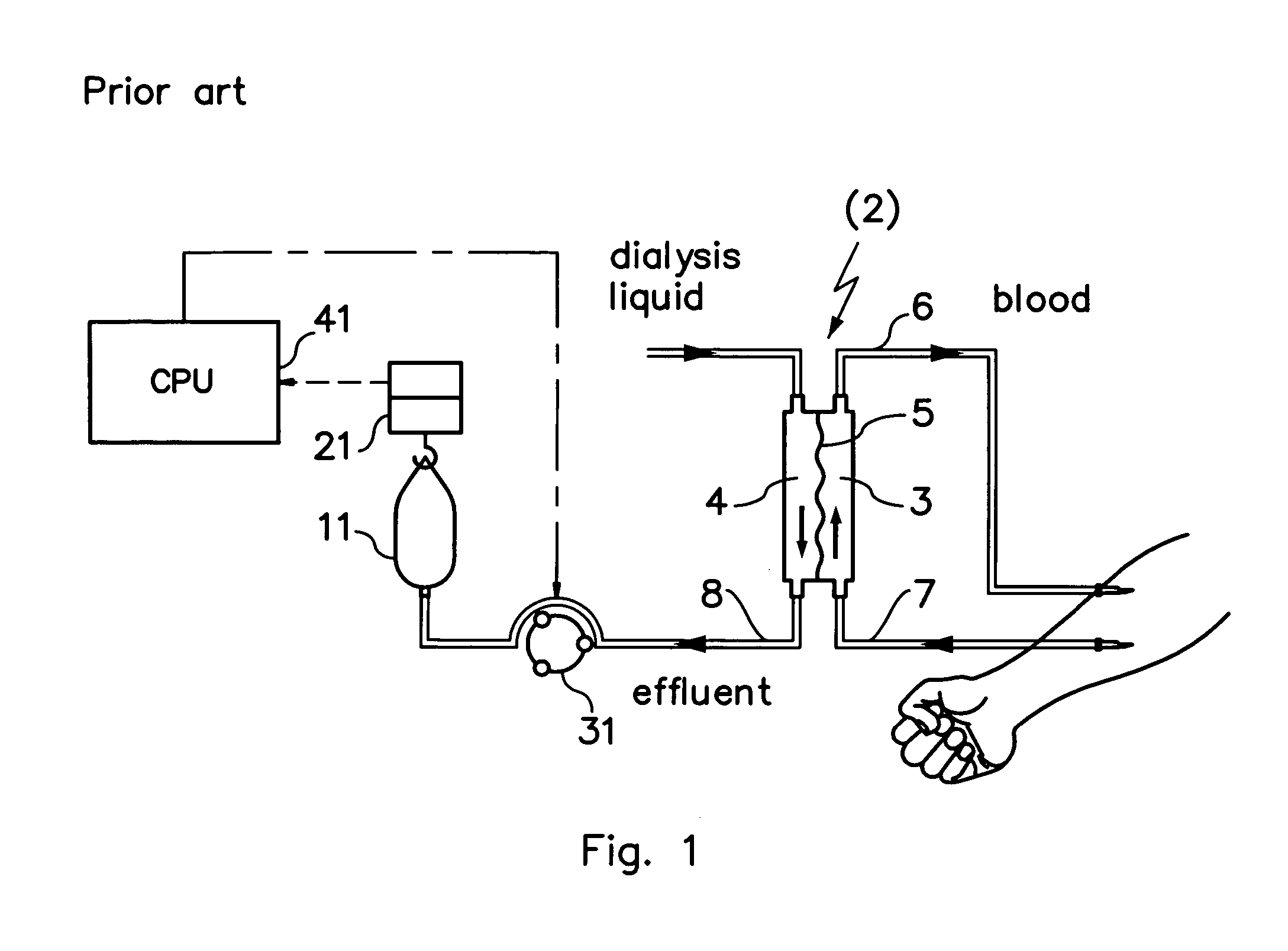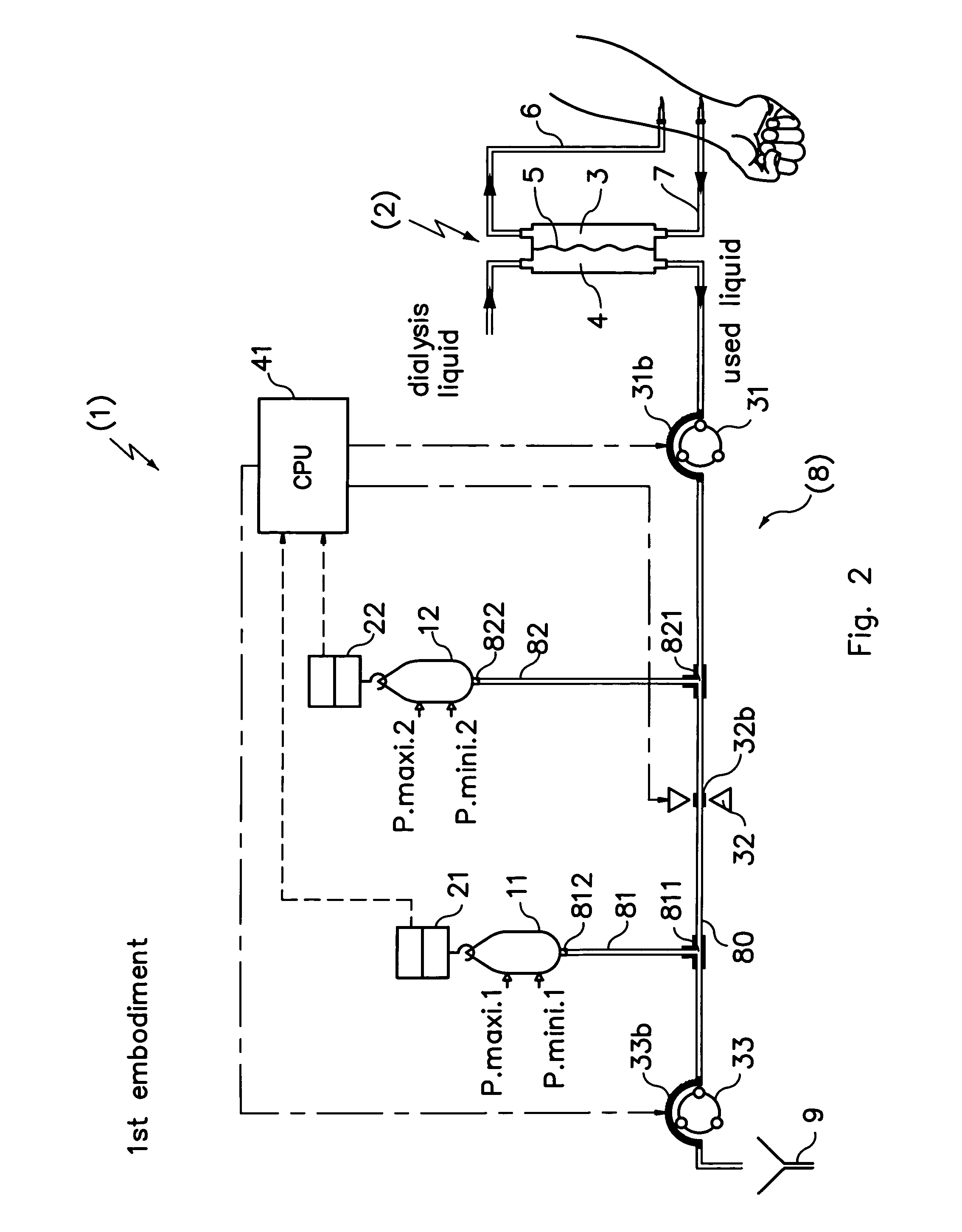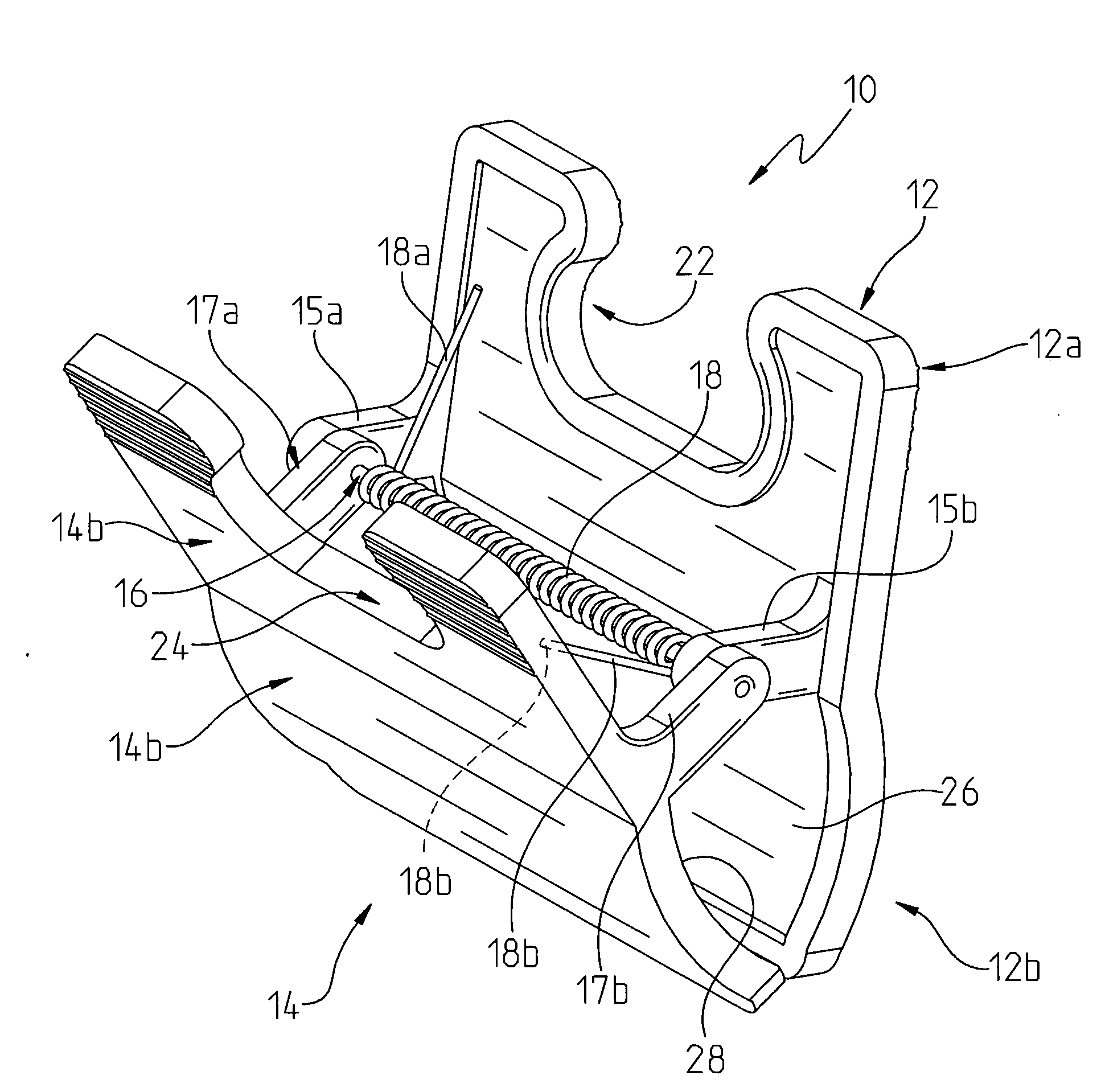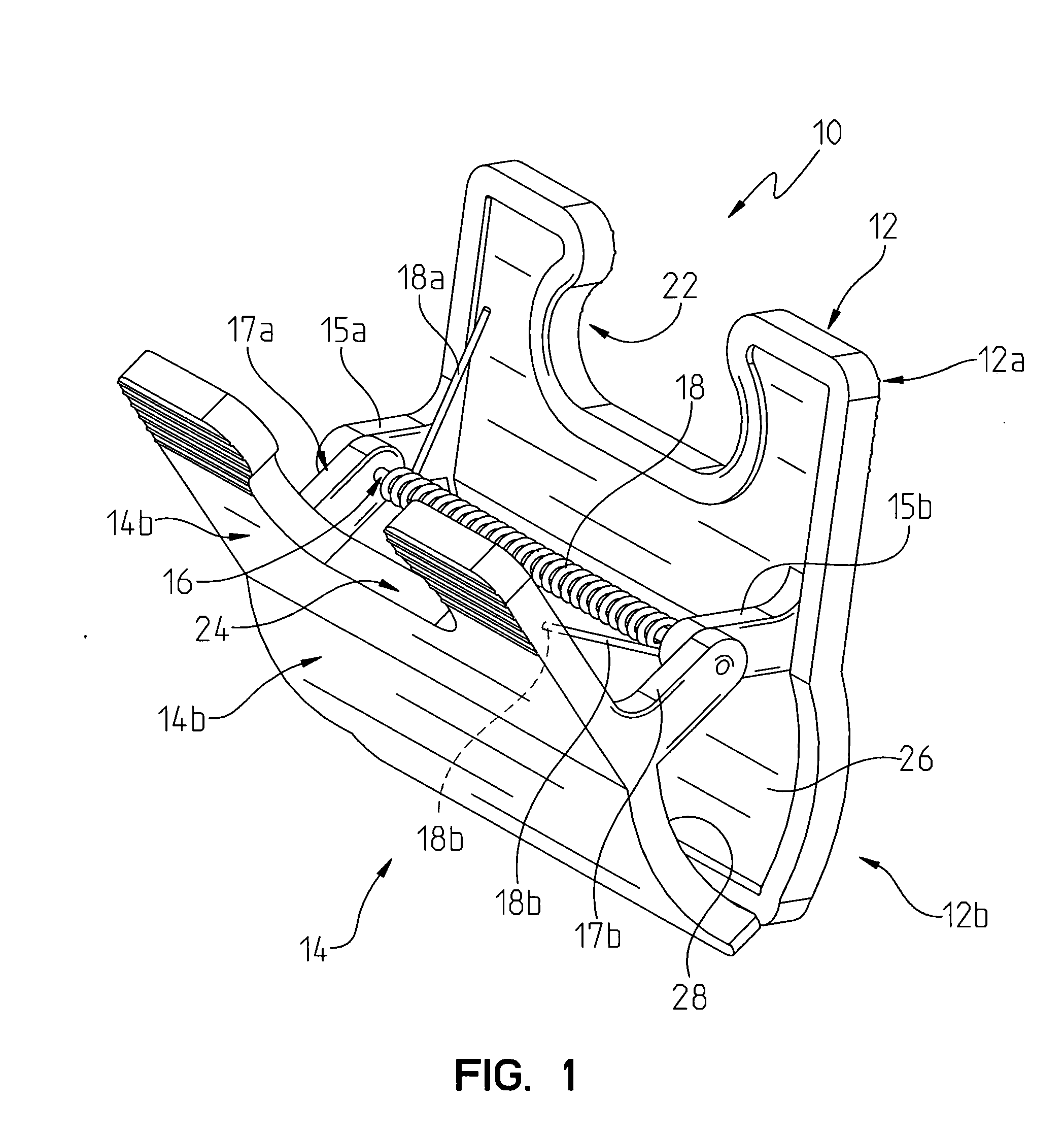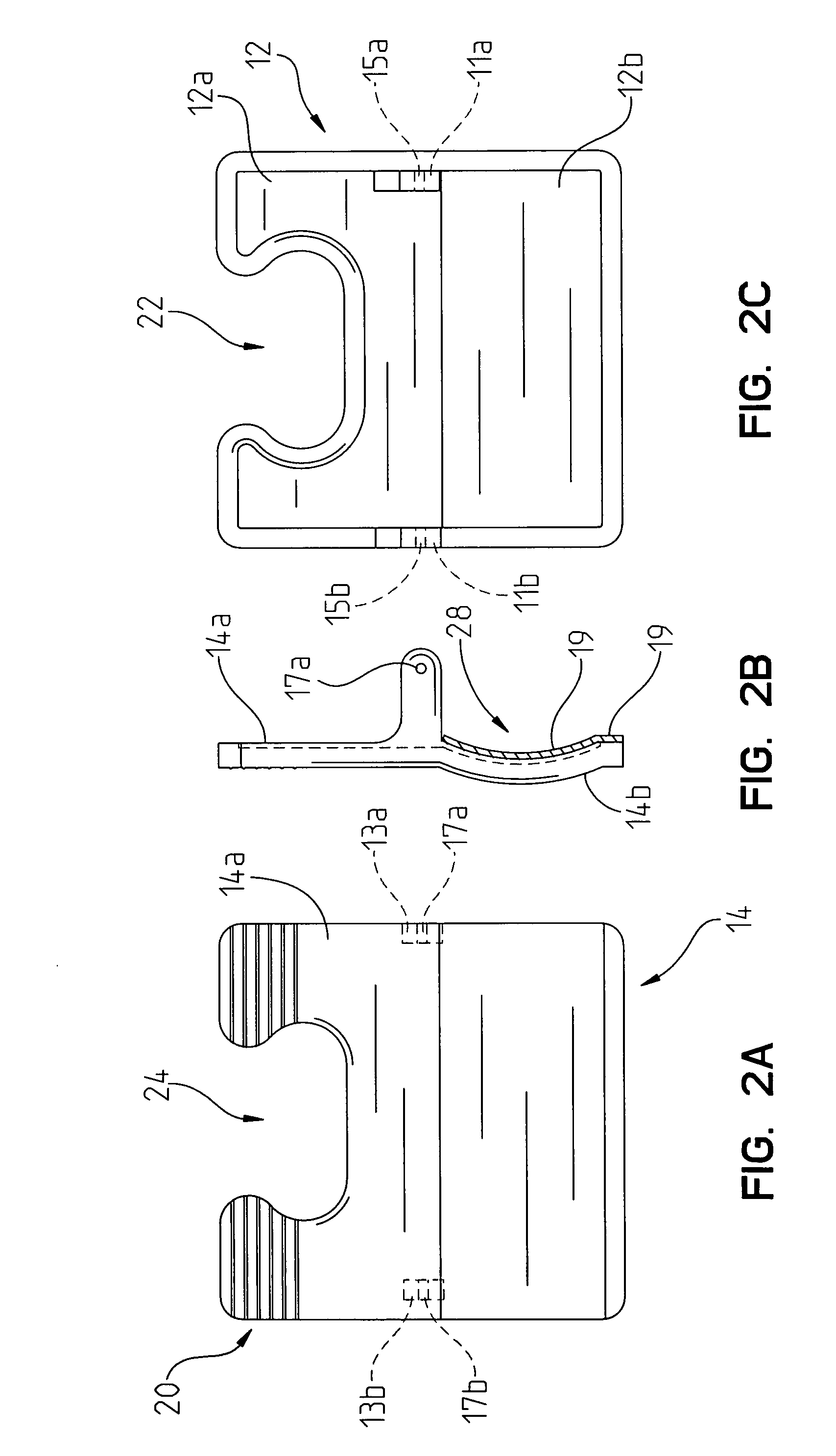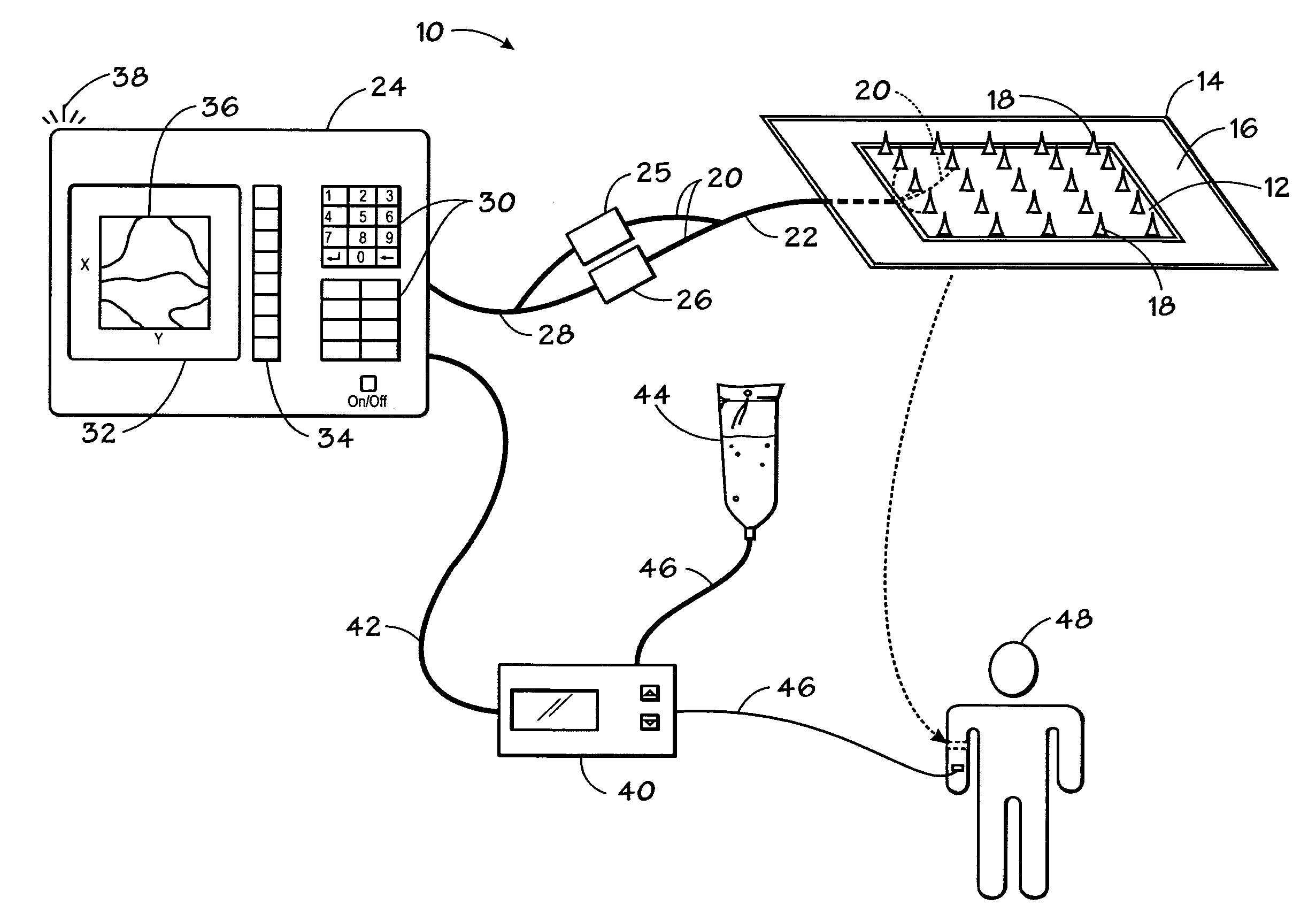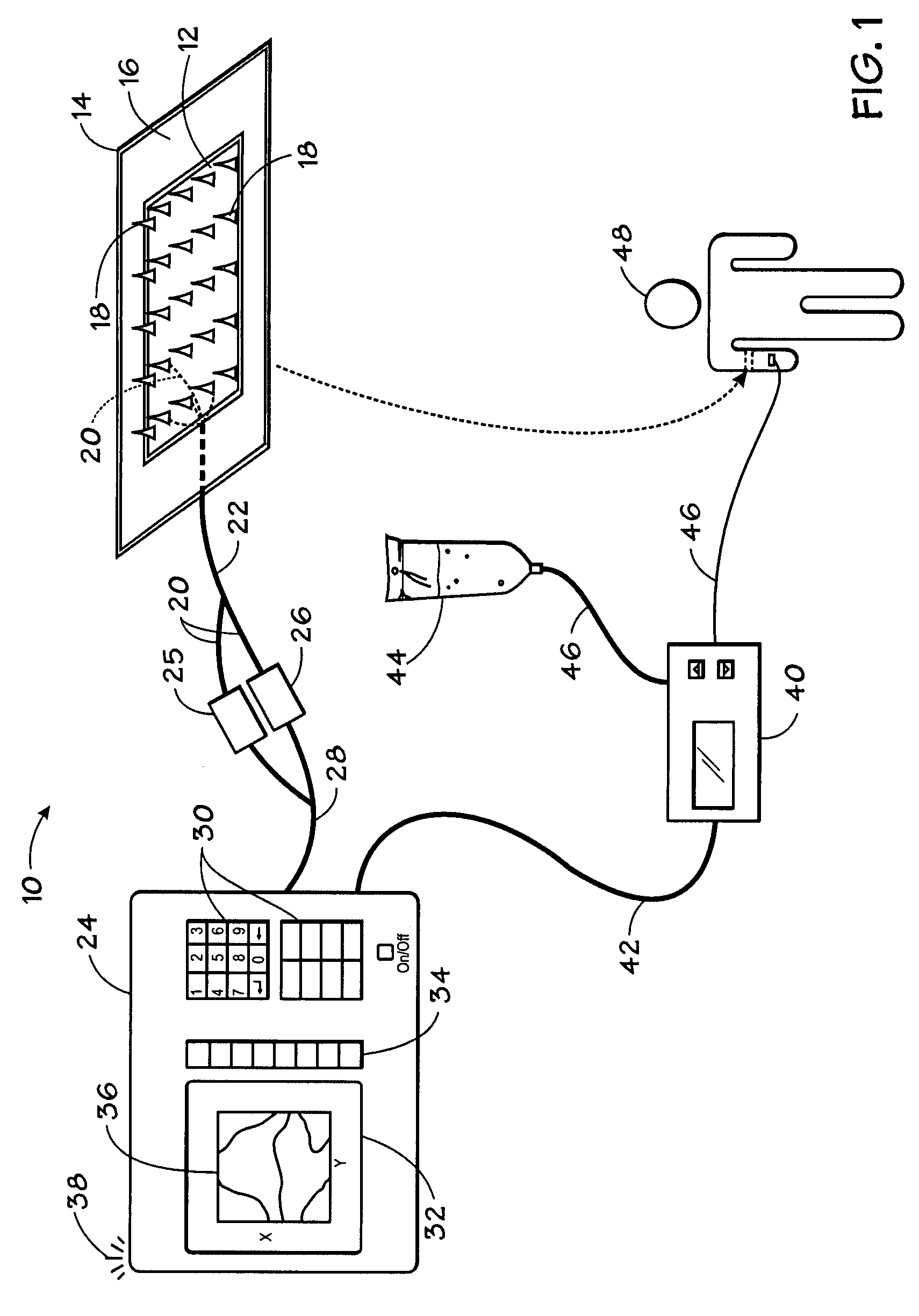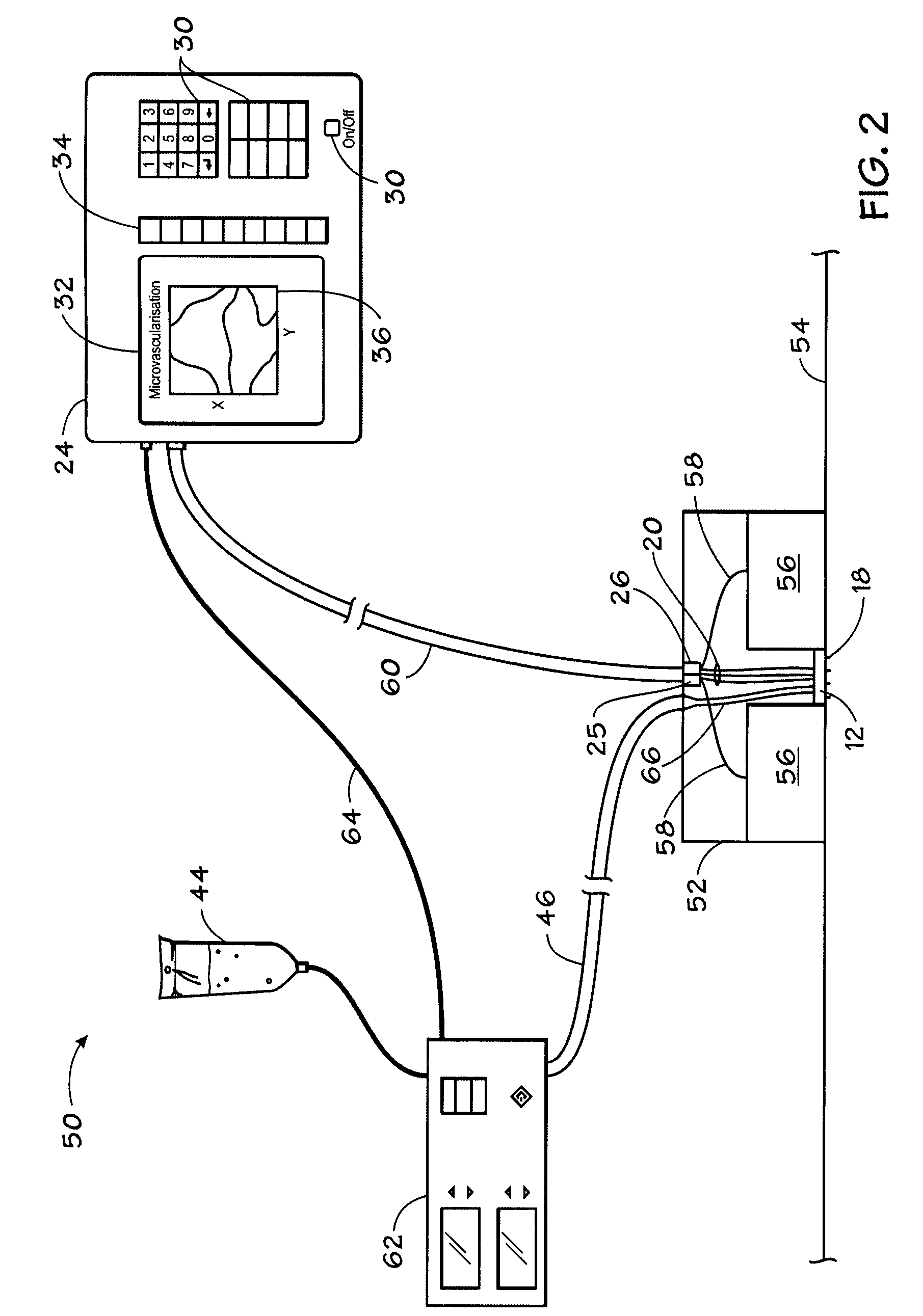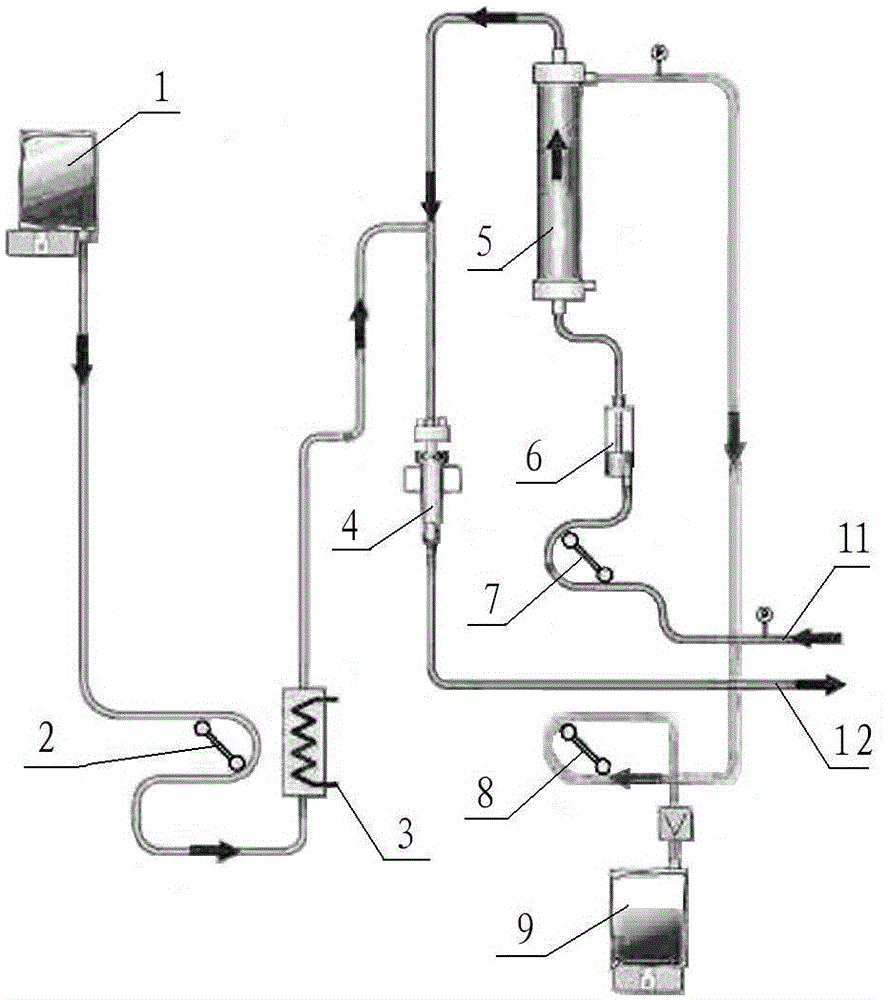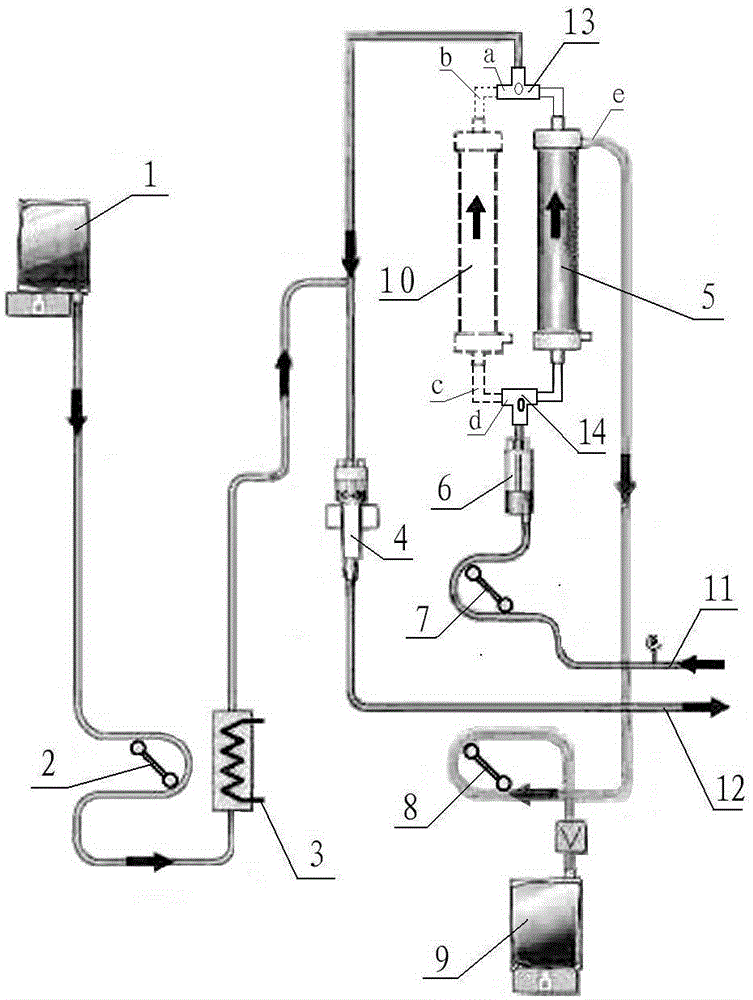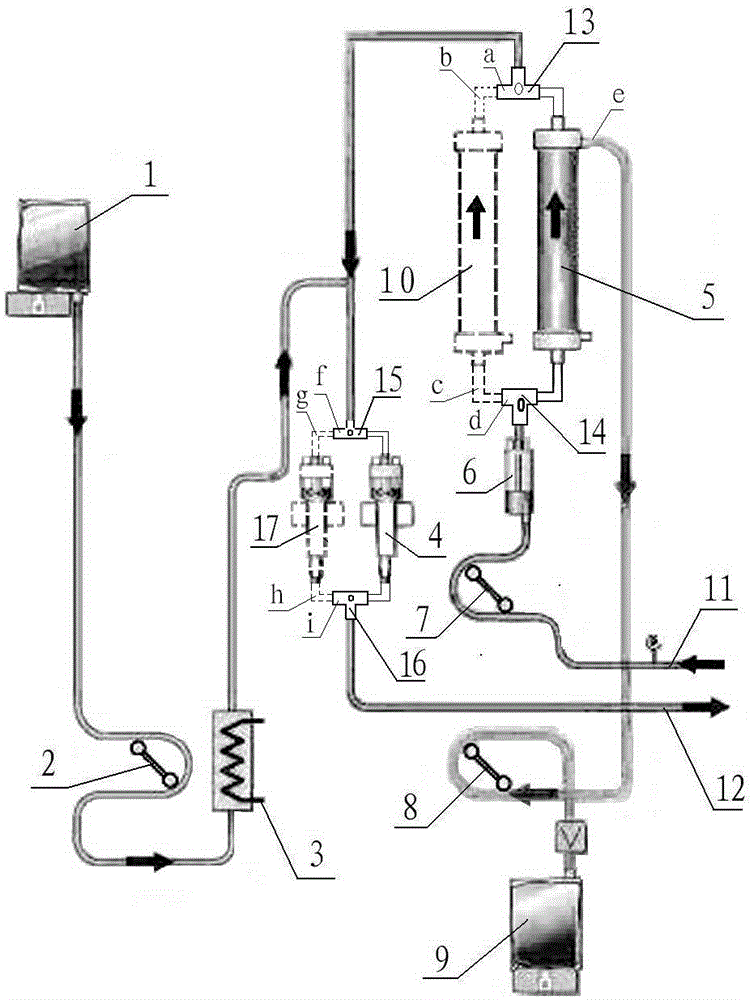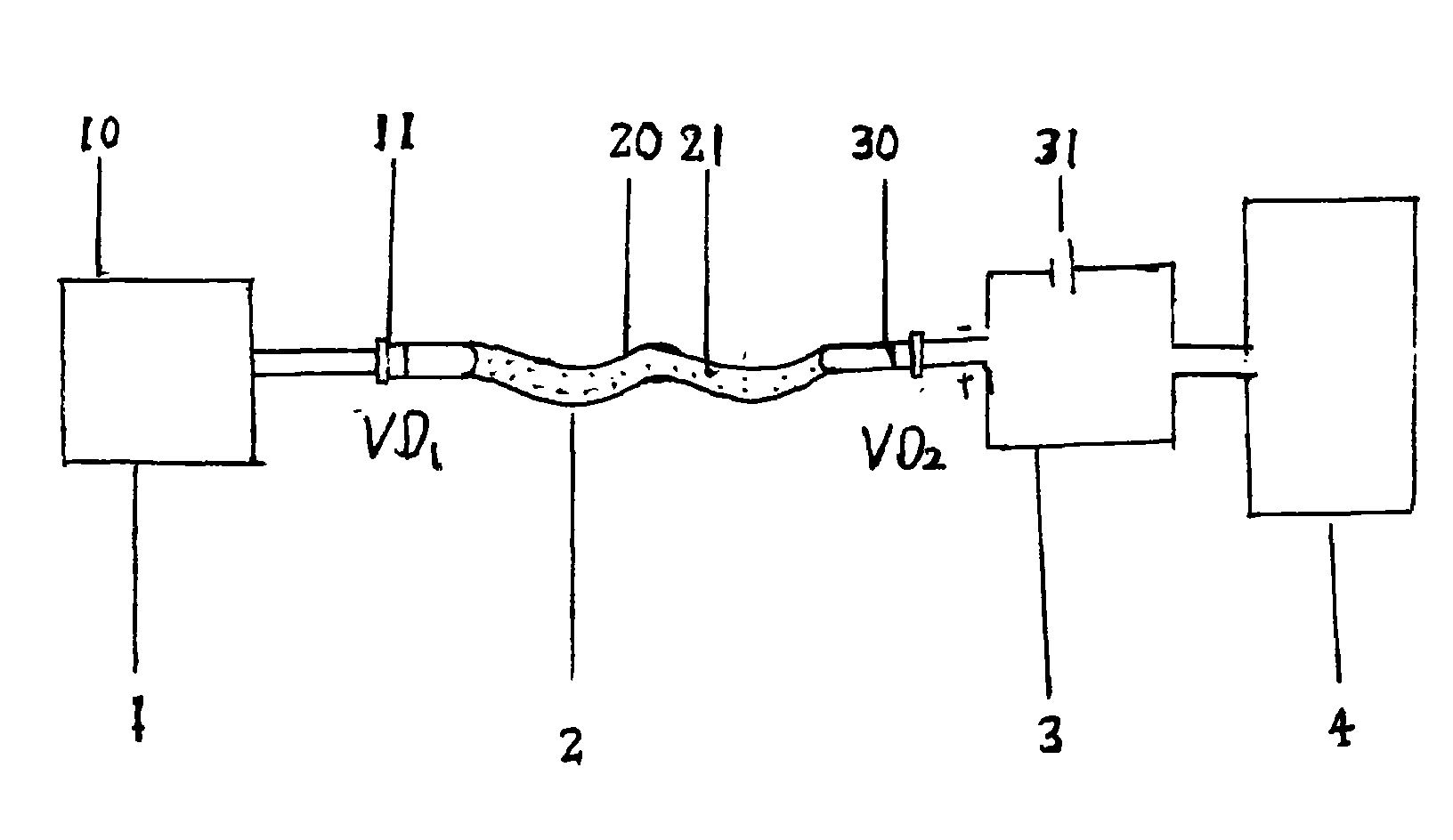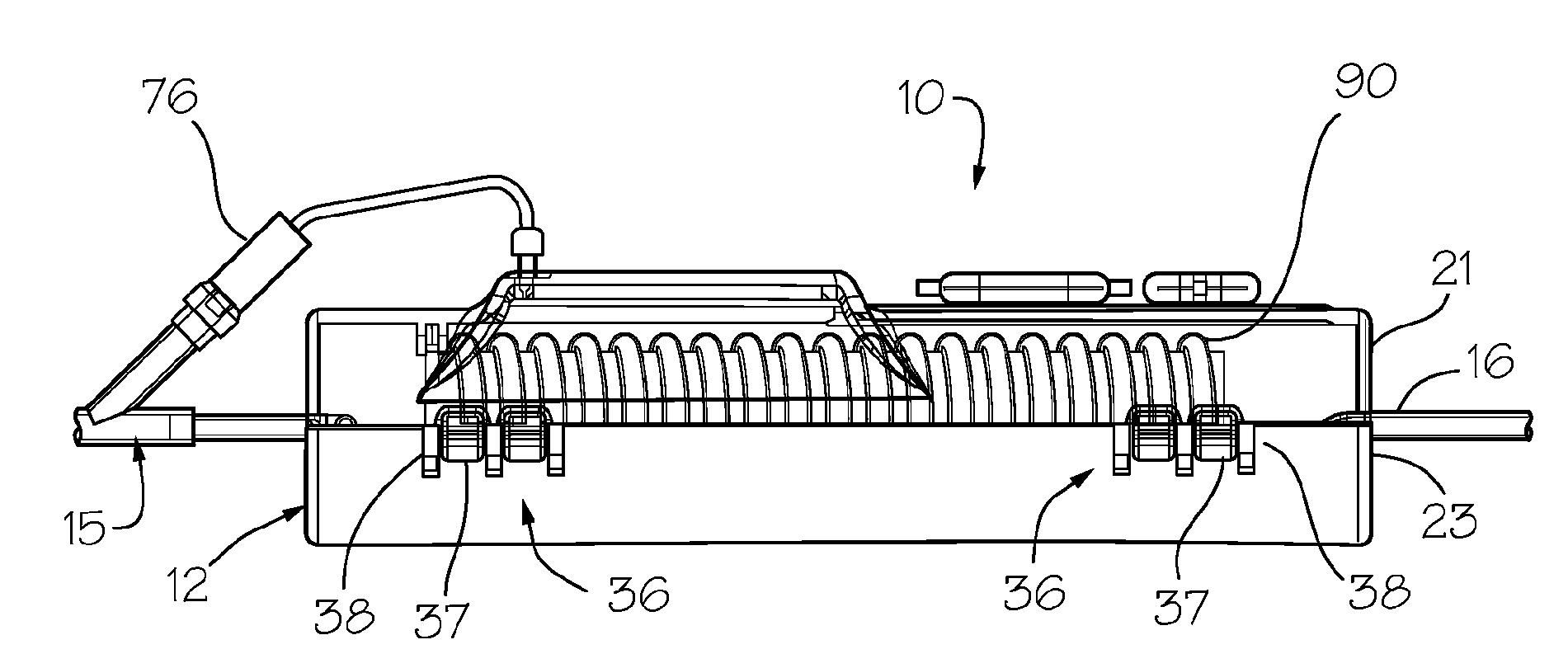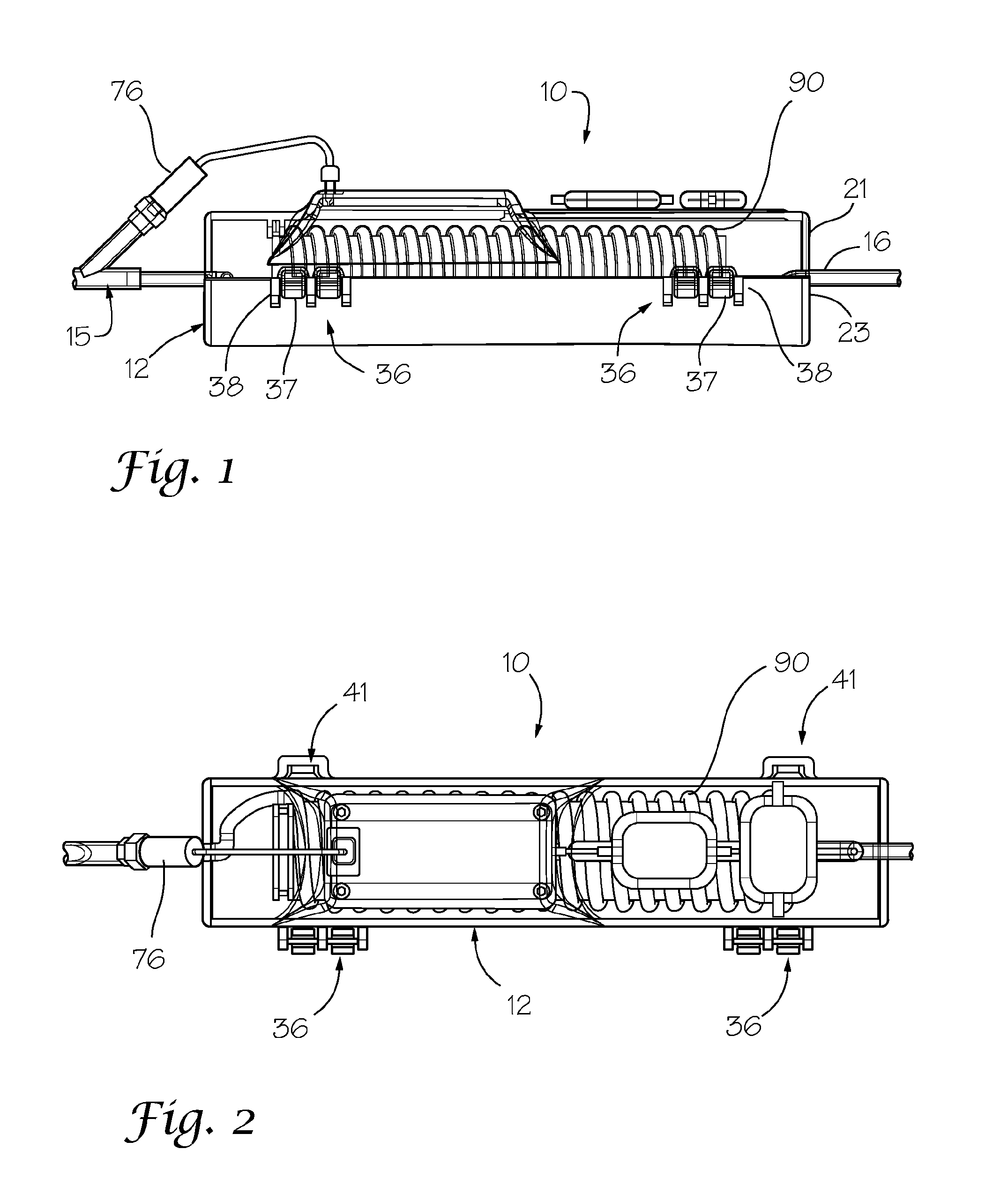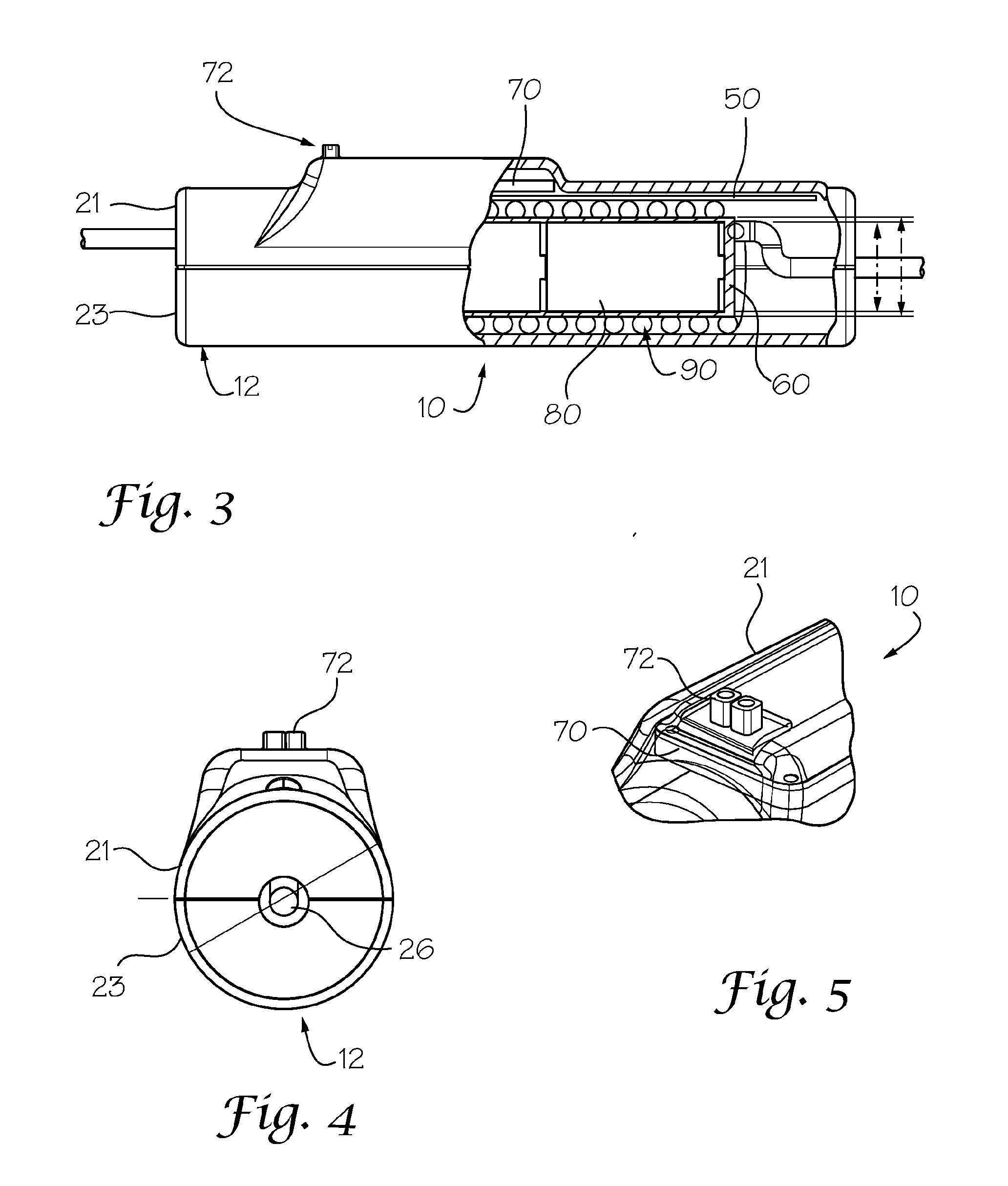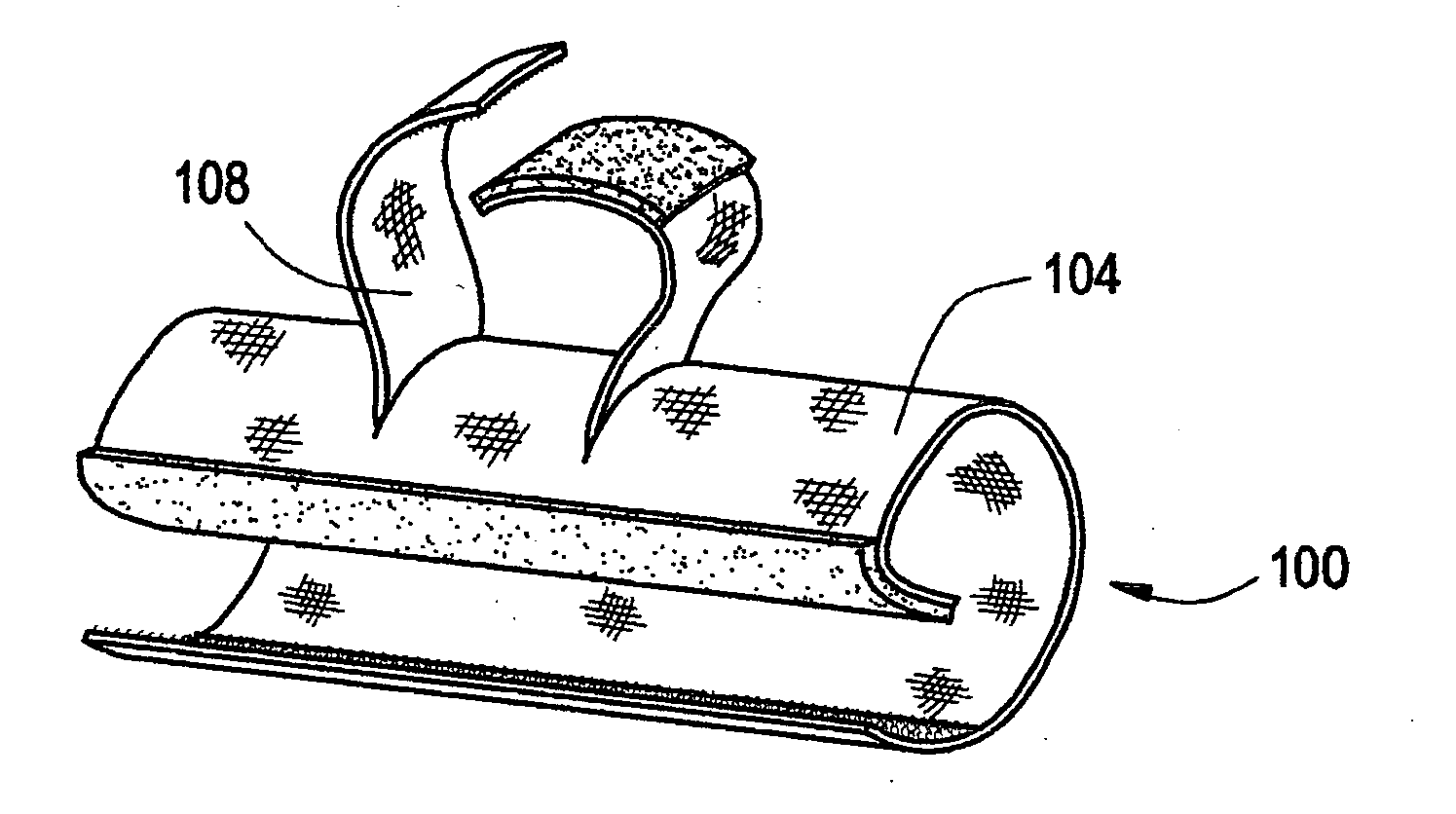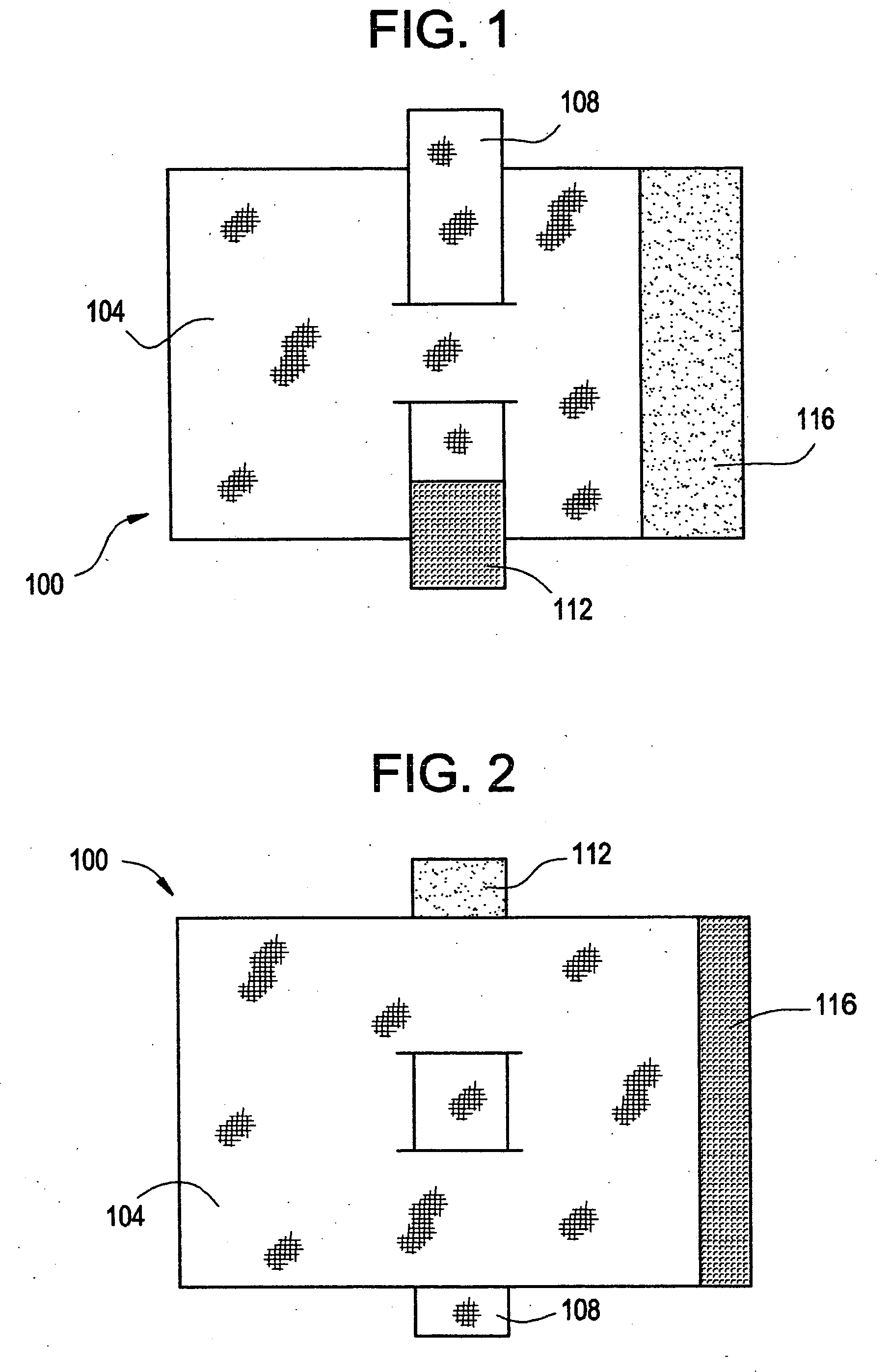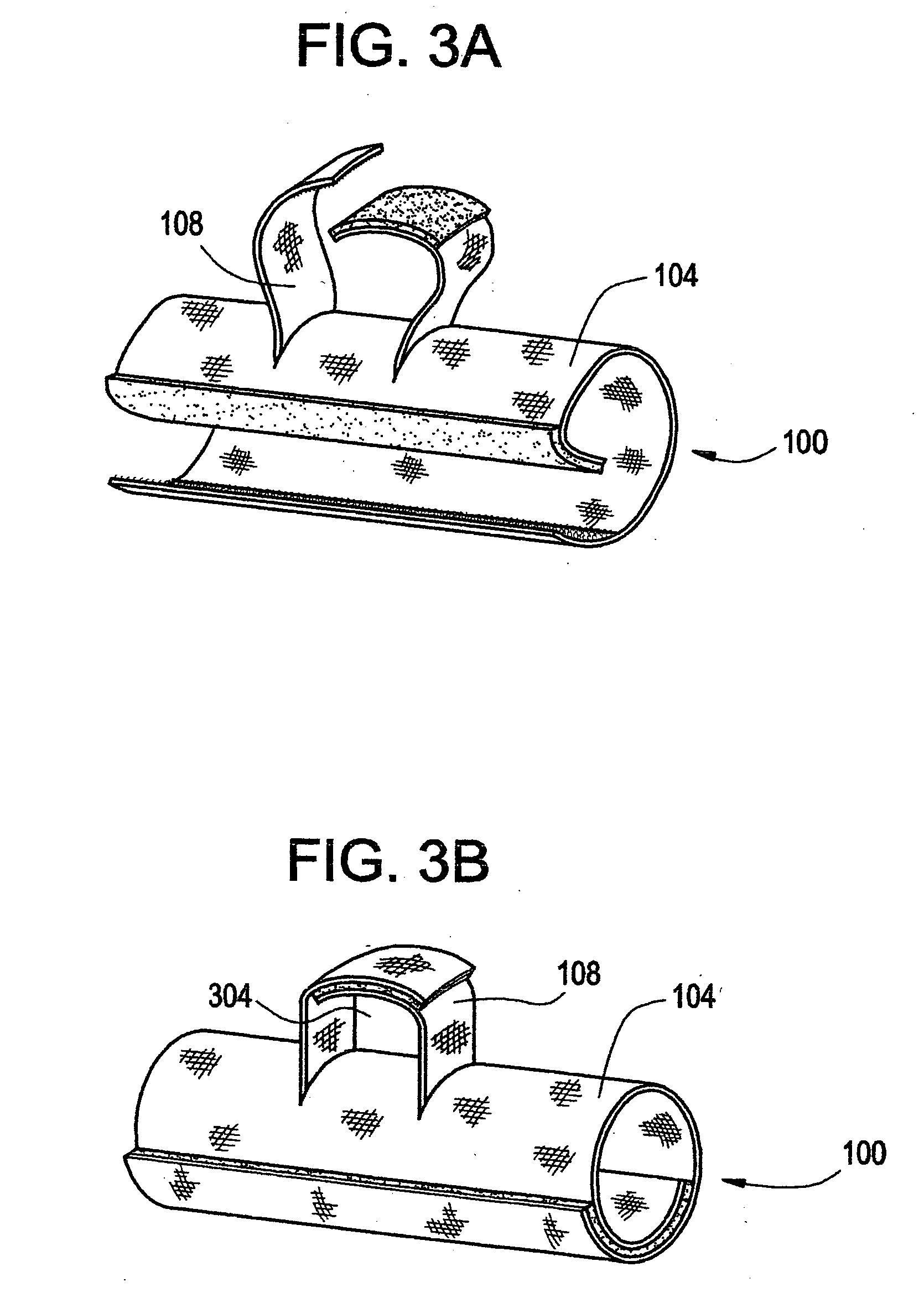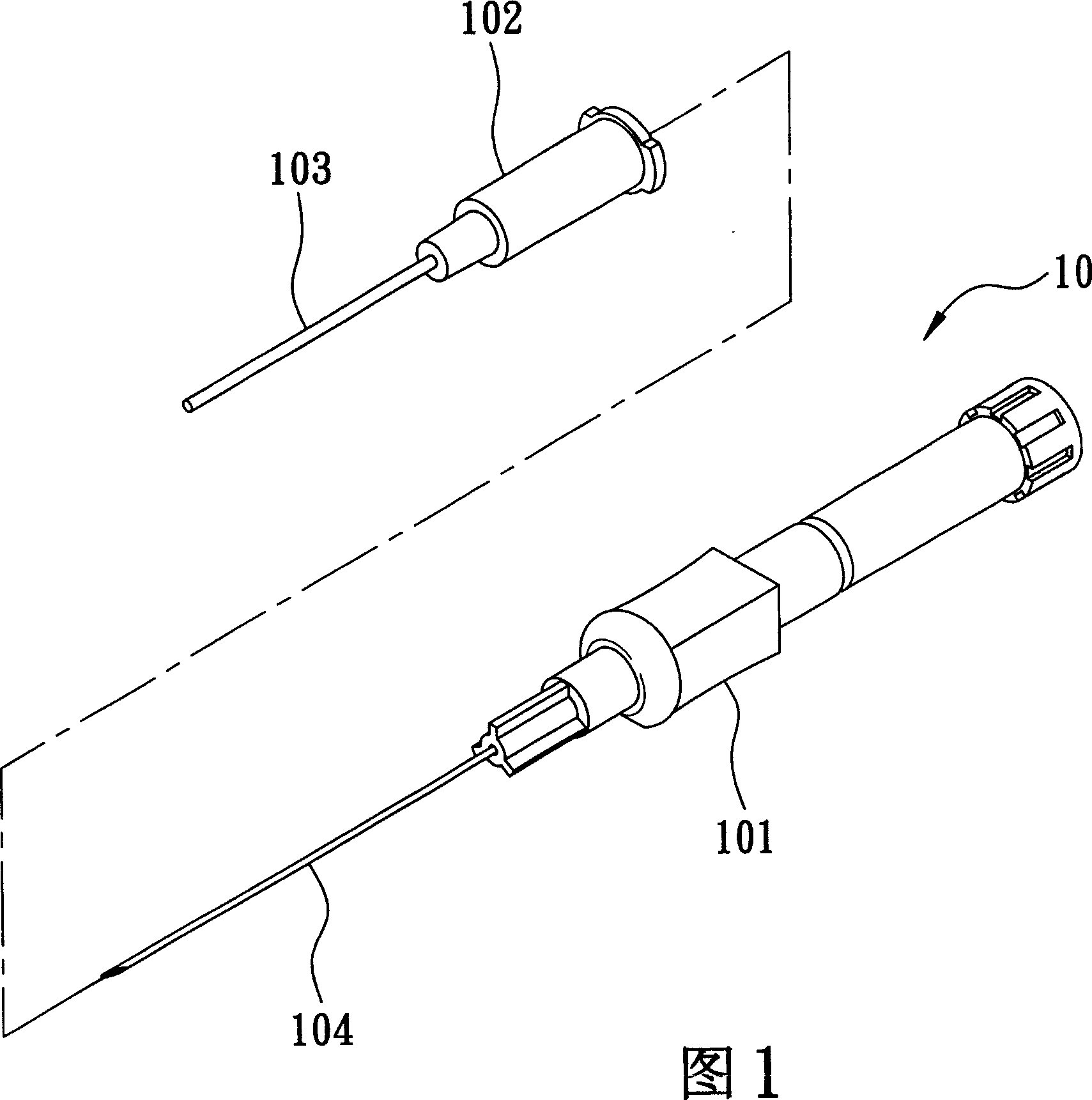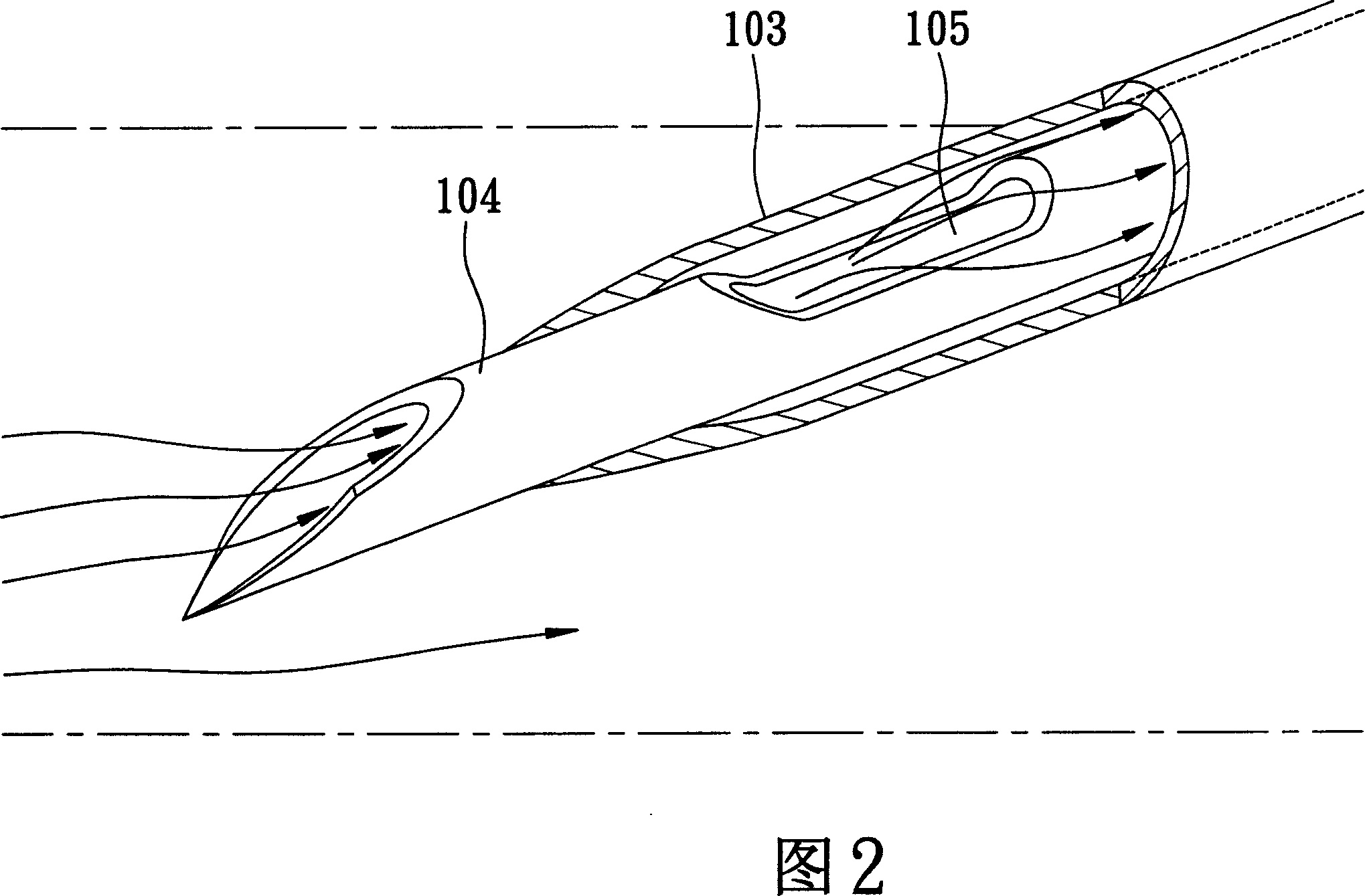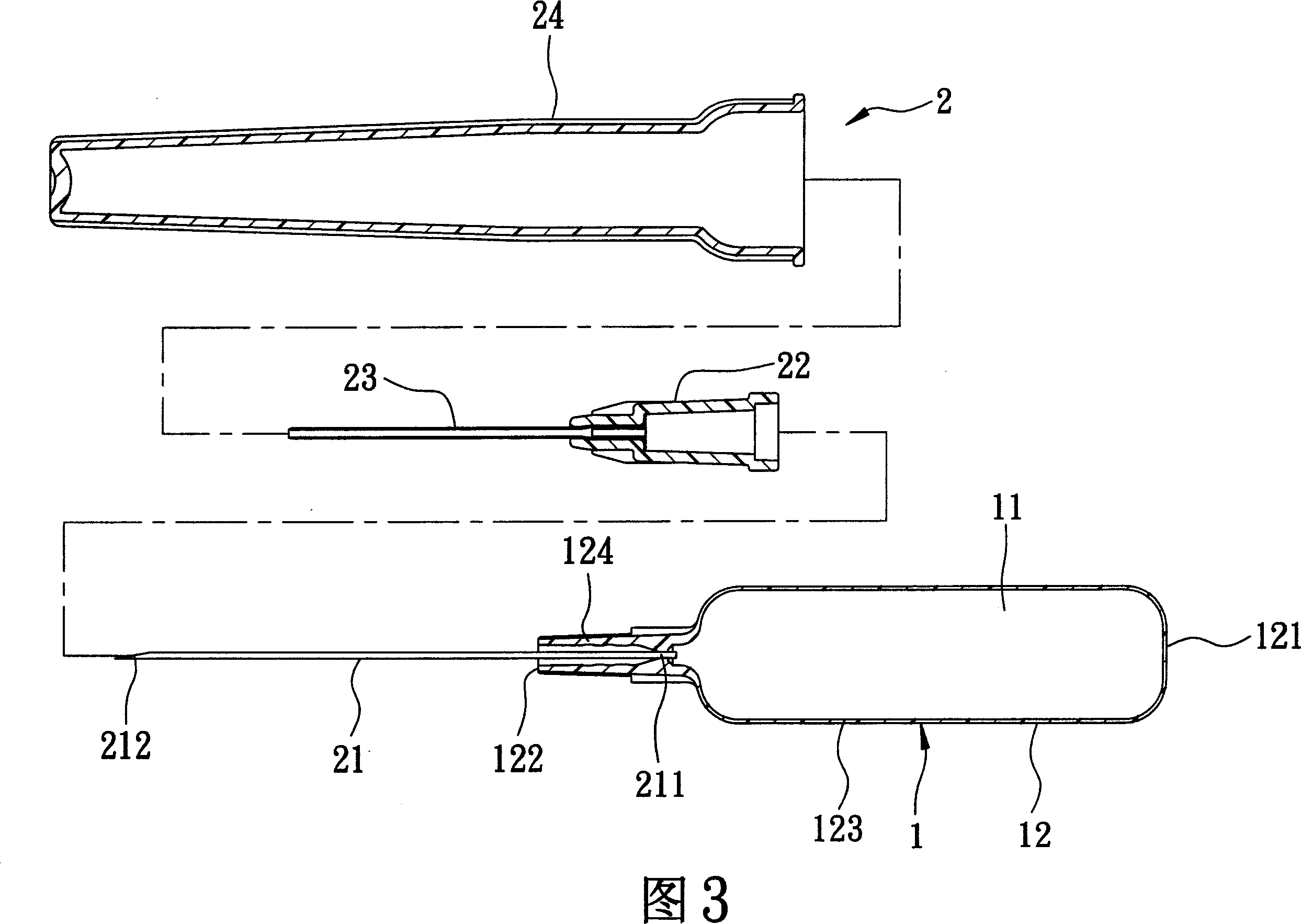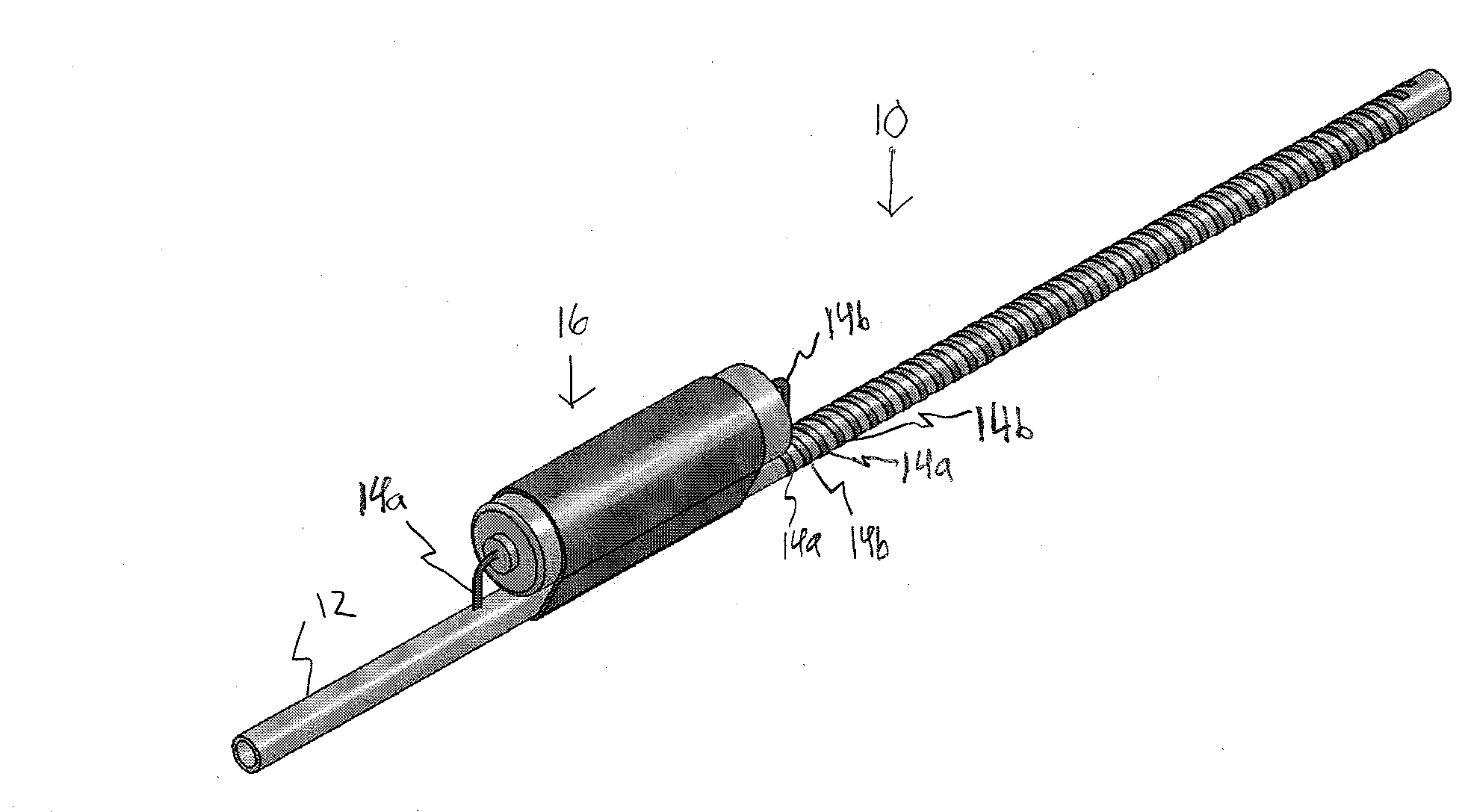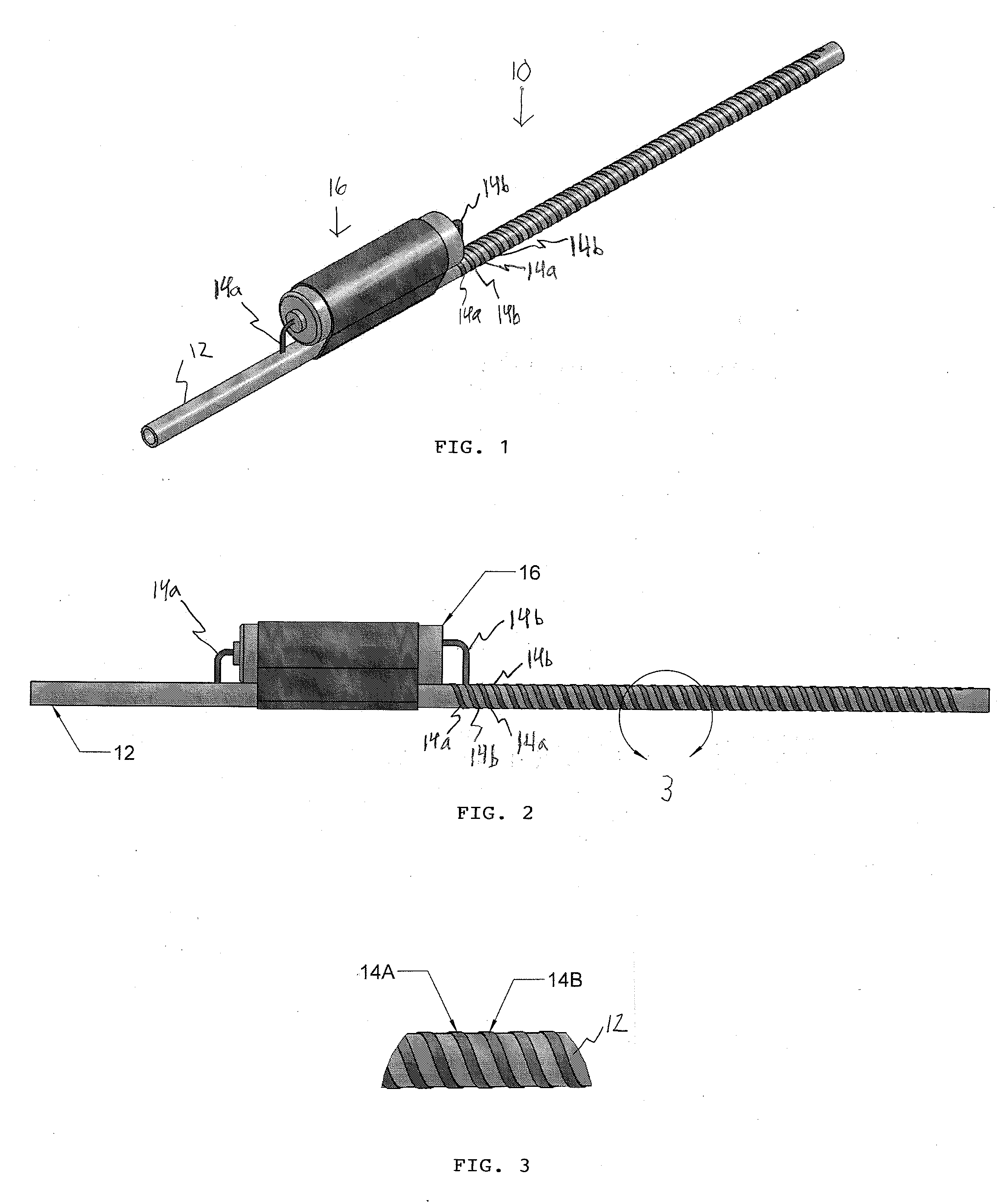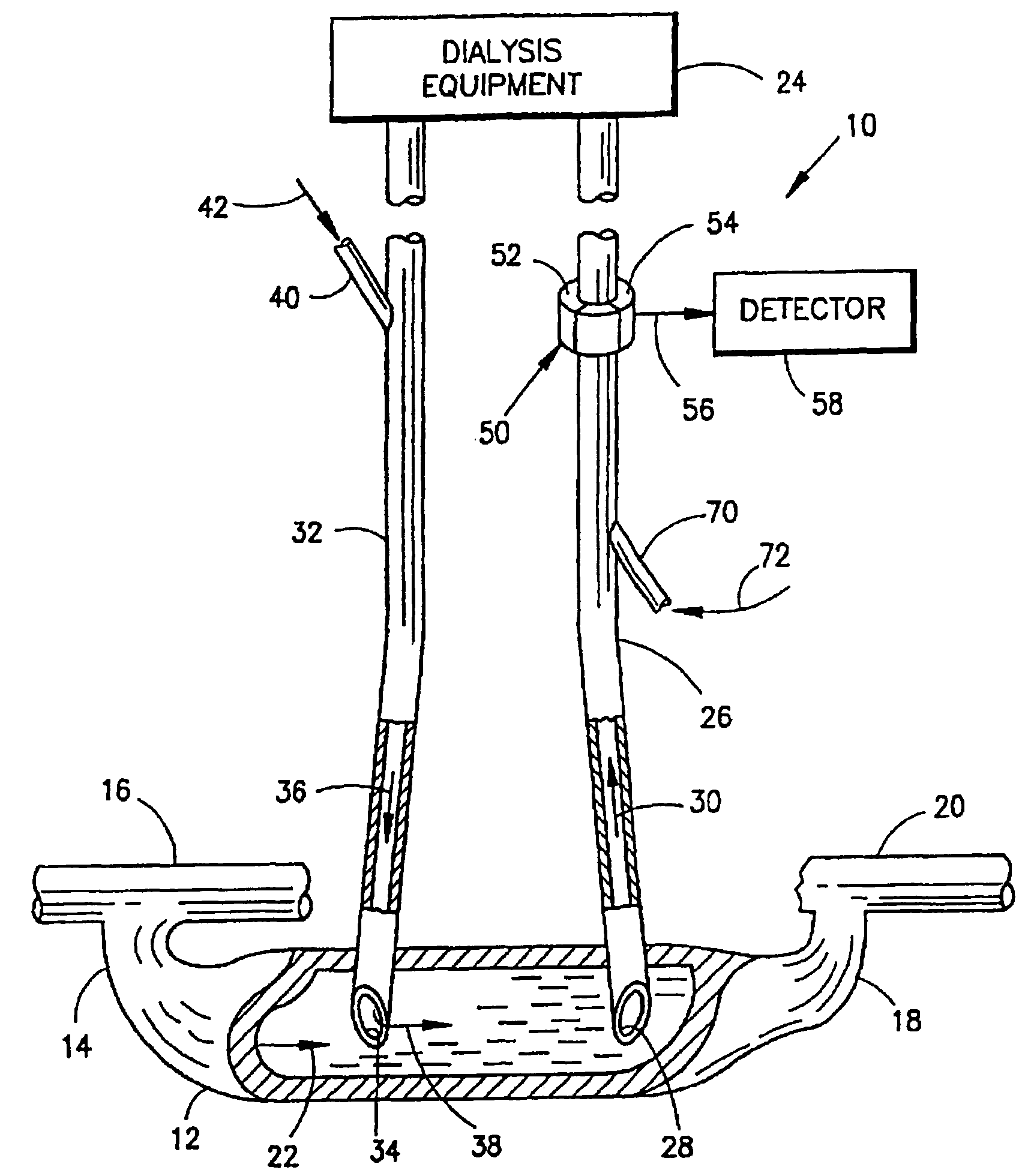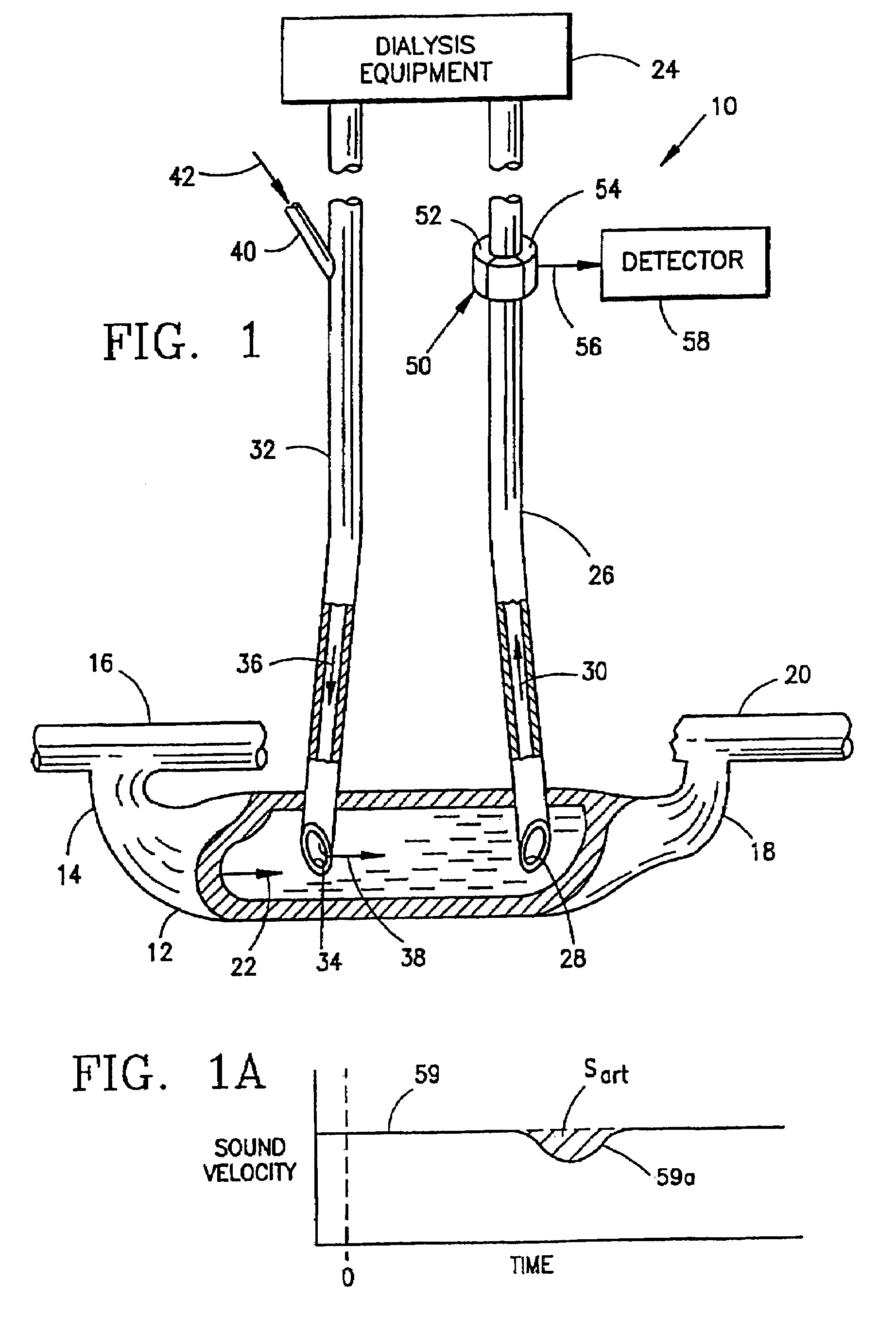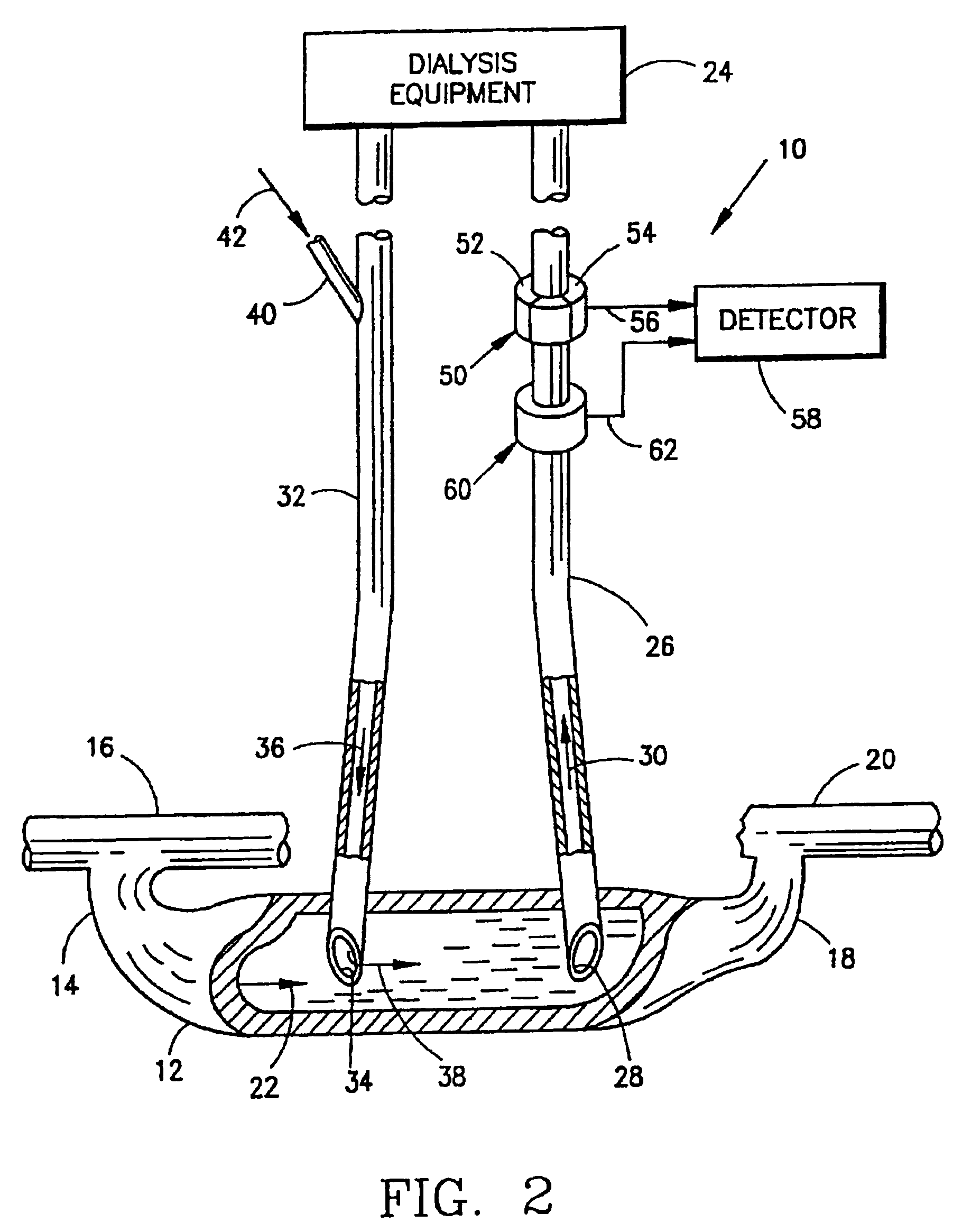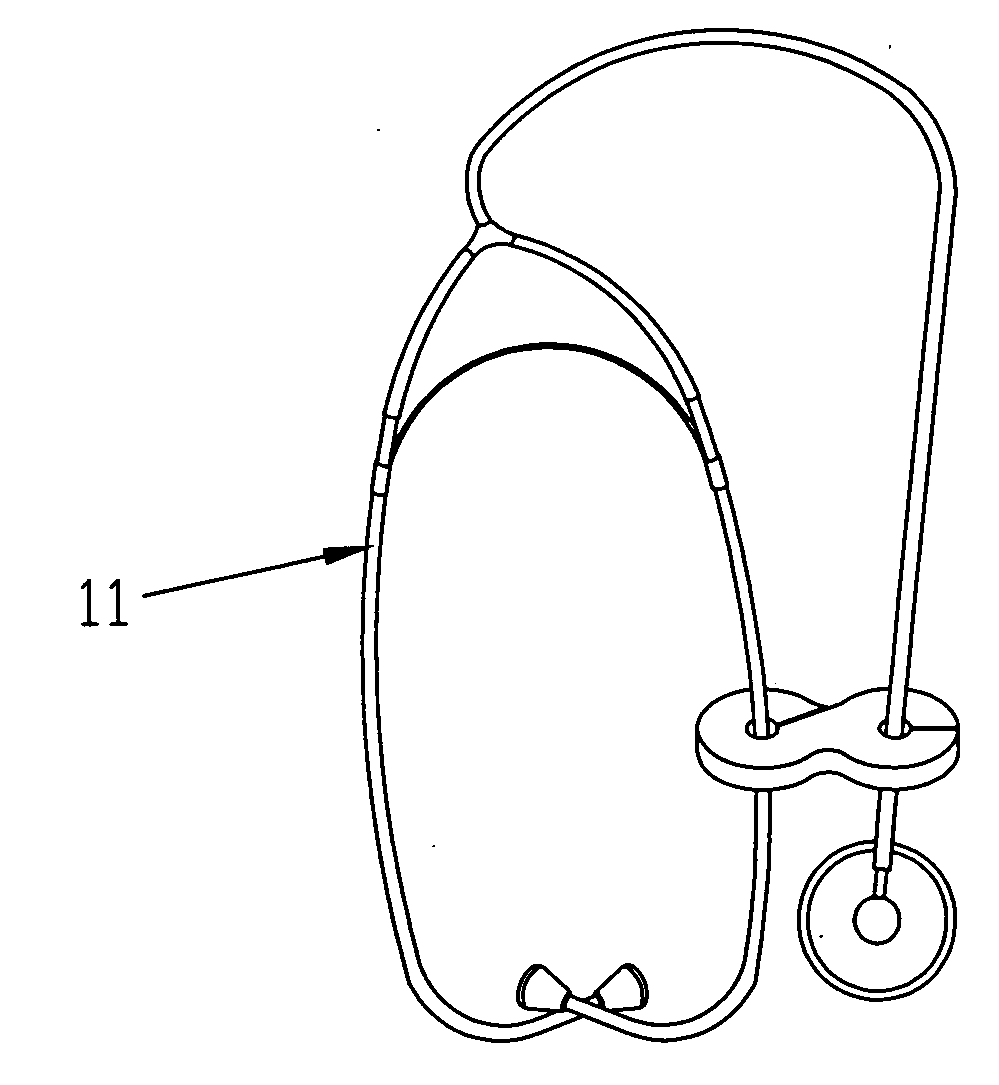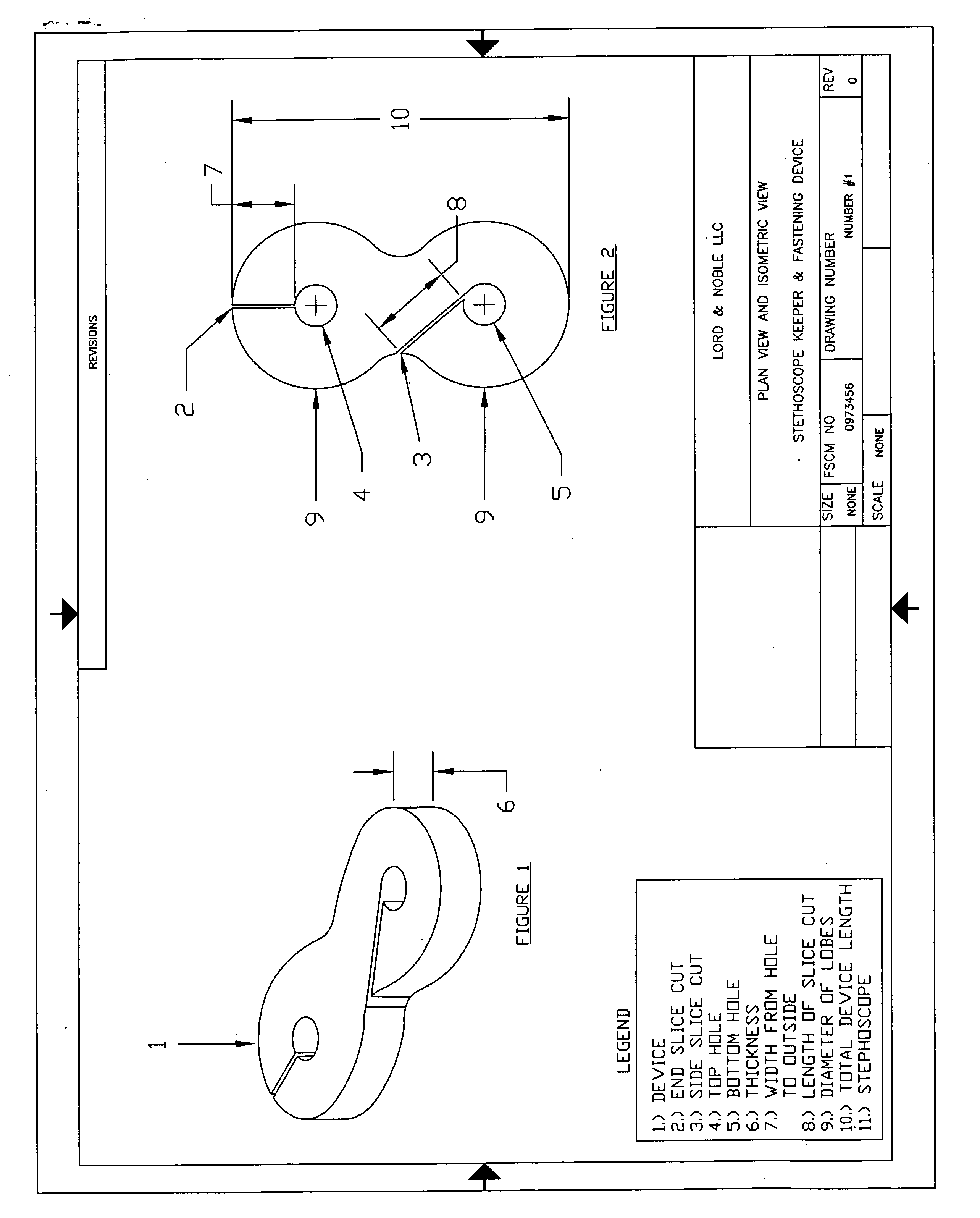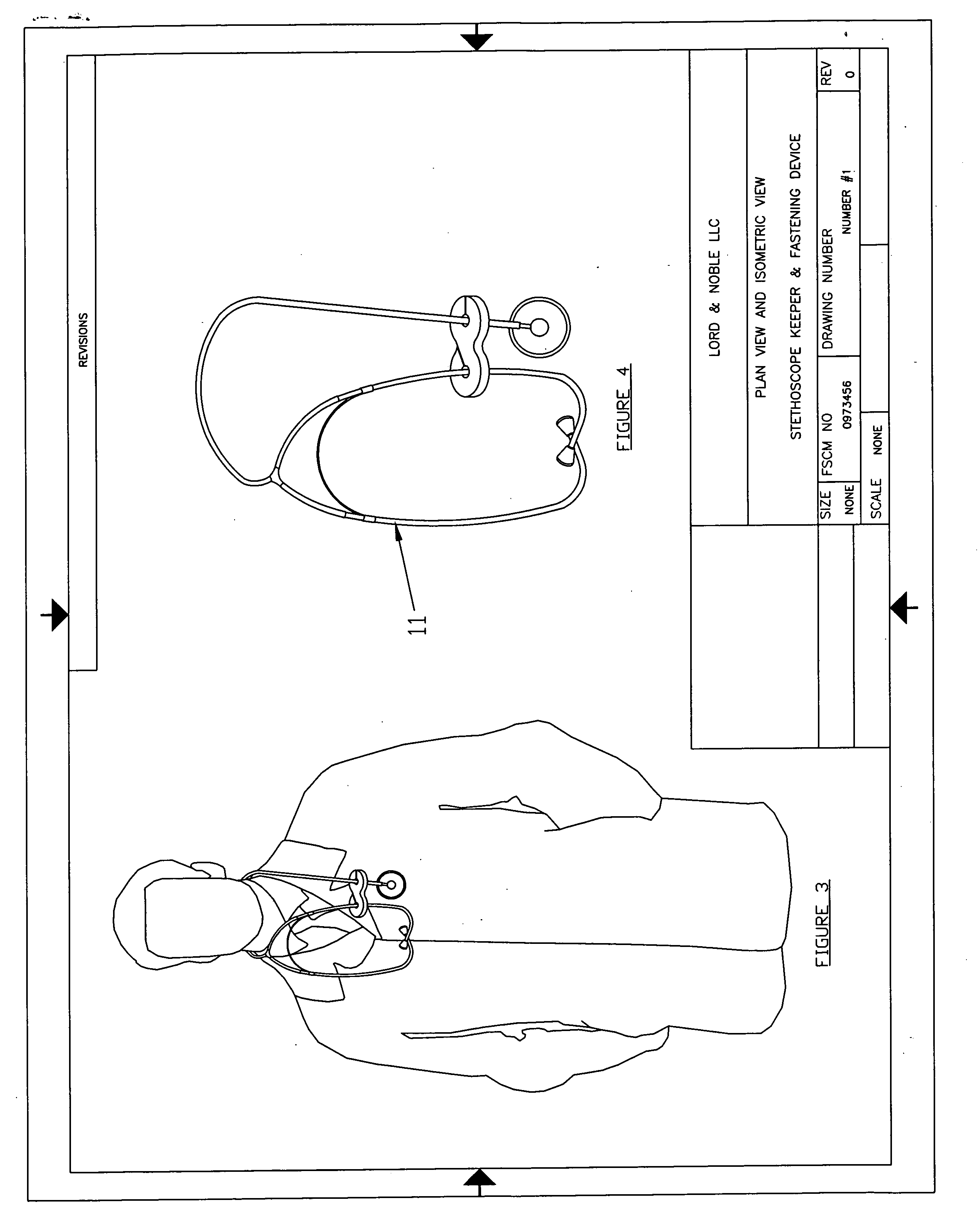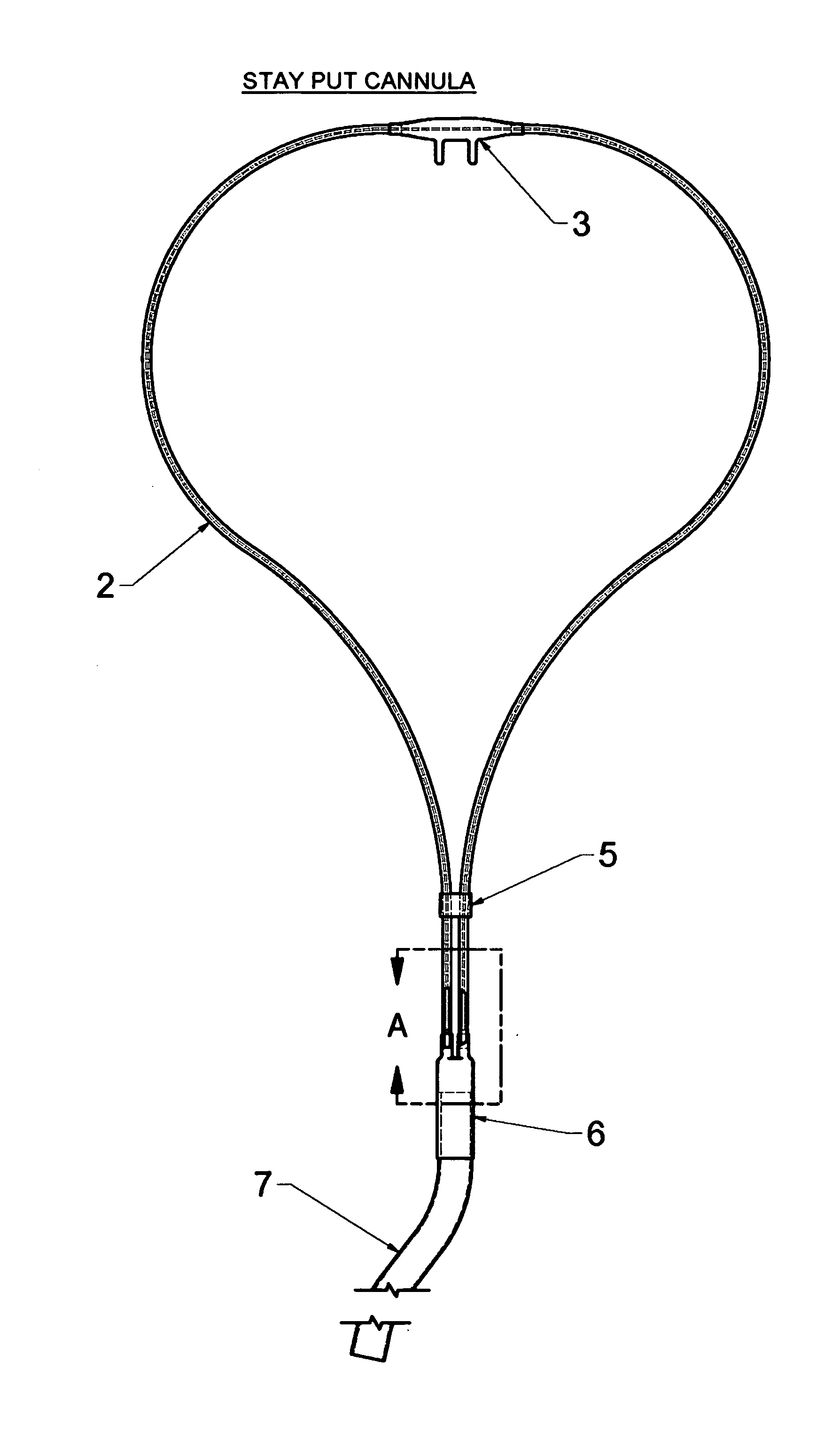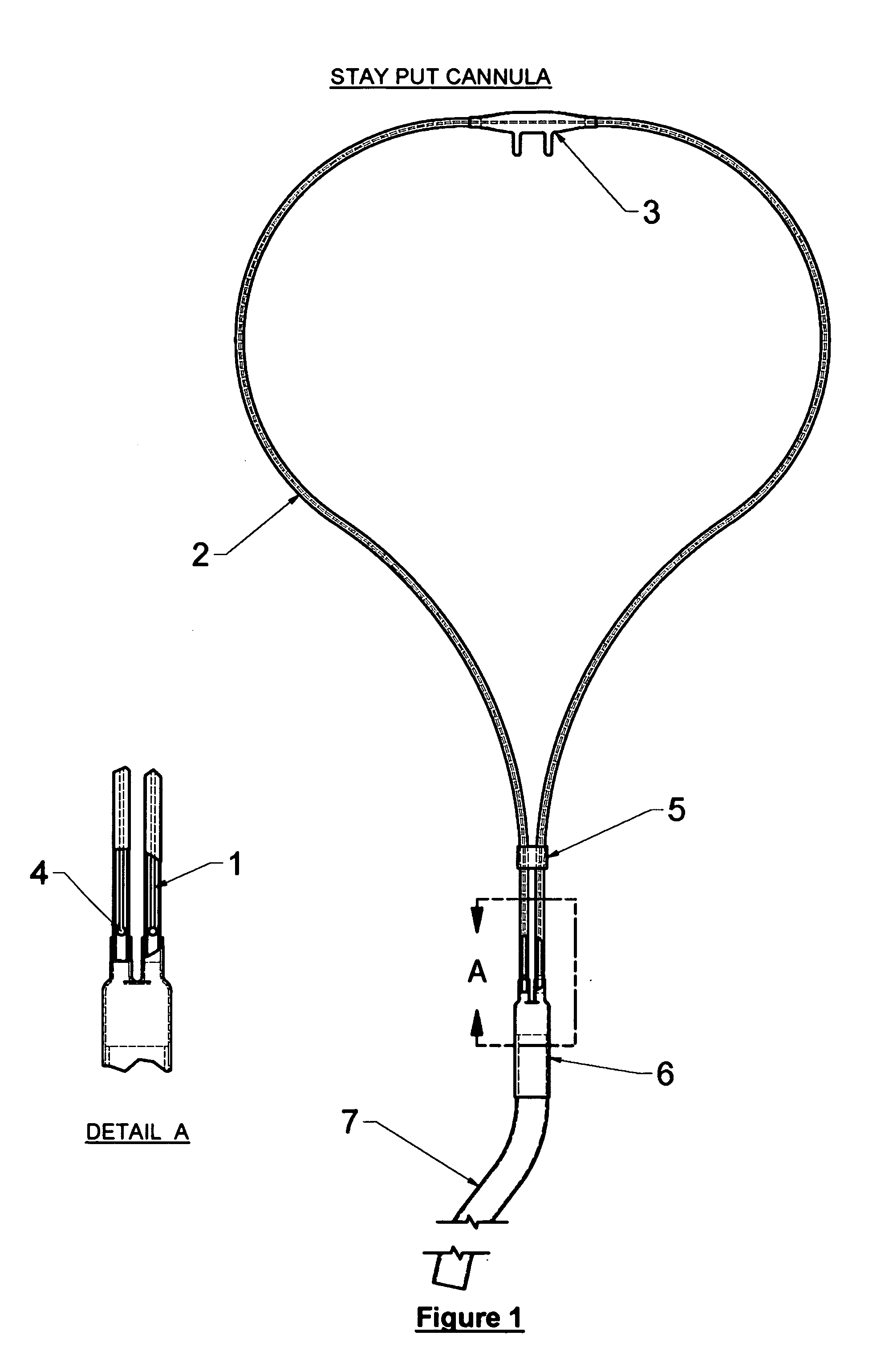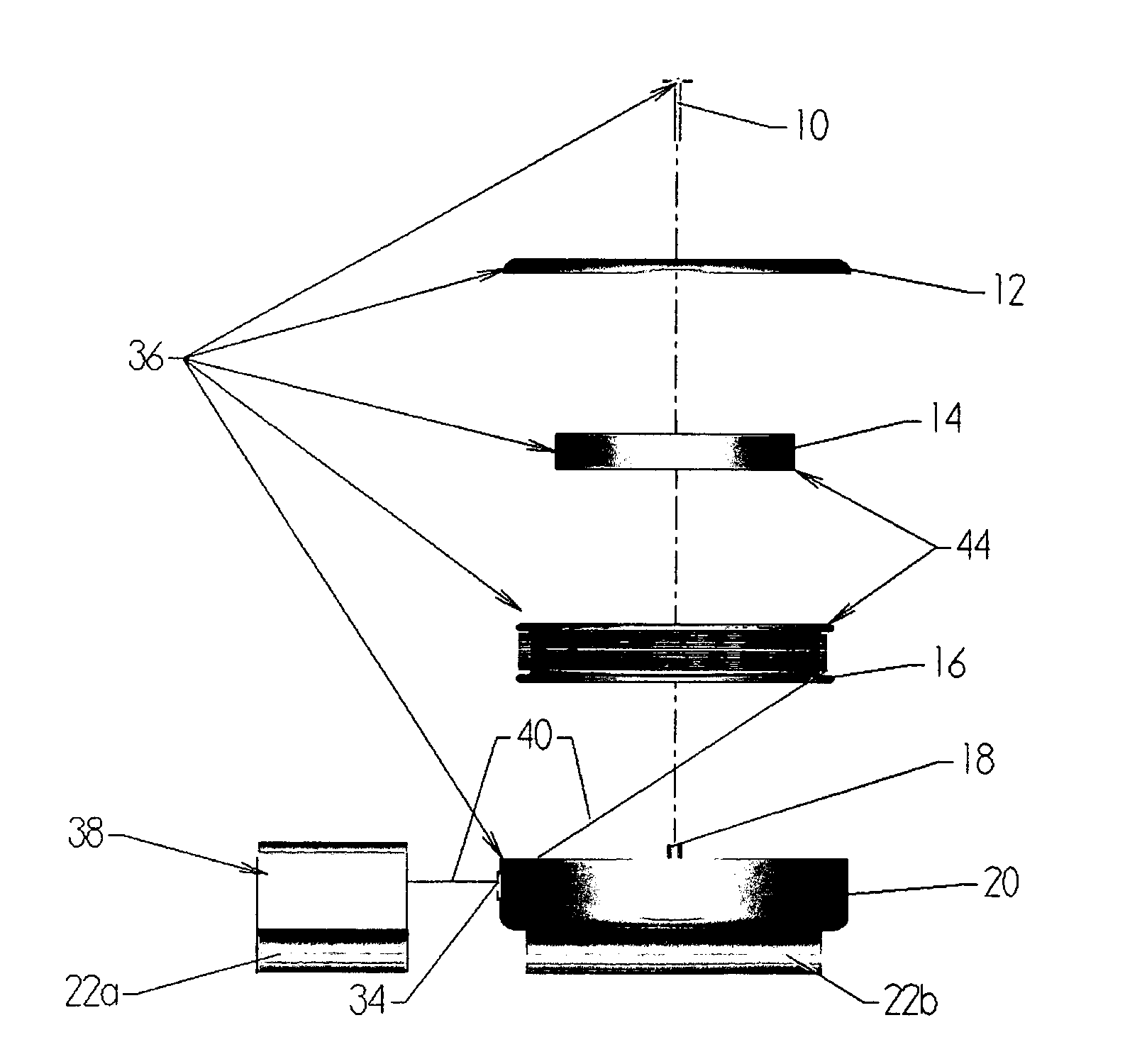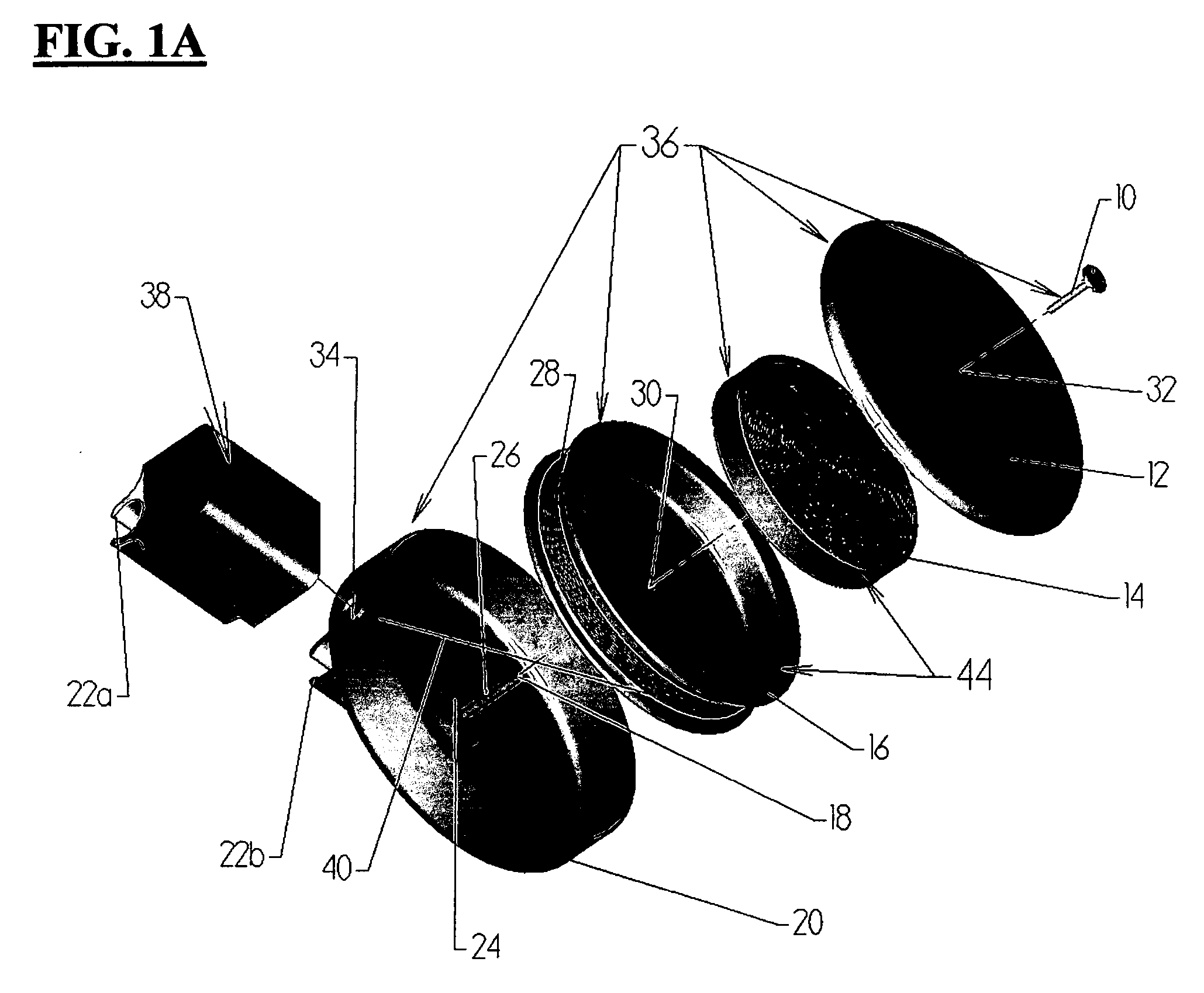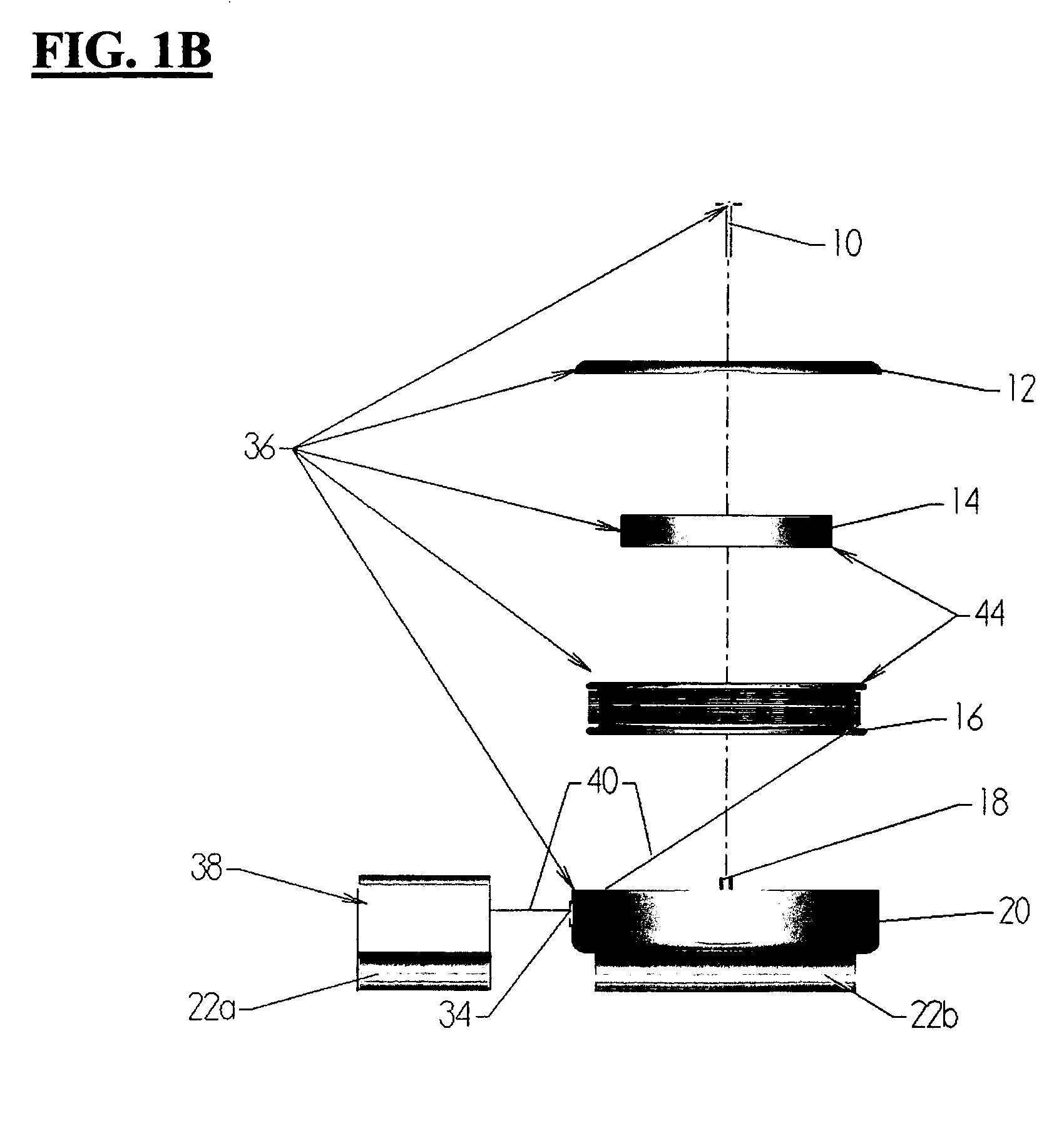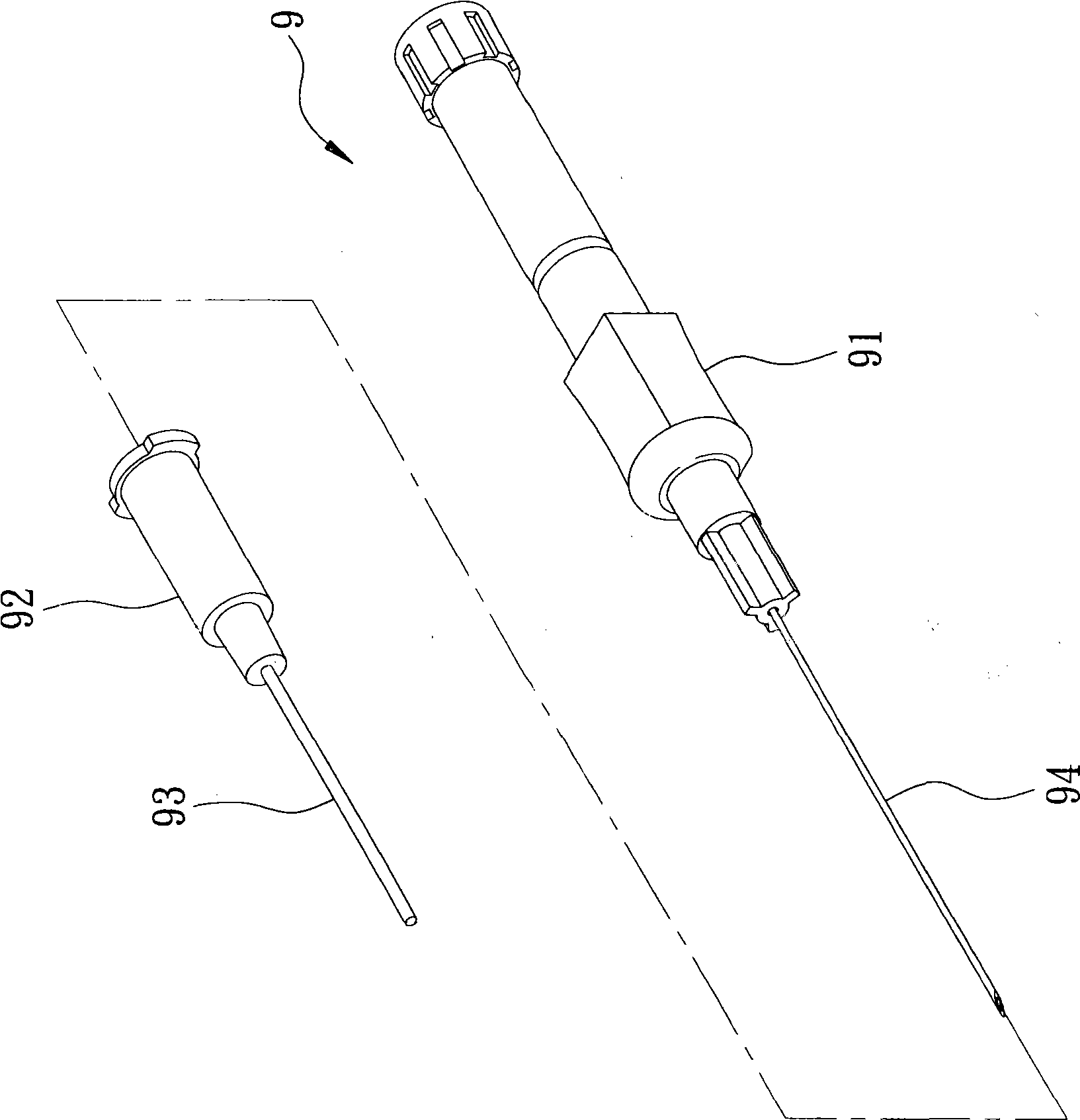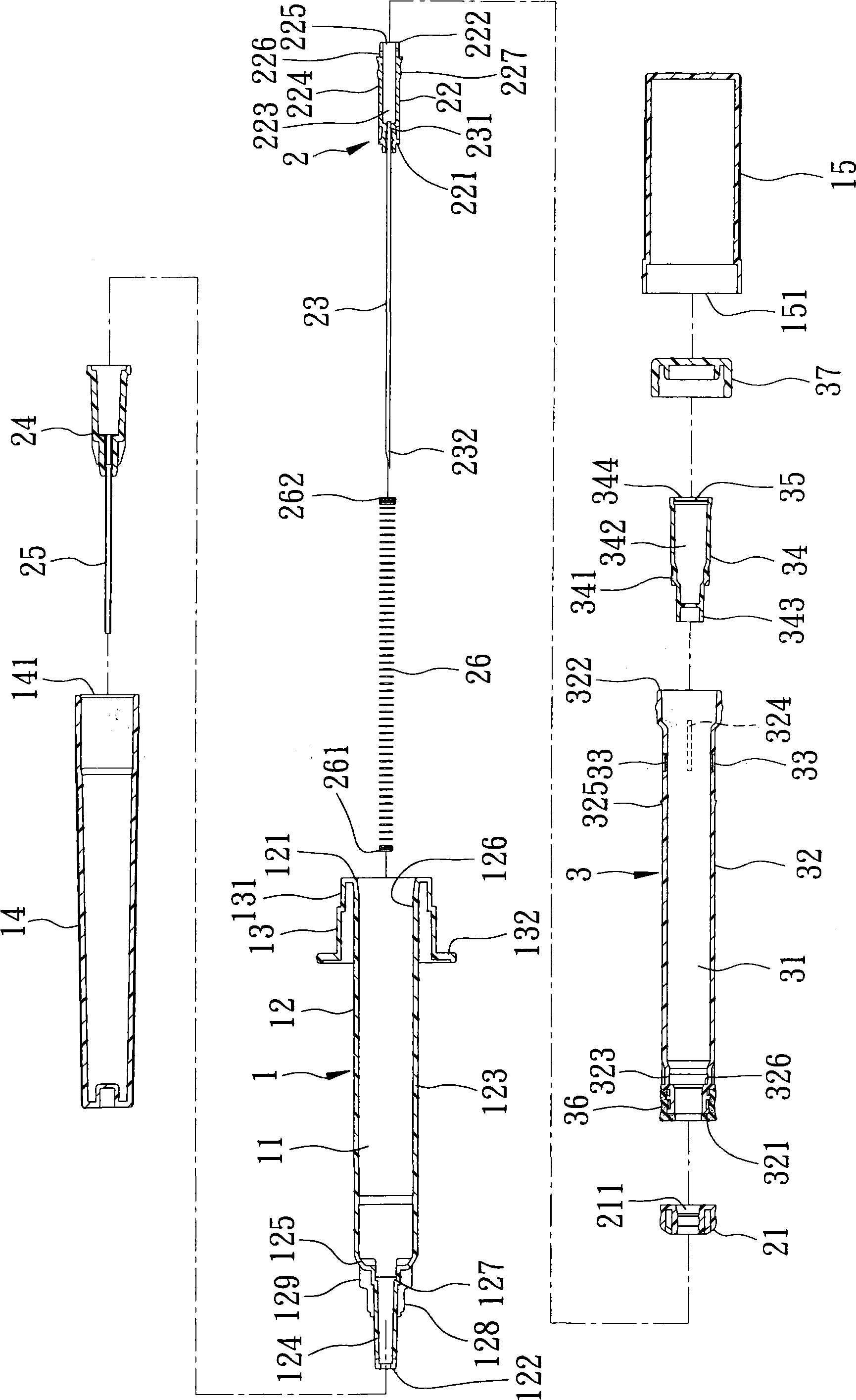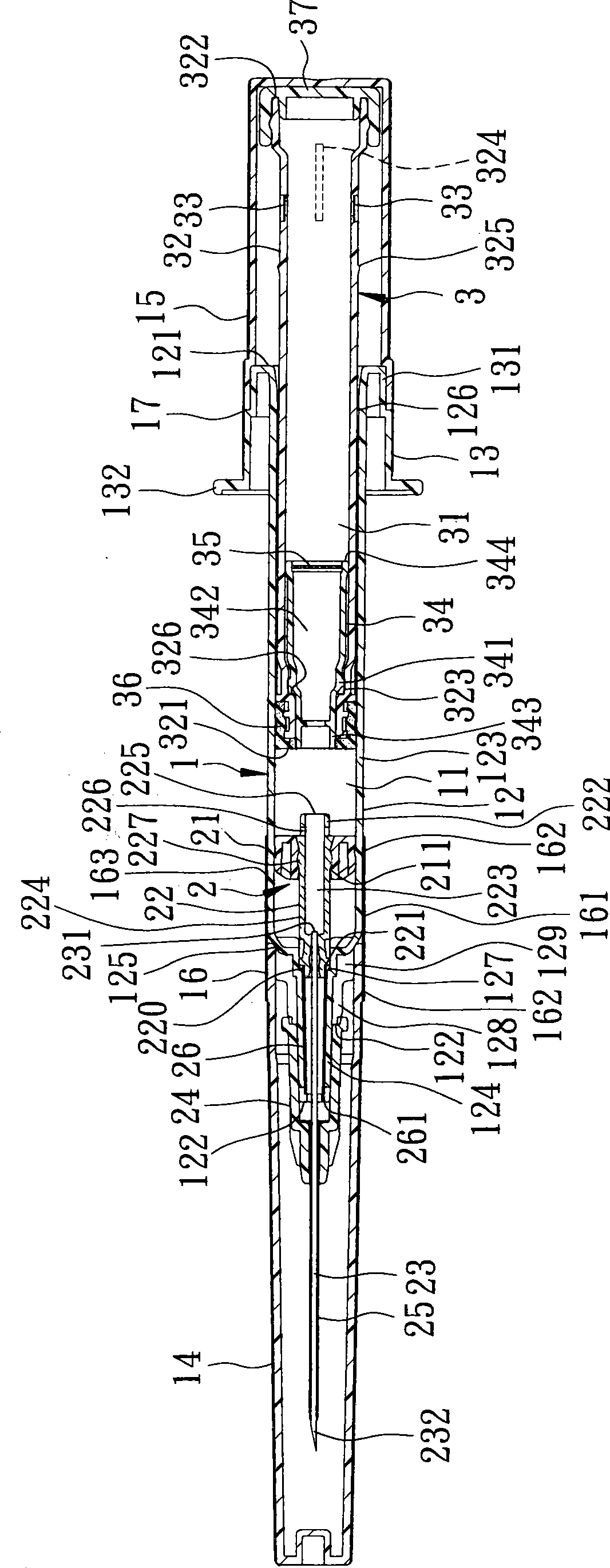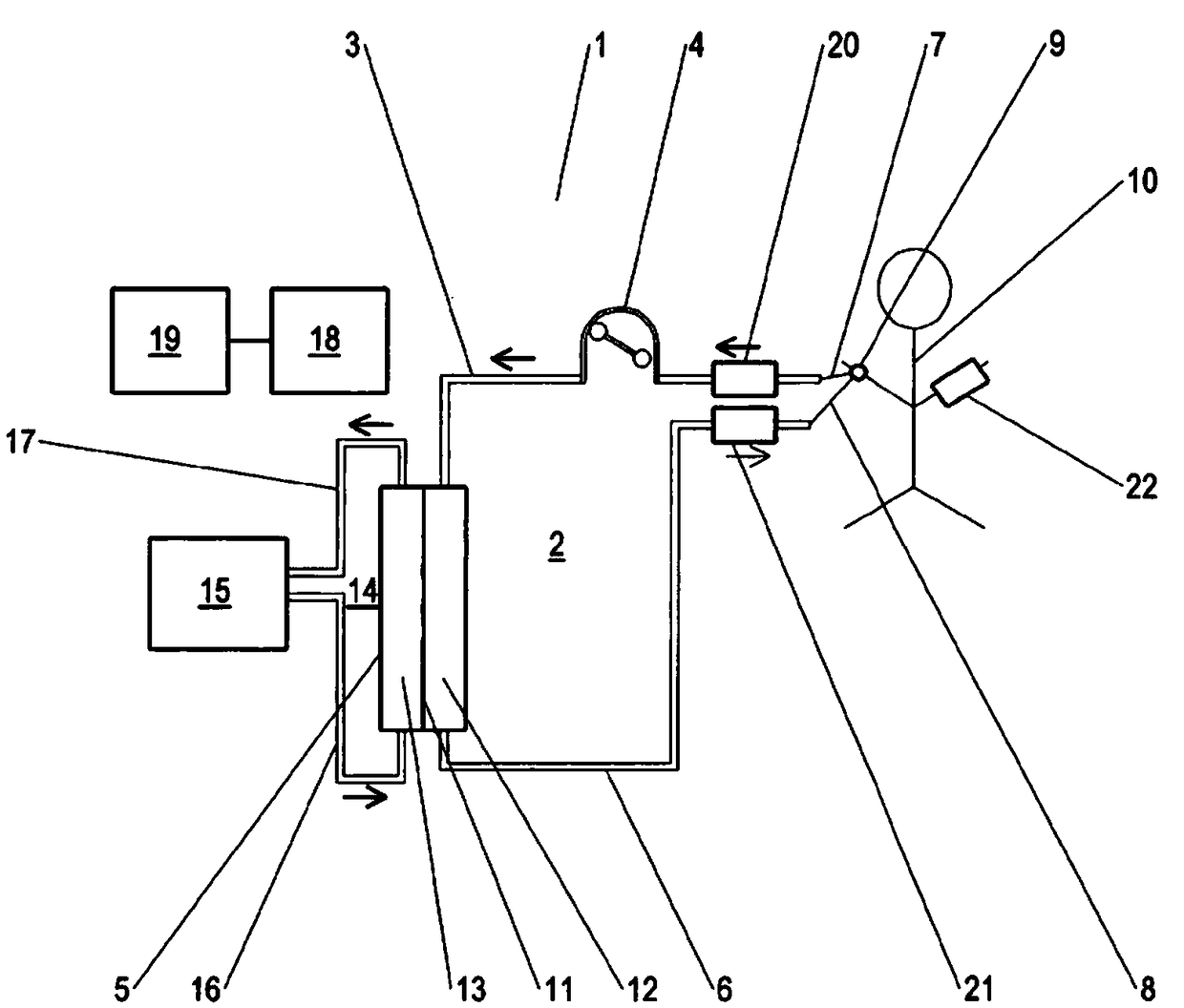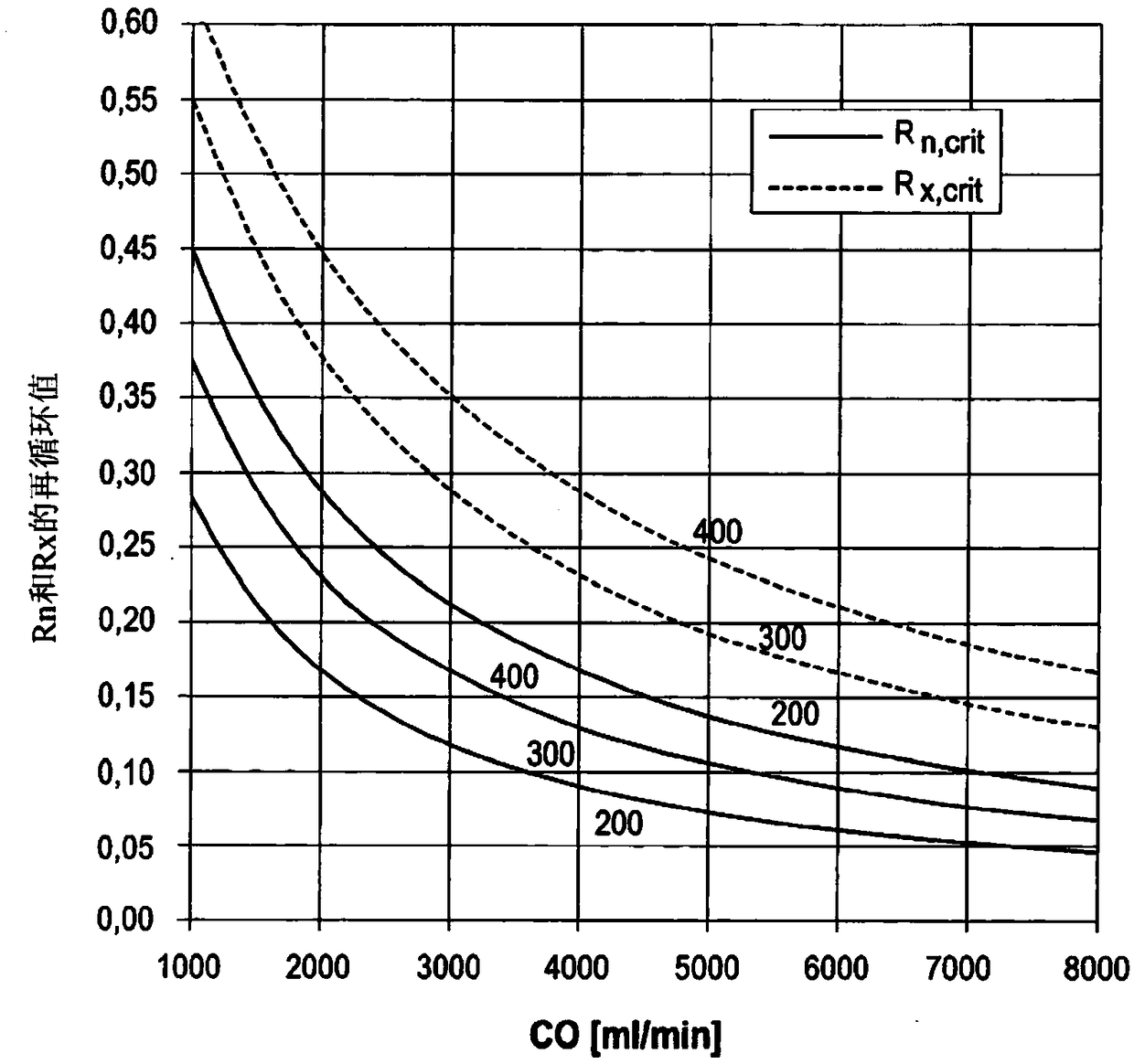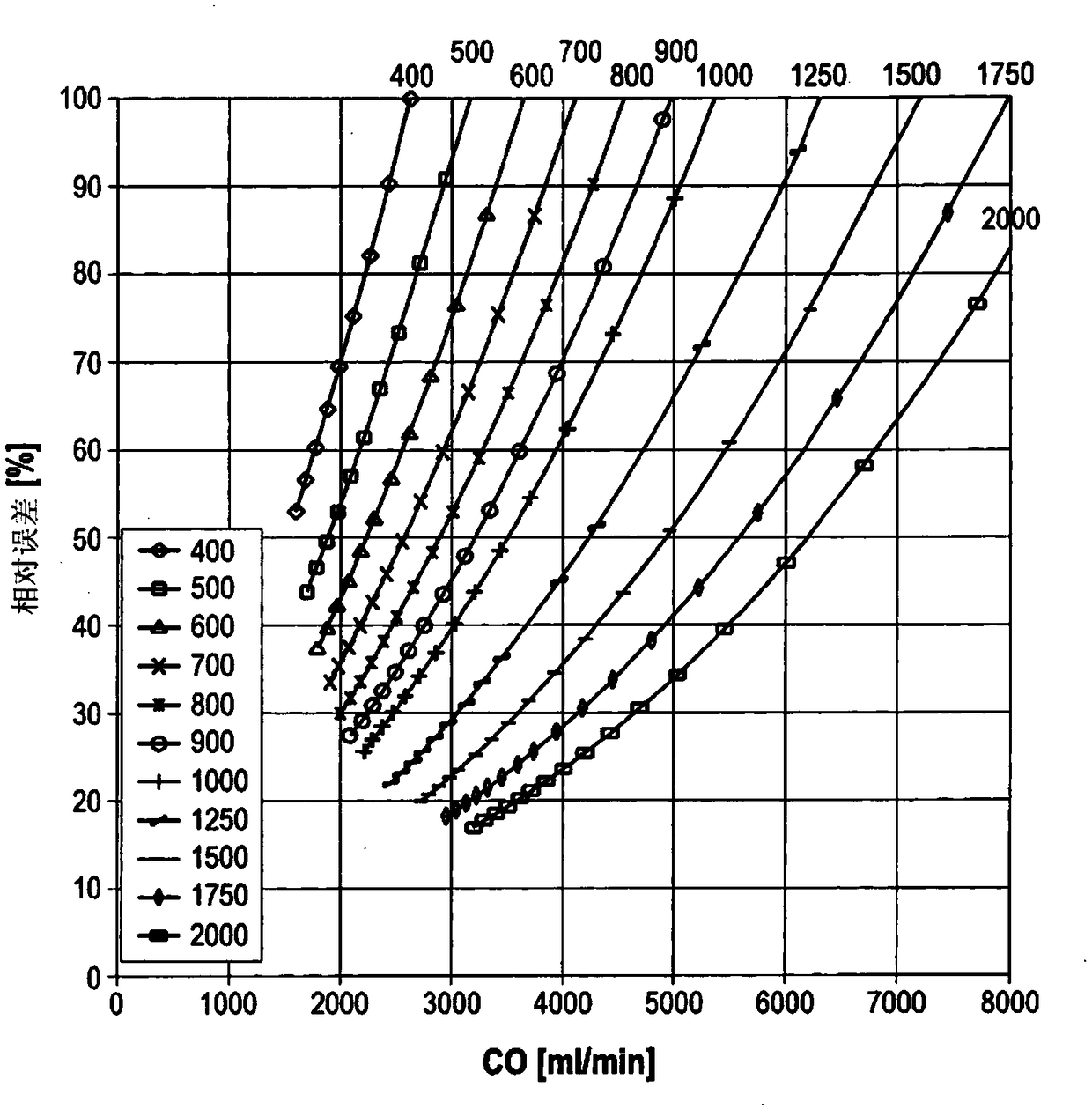Patents
Literature
80 results about "Intravenous tubes" patented technology
Efficacy Topic
Property
Owner
Technical Advancement
Application Domain
Technology Topic
Technology Field Word
Patent Country/Region
Patent Type
Patent Status
Application Year
Inventor
Intravascular Line and Port Cleaning Methods, Methods of Administering an Agent Intravascularly, Methods of Obtaining/Testing Blood, and Devices for Performing Such Methods
An intravascular port access device includes a first component having a chamber configured to attach reversibly to an intravenous line port. A second component reversibly attaches to the first component and contains a disinfecting agent and an applicator material. The second component is configured to be reversibly received over external surfaces of the intravenous line port. A method of cleansing an intravenous line port includes providing a port cleaning device having a first component with a chamber containing a first cleaning agent. A second component includes a second cleaning agent. A third component has a microbiocidal agent and is reversibly attached to the first component. The second component is removed from the device, the external surfaces of the port are contacted with the second cleaning agent, the first cleaning agent is ejected from the chamber into the port, and the third component is used to cap the port.
Owner:HYPROTEK INC
Dialysis catheter system
InactiveUS20040210180A1Reduce and prevent likelihoodIncrease flow rateMulti-lumen catheterOther blood circulation devicesArterial canalSuperior vena cava
The present invention provides a dialysis catheter that is designed to function in reverse-flow, having a dual lumen configuration. An embodiment of the present invention includes two lumen cooperatively configured in a co-axial design. The arterial lumen is circular or oval and extends beyond the termination of the venous lumen. The arterial lumen extracts the blood from the blood vessel for hemodialysis treatment. The venous lumen is also circular or oval. Terminating at a proximal point to the distal end of the arterial lumen, this configuration of the venous lumen aids in preventing recirculation. The venous lumen returns dialyzed blood back into the patient. The venous lumen can further include a plurality of apertures to aid in reducing the risk of fibrin sheath growth. In a method of use, the arterial lumen of the invention preferably resides within the right atrium with the venous lumen positioned within the superior vena cava.
Owner:ALTMAN SANFORD D
Device to Indicate Priming of an Infusion Line
InactiveUS20100063445A1Measured value indication by color changeInfusion syringesFluid infusionInfusion set
A priming indicator for a fluid infusion system includes a luer cap or other component of the infusion system having an indicator surface covered by a membrane. The membrane exhibits a first visual characteristic, such as being opaque, when dry and exhibits a second characteristic, such as becoming less opaque, when wet. Once the membrane becomes wet, indicia on the surface, which may be provided on a rod at least partially covered by the membrane, becomes visible, thereby indicating an intravenous tube to which the luer cap is secured has been primed or is nearly primed. The indicator may alternately be employed at an upstream end of an infusion set, such as at the port of a medical bag providing a supply of fluid, to indicate a low level of fluid in the medical bag.
Owner:BAXTER INT INC +1
Dialysis machine, in particular for home use
The invention concerns a dialysis machine (10) comprising a dialyzer (20) having a first inlet (21) and a first outlet (22) for the bloodstream, dialysate supply mechanism (25), an arterial line (16) connected between the patent's arteriovenous fistula and the dialyzer, a venous line (17) connected between the arteriovenous fistula and the dialyzer, a pump (28) coupled with the arterial line, a dialysate supply line (31), connected between the dialysate supply mechanism and the dialyzer, a dialysate evacuation line (33) connected between a dialysate recuperating container (27) and the dialyzer. The sterile dialysate bags are arranged in a chamber (26) under a gas pressure.
Owner:PHYSIDIA
System and methods for optical sensing and drug delivery using microneedles
The current techniques provide a system for monitoring a physiological parameter of a patient using microneedles that are coupled to an optical system, allowing spectroscopic measurements to be made immediately below the outer layer of the epidermis. In embodiments of the present invention, the results of the spectroscopic measurements are used to control the administration of a drug through an intravenous tube. In other embodiments, the microneedles may be coated with a drug for administration to the patient. In other embodiments, the microneedles may be mounted in a probe, wherein an actuator is used to move the needles into contact with the skin, and a drug delivery system is used to infuse the drug into the patient. A method for making needles is also provided.
Owner:TYCO HEALTHCARE GRP LP
Arrangement for the coupling of an intravenous tube with infusion pump
The invention concerns an arrangement to couple an intravenous hose having a roller clamp with an infusion pump. A hose clamp has clamping surfaces in the form of legs which can move relative one another about a hinge, the legs being enveloped on their outside by a biased clamping spring, and the device is formed by an expander rib that is fastened on the inside of the door and can be brought into engagement with the legs of the hose clamp so to produce the open position after closing the door to expand the legs. The housing has a receiver, into which the hose clamp can be snapped, and that a locking device is present in the housing that prevents the closing of the door if the hose clamp is not inserted into the receiver and permits the closing of the door when the hose clamp is fully inserted.
Owner:CODAN HOLDING GMBH
Extracorporeal treatment device with automatic emptying of waste bag
ActiveUS20040267183A1Semi-permeable membranesSolvent extractionExtracorporeal circulationBlood treatments
The invention relates to a blood treatment device by extracorporeal circulation comprising a filter having a primary chamber and a secondary chamber separated by a semi-permeable membrane; a blood circuit comprising an arterial line intended to come from the patient, the filter's primary chamber and the venous line intended to return to the patient; a dialysate circuit comprising the filter's secondary chamber and at least a drain line for circulating the waste intended to come from the filter and intended to go to a drain; a first bag in fluid communication with the drain line; at least a first gravimetric weighing means linked to the first bag, fluid flow rate adjustment means acting on the drain line; a control unit linked to the first gravimetric weighing means and with the fluid flow rate adjustment means; a second bag in fluid communication with the drain line, the control unit being capable of receiving weight signals from the first gravimetric weighing means and of controlling the fluid flow rate adjustment means to load one of the bags with liquid while the other bag unloads liquid, and vice-versa. The invention also relates to a single-use drain line for use in a treatment device according to the invention.
Owner:GAMBRO LUNDIA AB
Method and apparatus for heating solutions within intravenous lines to desired temperatures during infusion
ActiveUS20050142013A1Sufficient residence timeSpeed up heat transferInfusion devicesFlexible member pumpsTemperature controlLine tubing
An IV line temperature controlled warming device includes a housing and a fluid cassette or cartridge that receives fluid from an IV line and includes intravenous line tubing arranged in a preformed configuration. The configuration includes tubing sections arranged in generally circular and concentric portions and a central serpentine tubing section that basically reverses fluid flow and facilitates flow in opposing directions within adjacent tubing sections. The fluid cassette is retained within the device on a base plate partially disposed within a device housing interior, while a housing cover is selectively opened and closed to permit access to the base plate. The base plate includes a heater plate disposed thereon, while the cover and heater plate each include heating elements to apply heat to opposing surfaces of the tubing cassette. The heating elements are controlled by a controller in response to measured temperatures of the heater plate and fluid.
Owner:MEDICAL SOLUTIONS
Method and apparatus for heating solutions within intravenous lines to desired temperatures during infusion
ActiveUS8226605B2Enough timeSpeed up heat transferInfusion devicesMedical devicesTemperature controlLine tubing
Owner:MEDICAL SOLUTIONS INC
Method and apparatus for determining hemodialysis parameters
InactiveUS7097630B2Accurately and reliably and inexpensively determiningSimple and cheap equipmentSemi-permeable membranesOther blood circulation devicesVeinPresent method
This invention provides a method and apparatus for calculating a hemodialysis parameter, especially blood access flow rate, using multiple dialysance values. The dialysance values may be calculated based upon either sodium or urea concentrations. One dialysance value can be determined for conditions in which a patient's arterial line withdraws blood from an upstream location in a patient's fistula and treated blood is returned by a venous line to a downstream location in a patient's fistula. The second dialysance value can be determined when the lines have been reconfigured so that the arterial line withdraws blood from a downstream portion of a patient's fistula and the venous line returns treated blood to an upstream portion of a patient's fistula. Since it is possible to determine the dialysance values solely from concentration measurements made on the dialysate side of the dialysis apparatus, the present method and apparatus provide a non-invasive means for determining hemodialysis parameters such as blood access flow rate and recirculation.
Owner:FRESENIUS MEDICAL CARE HLDG INC +1
Multilumen Venous Catheter and Method of Use
A multilumen venous access catheter and method of use and repair is provided. The catheter has a means for identifying at least one physical characteristic of an arterial tube and a means for identifying at least one physical characteristic of a venous tube. The at least one physical characteristic of the respective arterial and venous tubes are different in order to allow a user to distinguish between the arterial and venous catheter tubes during use, manufacture, and repair.
Owner:ANGIODYNAMICS INC
Venous reservoir
InactiveUS20070078369A1Enhanced advantageImprove uniquenessOther blood circulation devicesSurgeryExtracorporeal circulationVacuum assisted
Venous reservoirs are interposed between the patient and the arterial pump and serve to remove air bubbles and provide compliance that accommodates variations in the volume of blood circulating in the extracorporeal circuit during cardiopulmonary bypass (CPB). The invention is a reservoir that incorporates automated means to remove air bubbles from the venous line prior to the blood entering the arterial blood pump. In another form, the reservoir includes means that handles foam prior to the blood entering the blood pump. In yet another form, the invention is means that improve air removal in a soft shell venous reservoir. These features are applicable to CPB circuits using gravity drainage or vacuum assisted venous drainage.
Owner:TAMARI YEHUDA
Intravenous connector having antimicrobial treatment
An intravenous connector is provided having a valve body having first end configured to receive a syringe for administering medicine to a patient; a spike element having a tapered hollow spike terminating in a tip at a first end and having a second end configured for attaching to an intravenous tube, the spike element secured in the valve body such that the tip is disposed proximate the first end of the valve body and the second end of the spike element is located at a second end of the valve body; and a pliable seal member disposed in the valve body around the tapered hollow spike and exposed at the first end of the valve body. An antimicrobial material comprising a silane quaternary ammonium salt is incorporated on or within the seal member and is coated on the valve body and the spike element.
Owner:PARASOL MEDICAL
Intravenous connector having antimicrobial treatment
An intravenous connector is provided having a valve body having first end configured to receive a syringe for administering medicine to a patient; a spike element having a tapered hollow spike terminating in a tip at a first end and having a second end configured for attaching to an intravenous tube, the spike element secured in the valve body such that the tip is disposed proximate the first end of the valve body and the second end of the spike element is located at a second end of the valve body; and a pliable seal member disposed in the valve body around the tapered hollow spike and exposed at the first end of the valve body. An antimicrobial material comprising a silane quaternary ammonium salt is incorporated on or within the seal member and is coated on the valve body and the spike element, and wherein the antimicrobial material.
Owner:PARASOL MEDICAL
Device to indicate priming of an infusion line
Owner:BAXTER INT INC +1
Extracorporeal treatment device with automatic emptying of waste bag
The invention relates to a blood treatment device by extracorporeal circulation comprising a filter having a primary chamber and a secondary chamber separated by a semi-permeable membrane; a blood circuit comprising an arterial line intended to come from the patient, the filter's primary chamber and the venous line intended to return to the patient; a dialysate circuit comprising the filter's secondary chamber and at least a drain line for circulating the waste intended to come from the filter and intended to go to a drain; a first bag in fluid communication with the drain line; at least a first gravimetric weighing means linked to the first bag, fluid flow rate adjustment means acting on the drain line; a control unit linked to the first gravimetric weighing means and with the fluid flow rate adjustment means; a second bag in fluid communication with the drain line, the control unit being capable of receiving weight signals from the first gravimetric weighing means and of controlling the fluid flow rate adjustment means to load one of the bags with liquid while the other bag unloads liquid, and vice-versa.The invention also relates to a single-use drain line for use in a treatment device according to the invention.
Owner:GAMBRO LUNDIA AB
Intravenous tube organizer
InactiveUS20090019678A1Improve welfareReducing potential entanglementSnap fastenersPipe supportsEngineeringIntravenous tubes
Owner:TAYLOR SUSAN L
System and methods for optical sensing and drug delivery using microneedles
Owner:TYCO HEALTHCARE GRP LP
Blood purifier
The invention discloses a blood purifier. The blood purifier comprises an artery pipe, a vein pipe and a blood filter. The artery pipe communicates with an artery kettle after bypassing a blood pump, and the vein pipe communicates with a vein kettle. A displacement liquid communicates with the vein kettle after bypassing a displacement liquid pump through pipes. A liquid waste output port of the blood filter communicates with a liquid waste collecting bag after bypassing a liquid waste pump through pipes. One in-film joint of the blood filter communicates with a first multi-pipe gating switch, and the other in-film joint of the blood filter communicates with a second multi-pipe gating switch. The first multi-pipe gating switch communicates with the vein kettle, and the second multi-pipe gating switch communicates with the artery kettle. Both the first multi-pipe gating switch and the second multi-pipe gating switch have ports connected with a blood filter to be replaced. The blood purifier can solve the problems, such as blood exosmosis, increase of financial burden for a patient caused by frequently whole pipe replacement, influence on blood filtration, and increase of risk of blood infection, caused by direct separation of cruor in pipes during blood purification and installation of pipes and a blood filter.
Owner:唐天泽 +1
Optical fiber communication simulation demonstration device
InactiveCN101639998ATotal Reflection GuaranteeEasy to makeEducational modelsPhotoelectric conversionEngineering
The invention provides an optical fiber communication simulation demonstration device, comprising an electro-optical conversion device, a simulation optical fiber cable device, an optical-electronic conversion device and a sound restoring device, wherein the electro-optical conversion device comprises a sound producing device and an LED, and an audio signal wire of the sound producing device is connected with the LED; the simulation optical fiber cable device comprises a medical intravenous tube and water which fully fills the intravenous tube; the optical-electronic conversion device comprises a light sensitive diode, a dry battery and guide lines; the sound restoring device is a recorder; the LED, the light sensitive diode and the medical intravenous tube which is full of water are connected in a hermetic sealing manner, the light sensitive diode and the dry battery are connected by guide lines and magnified by phone or at a circuit input interface and then input to the sound restoring device.
Owner:屈社文
Intravenous fluid heater
InactiveUS20120220938A1Improve heat transfer performanceUnparalleled strengthIntravenous devicesSurgical instruments for heatingTemperature controlLine tubing
A compact and highly efficient intravenous fluid heater includes a heat exchanger assembly, sensors for sensing respective temperatures of entering and exiting fluids of the flow path, a controller for controlling the heat generated by the heat exchanger assembly, based upon the temperatures of the exiting fluids, heating of the fluid in the flow path by the heating element so as to cause the fluid in the flow path to be substantially uniformly heated to a desired infusion temperature prior to exiting the heater. The heat exchanger assembly uses thin film heating elements having a predetermined set temperature and that transfers heat directly to a standard intravenous tube coil wrapped around the battery housing. The intravenous fluid heater is located in a housing with the intravenous fluid lines extending there from for standard connection with an intravenous line or source of intravenous fluid.
Owner:NORTH AMERICAN RESCUE PRODS
Intravenous tubing securing device for protecting tubing
A disposable device which secures tubing to a bedrail is disclosed. A mechanism for attaching and securing the disposable device is also disclosed. In today's hospitals, it is becoming apparent that the number of nosocomial infections or hospital acquired infections is growing. Thus, it is desired in the health care industry to have devices that can be disposable, cost effective, and easily used that can assist in decreasing these infections. Accordingly, an adjustable, disposable device which secures intravenous tubing to the bedrail as to assist in prevention of contamination of the tubing which may ultimately contaminate the insertion site of the catheter is proposed. The device will also assist in prevention of inadvertently pulling the intravenous catheter out of its insertion site. This will ultimately have the effect of decreasing infection by decreasing the number of times the skin is opened up for microorganisms to potentially invade, while at the same time decreasing unnecessary pain to the patient.
Owner:HONCHEL TAMMY
Venous catheter setter capable of drawing and detecting return blood
InactiveCN1935285AImprove efficiencyImprove convenienceGuide needlesIntravenous devicesVeinGuide tube
Owner:许 明正 +2
Veterinary medical tubing removal deterrent technology
InactiveUS20090188443A1Advanced technologyVeterinary bandagesOther apparatusLow voltageConductive materials
An apparatus and method for discouraging or deterring animals from removing or attempting to remove veterinary medical lines which are attached to them or otherwise located in their immediate vicinity. The apparatus includes a tube body, two electrical conductors connected to the tube body in a spiral, wrapped configuration, and a battery power source. The tube is constructed of a non-conductive material and may be of varying diameter and length. The conductors are disposed so that they may be contacted on the outside of the tube body, and upon contact with the animal's tongue or saliva, an electrical circuit is completed through the tongue, conductors and power source, thereby delivering an electrical impulse through the sensitive tissues of the animal. The low voltage electrical shock is harmless to the animal but is unpleasant, thus the animal does not attempt to remove the intravenous tube and medicating proceeds as normal.
Owner:ANDERSON MARK L DR
Measurement of a blood flow rate in hemodialysis shunts
InactiveUS7473371B2Simplifies withdrawalIncrease blood flowOther blood circulation devicesBlood flow measurement devicesVeinBlood flow
The measurement of blood flow in a dialysis shunt is obtained by injection of an indicator material into a venous line leading from dialysis equipment to the shunt. The blood flow in an arterial line leading from the shunt at a location downstream of the venous line to the dialysis equipment is monitored by an arterial line sensor for the presence of the indicator material. A detector connected to the sensor provides a dilution curve in response to the presence of the indicator material and the blood flow in the shunt is calculated from the area under the dilution curve. The locations of the arterial and venous lines in the shunt can be reversed to obtain a measurement of blood recirculation from the venous line into the arterial line.
Owner:TRANSONIC SYST
Stethoscope keeper & Fastening Device
InactiveUS20110010895A1Prevents unwanted and obstructive friction soundReduce the possibilitySnap fastenersRopes and cables for vehicles/pulleyMedicineIntravenous tubes
A device for keeping stethoscopes in place when not being used for healthcare personnel. This device allows the tubes on the stethoscope to slip into the stethoscope keeper and when the need arises to use said stethoscope, it will quickly and easily slip out through the same slots to be used. This device will protect patients and allow healthcare personnel to know where their stethoscope is at all times. A secondary use is to use this device as a fastening device, for keeping intravenous tubes and lines together and keep them organized. Like the stethoscope, said tubes and lines can be quickly and easily placed into and moved out of said device.
Owner:REAM ROBIN WESLEY
Stay put cannula
The Stay Put Cannula is a medical device which will be used to place and keep gas (usually oxygen) delivery tubes in the patient's nostrils so that the nostril tubes do not easily fall out or are moved. The Stay Put Cannula can also be used to keep other similar tubes such as intravenous tubes in place as well. The Stay Put Cannula can also save nurses and other medical providers time and effort by not having to frequently check and reinsert the nostril tube.
Owner:PUCCINI SR ORESTE LOUIS
Retractable intravenous tube organizer
An intravenous tube organizer for use in hospitals. The present invention consists of a base and a retract base. The base contains a retracting mechanism as a means for retracting and extracting the retract base from the base. The base is attached to the retract base via the retracting mechanism and a cord. Both the base and retract base have an exterior clip that is designed to attach the intravenous tube to the respective bases without the crimping or tearing of the intravenous tube. The ultimate advantage of this device is that it allows for safe organization of intravenous tubes while still allowing the patients full mobility.
Owner:MAMBOURG JOSEPH ROLLAND
Intravenous tube placing device
InactiveCN101485916AAvoid squeezing outReduce Accidental Needle Stick InjuriesGuide needlesInfusion syringesIntravenous catheterAtmospheric pressure
The invention discloses an intravenous catheter locator, which mainly comprises a syringe, a needle set and a push rod, wherein the needle set is provided with a positioning piece which is positioned in the syringe, a needle seat which is limited between the positioning piece and the syringe, a needle body which passes through the syringe, a catheter seat which is sleeved on the syringe and a flexible catheter which is jointed with the catheter seat and allows the needle body to pass through. The needle seat is provided with a cavity wall which defines a cavity and is used for observing the cavity. The push rod is provided with at least one vent port which is communicated with the outside air pressure and a connecting piece which is sleeved with the needle seat. When the vent port is closed to carry out a testability phlebotomizing step, the circulating situation of back-flow blood in the cavity is observed through the cavity wall. When the vent port is opened, the back-flow blood can be flowed into the connecting piece, and the displacement of the push rod can be used for starting the connecting piece so as to link the needle seat and the needle body to hide in the push rod.
Owner:许 明正 +2
Equipment for extra-corporeal treatment of blood, comprising an evaluation- and control unit
ActiveCN108697841AQuality determinationOther blood circulation devicesMedical devicesVeinBlood treatments
The invention relates to blood-treatment equipment with an extra-corporeal circulation comprising an arterial line, a blood pump, a blood-treatment unit and a venous line, wherein the arterial and venous lines can be connected to a blood vessel of a patient. The blood-treatment equipment has an evaluation- and control unit and said evaluation- and control unit is designed to carry out the following steps: (a1) determining the blood re-circulation in a blood vessel of the patient that is connected to the extra-corporeal circulation; and (b) calculating the blood flow in the blood vessel using the blood re-circulation determined according to (a1) and using a value that has been provided or likewise previously determined for the cardiac output of the patient.
Owner:FRESENIUS MEDICAL CARE DEUTSCHLAND GMBH
Features
- R&D
- Intellectual Property
- Life Sciences
- Materials
- Tech Scout
Why Patsnap Eureka
- Unparalleled Data Quality
- Higher Quality Content
- 60% Fewer Hallucinations
Social media
Patsnap Eureka Blog
Learn More Browse by: Latest US Patents, China's latest patents, Technical Efficacy Thesaurus, Application Domain, Technology Topic, Popular Technical Reports.
© 2025 PatSnap. All rights reserved.Legal|Privacy policy|Modern Slavery Act Transparency Statement|Sitemap|About US| Contact US: help@patsnap.com
